California Battery Manufacturing Summit
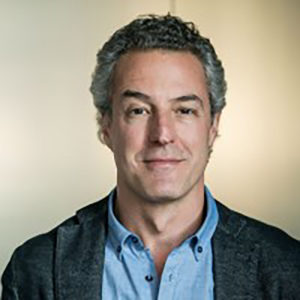 Dan has over two decades of experience at the intersection of climate, clean energy solutions, finance and philanthropy, as well as the public sector. Prior to joining IBank, he was a Senior Fellow at the Coalition for Green Capital, and vice president for policy at the Energy Foundation. Previously, he was managing director of the California Clean Energy Fund and president of CalCEF Ventures. He has served as senior analyst in the Division of Strategic Planning at the California Public Utilities Commission. Dan has held seats on several boards, most notably the American Council on Renewable Energy, the Coalition for Green Capital, and the Vote Solar Initiative. Mr. Adler has a bachelor’s degree in political science from the University of California, Berkeley, and a master’s degree in public policy from Harvard University.
Dan has over two decades of experience at the intersection of climate, clean energy solutions, finance and philanthropy, as well as the public sector. Prior to joining IBank, he was a Senior Fellow at the Coalition for Green Capital, and vice president for policy at the Energy Foundation. Previously, he was managing director of the California Clean Energy Fund and president of CalCEF Ventures. He has served as senior analyst in the Division of Strategic Planning at the California Public Utilities Commission. Dan has held seats on several boards, most notably the American Council on Renewable Energy, the Coalition for Green Capital, and the Vote Solar Initiative. Mr. Adler has a bachelor’s degree in political science from the University of California, Berkeley, and a master’s degree in public policy from Harvard University.
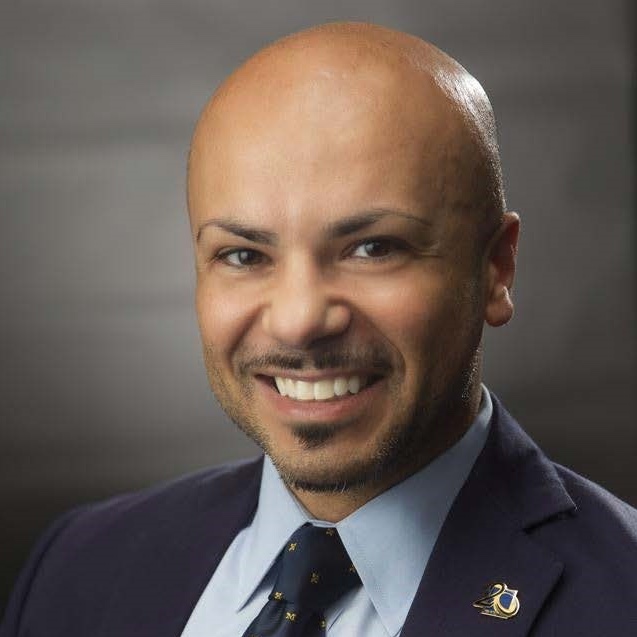 Dr. Fabio Albano is regarded as an industry expert with extensive experience in large scale energy storage and electric mobility through advanced battery technologies development and Lithium-Ion Battery manufacturing. The inventions and patents that Dr. Albano is responsible for consist of novel solid-state electrolytes and manufacturing methods for lithium-ion batteries, as well as more than 50 domestic and international patents and publications. He has held and currently holds leadership roles in established and startup companies such as NexTech Batteries (Lithium-Sulfur), NantEnergy (Metal-Air), Fisker (EVs), ZAF (Zinc-Air), XALT Energy (Li-Ion), Sakti3-Dyson (Solid-State), and currently with NantG Power (Lithium-Ion). Dr. Albano received his Ph.D. and Master degrees in Materials Science and Engineering from The University of Michigan - Ann Arbor (USA) and Engineering Diploma from Grenoble School of Physics (France).
Dr. Fabio Albano is regarded as an industry expert with extensive experience in large scale energy storage and electric mobility through advanced battery technologies development and Lithium-Ion Battery manufacturing. The inventions and patents that Dr. Albano is responsible for consist of novel solid-state electrolytes and manufacturing methods for lithium-ion batteries, as well as more than 50 domestic and international patents and publications. He has held and currently holds leadership roles in established and startup companies such as NexTech Batteries (Lithium-Sulfur), NantEnergy (Metal-Air), Fisker (EVs), ZAF (Zinc-Air), XALT Energy (Li-Ion), Sakti3-Dyson (Solid-State), and currently with NantG Power (Lithium-Ion). Dr. Albano received his Ph.D. and Master degrees in Materials Science and Engineering from The University of Michigan - Ann Arbor (USA) and Engineering Diploma from Grenoble School of Physics (France).
 Carline serves as Head of Planning & Strategy with East Bay EDA, a cross-sector regional economic development organization. Carline draws on her decade of experience in urban planning and economic development to lead East Bay EDA’s multidisciplinary regional economic development portfolio, which includes working with diverse public and private sector leaders on topics related to regional infrastructure, economic development strategies, and data and research. Carline led the development of East Bay Forward, a regional economic blueprint, and currently leading a manufacturing initiative called Resilient East Bay to support the manufacturing innovation ecosystem. Carline holds a Master’s degree in Regional Planning from UC Berkeley and BA from UC San Diego.
Carline serves as Head of Planning & Strategy with East Bay EDA, a cross-sector regional economic development organization. Carline draws on her decade of experience in urban planning and economic development to lead East Bay EDA’s multidisciplinary regional economic development portfolio, which includes working with diverse public and private sector leaders on topics related to regional infrastructure, economic development strategies, and data and research. Carline led the development of East Bay Forward, a regional economic blueprint, and currently leading a manufacturing initiative called Resilient East Bay to support the manufacturing innovation ecosystem. Carline holds a Master’s degree in Regional Planning from UC Berkeley and BA from UC San Diego.
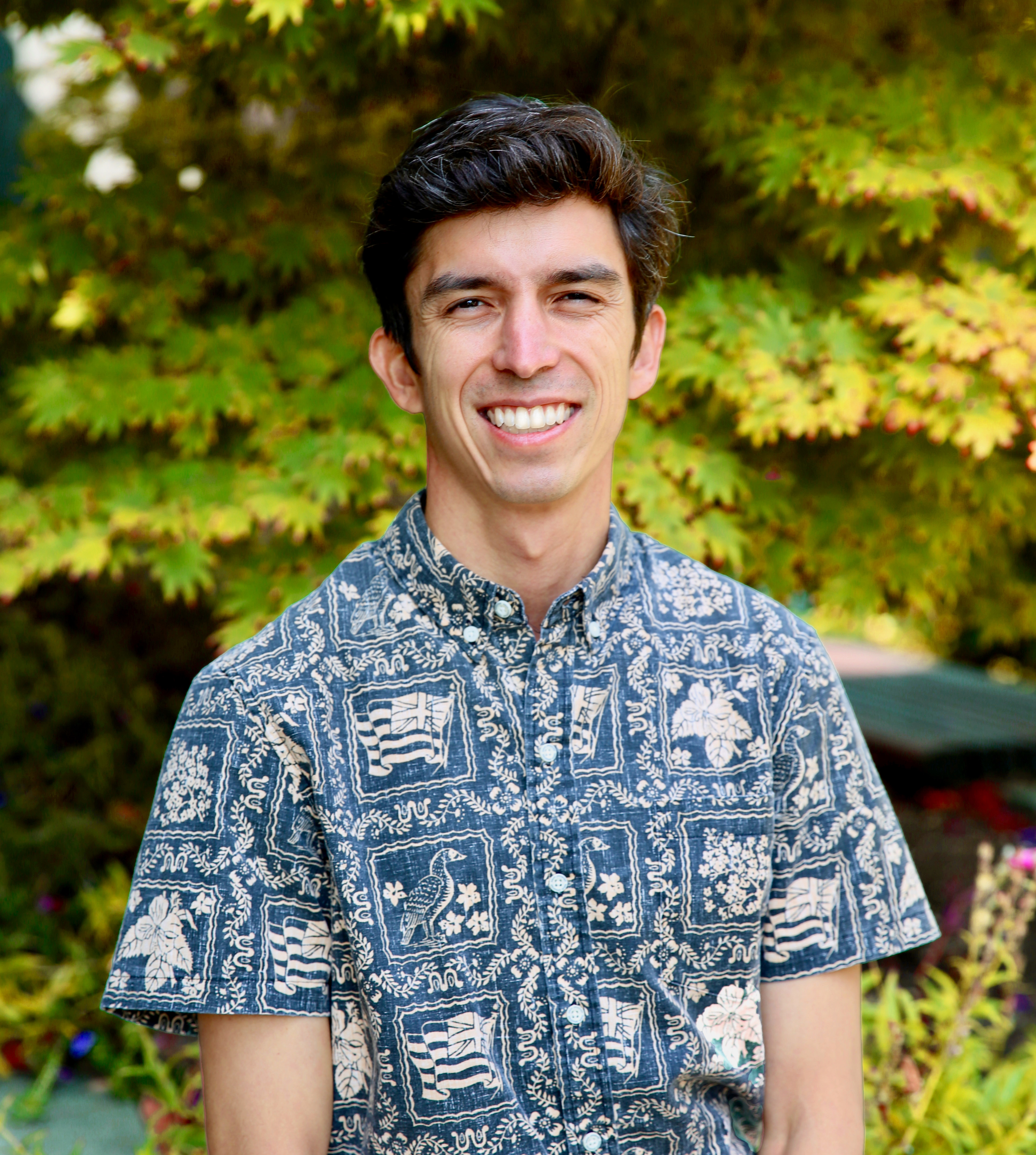 Dr. Antonio Baclig is a 2021 Activate Berkeley Fellow and the Founder and CEO of Inlyte Energy, a California-based company that is developing next generation iron and sodium batteries for grid storage. Baclig studied batteries as a Ph.D./Postdoc in Stanford’s Materials Science and Engineering Department in the Chueh group, where he researched novel high-energy density electrolytes for flow batteries. Prior to that, he was one of the first employees at the clean energy start-up C12 Energy. Baclig received his bachelor's degree from Harvard in Chemistry and Physics and grew up on Oahu, HI.
Dr. Antonio Baclig is a 2021 Activate Berkeley Fellow and the Founder and CEO of Inlyte Energy, a California-based company that is developing next generation iron and sodium batteries for grid storage. Baclig studied batteries as a Ph.D./Postdoc in Stanford’s Materials Science and Engineering Department in the Chueh group, where he researched novel high-energy density electrolytes for flow batteries. Prior to that, he was one of the first employees at the clean energy start-up C12 Energy. Baclig received his bachelor's degree from Harvard in Chemistry and Physics and grew up on Oahu, HI.
 Adam Balogh is chair of the machine technology department at Laney College in Oakland, CA. A self-described “ultra-nerd” for precision metalworking, his greatest joy is sharing this passion with others. He has a background in job shopping, maintenance machining and scientific R&D. His current interests are in diamond turning, micromachining and optical metrology. He teaches courses in manual machining, ultraprecision and micromachining, and geometric dimensioning and tolerancing (GD&T). He and his colleagues have established the Laney College machine technology program as one of the highest regarded in California. As department chair, Adam led a modernization project to bring in new equipment worth more than $1 million and develop new curriculum in multi-axis machining, diamond turning, micromachining and advanced metrology.
Adam Balogh is chair of the machine technology department at Laney College in Oakland, CA. A self-described “ultra-nerd” for precision metalworking, his greatest joy is sharing this passion with others. He has a background in job shopping, maintenance machining and scientific R&D. His current interests are in diamond turning, micromachining and optical metrology. He teaches courses in manual machining, ultraprecision and micromachining, and geometric dimensioning and tolerancing (GD&T). He and his colleagues have established the Laney College machine technology program as one of the highest regarded in California. As department chair, Adam led a modernization project to bring in new equipment worth more than $1 million and develop new curriculum in multi-axis machining, diamond turning, micromachining and advanced metrology.
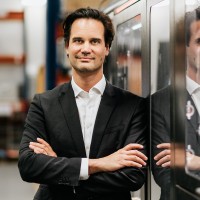 Christoph Baum studied mechanical engineering in Aachen, Málaga (Spain) and Beijing (China), specializing in design and development. In addition to his diploma in engineering from RWTH Aachen University, he graduated with a Master of Science degree from Tsinghua University (China). In January 2017 he received his doctorate in engineering from RWTH Aachen University with his dissertation "Process and machine development for multi-step micro hot stamping", for which he was awarded the Borchers Medal of RWTH Aachen University. Christoph Baum has been working at the Fraunhofer IPT since September 2006 and was responsible for the "Center for Precision and Microtechnology (ZPM)" between 2008 and 2010. In 2010, Christoph Baum became head of the "High-precision and specialist machines" group and, from 2013, head of the "Ultra-precision machines " group. From January 2015 to June 2016 he was head of the "Ultra Precision technology and plastics replication" department and from July 2016 to the end of May 2018 head of the "Precision Machines" department at the Fraunhofer IPT. As coordinator of several international research projects, Christoph Baum developed various technologies for the microstructuring of large surfaces and expanded the competence of the Fraunhofer IPT into the field of continuous roll-to-roll production. Christoph Baum is co-founder of the Fraunhofer spin-off Polyscale GmbH & Co. KG and since July 2016 Managing Director of the "Forschungsgemeinschaft Ultrapräzisionstechnik e.V.".
Christoph Baum studied mechanical engineering in Aachen, Málaga (Spain) and Beijing (China), specializing in design and development. In addition to his diploma in engineering from RWTH Aachen University, he graduated with a Master of Science degree from Tsinghua University (China). In January 2017 he received his doctorate in engineering from RWTH Aachen University with his dissertation "Process and machine development for multi-step micro hot stamping", for which he was awarded the Borchers Medal of RWTH Aachen University. Christoph Baum has been working at the Fraunhofer IPT since September 2006 and was responsible for the "Center for Precision and Microtechnology (ZPM)" between 2008 and 2010. In 2010, Christoph Baum became head of the "High-precision and specialist machines" group and, from 2013, head of the "Ultra-precision machines " group. From January 2015 to June 2016 he was head of the "Ultra Precision technology and plastics replication" department and from July 2016 to the end of May 2018 head of the "Precision Machines" department at the Fraunhofer IPT. As coordinator of several international research projects, Christoph Baum developed various technologies for the microstructuring of large surfaces and expanded the competence of the Fraunhofer IPT into the field of continuous roll-to-roll production. Christoph Baum is co-founder of the Fraunhofer spin-off Polyscale GmbH & Co. KG and since July 2016 Managing Director of the "Forschungsgemeinschaft Ultrapräzisionstechnik e.V.".
 Bari Bean is the Deputy CEO of Natural Resources for Imperial County, which is an energy and agriculture rich region located in Southern California. A native to Imperial County, Bari is passionate about its community! Bari has a Master’s degree in Marketing, Communications and New Media from Georgetown University, a business credential from Harvard University, and is currently furthering her expertise through an Executive MBA in Energy with the University of Oklahoma. Bari has extensive professional experience in business development, grant funding, marketing, and community engagement including international expertise in product development and exports. Prior to her role with the County, Bari was the Marketing and Community Relations Manager for Berkshire Hathaway Energy Renewables where she supported clean energy solutions across the country with a focus on geothermal and lithium initiatives in the Imperial Valley. Recently, Imperial Valley has been coined “Lithium Valley” due to projections that the geothermal reservoir in the region holds a third of the world’s lithium supply, over 17million metrics tons. As Deputy CEO, Bari is leading the advancement of Lithium Valley including policy development, strategic partnerships, grant funding, community engagement, and building a clean energy ecosystem that supports a net-zero future. Bari is committed to being a bridge for government, industry, and communities during this transformative time!
Bari Bean is the Deputy CEO of Natural Resources for Imperial County, which is an energy and agriculture rich region located in Southern California. A native to Imperial County, Bari is passionate about its community! Bari has a Master’s degree in Marketing, Communications and New Media from Georgetown University, a business credential from Harvard University, and is currently furthering her expertise through an Executive MBA in Energy with the University of Oklahoma. Bari has extensive professional experience in business development, grant funding, marketing, and community engagement including international expertise in product development and exports. Prior to her role with the County, Bari was the Marketing and Community Relations Manager for Berkshire Hathaway Energy Renewables where she supported clean energy solutions across the country with a focus on geothermal and lithium initiatives in the Imperial Valley. Recently, Imperial Valley has been coined “Lithium Valley” due to projections that the geothermal reservoir in the region holds a third of the world’s lithium supply, over 17million metrics tons. As Deputy CEO, Bari is leading the advancement of Lithium Valley including policy development, strategic partnerships, grant funding, community engagement, and building a clean energy ecosystem that supports a net-zero future. Bari is committed to being a bridge for government, industry, and communities during this transformative time!
 Phoebe Bisnoff is CALSTART’s Light-Duty Program Manager of Battery Manufacturing. Currently, they are managing a $35 million dollar ZEV battery manufacturing infrastructure grant in collaboration with the California Energy Commission and supporting CA policy initiatives related to battery recycling. Prior to joining CALSTART, Bisnoff worked as a Battery Engineer at a variety of battery and electric vehicle companies across California. They hold a B.S. Chemical Engineering degree, and a certificate in Materials Engineering, both from the University of Massachusetts at Amherst.
Phoebe Bisnoff is CALSTART’s Light-Duty Program Manager of Battery Manufacturing. Currently, they are managing a $35 million dollar ZEV battery manufacturing infrastructure grant in collaboration with the California Energy Commission and supporting CA policy initiatives related to battery recycling. Prior to joining CALSTART, Bisnoff worked as a Battery Engineer at a variety of battery and electric vehicle companies across California. They hold a B.S. Chemical Engineering degree, and a certificate in Materials Engineering, both from the University of Massachusetts at Amherst.
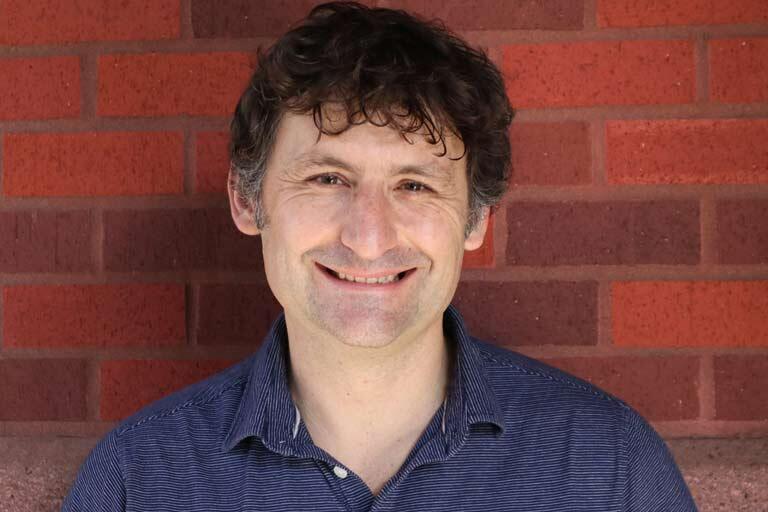 Boettcher is the Vermeulen Professor in the departments of Chemical and Biomolecular Engineering and Chemistry at the University of California, Berkeley, and the Deputy Director of the Energy Storage and Distributed Resources division at Lawrence Berkeley National Laboratory. From 2010 to 2023 he was in the Department of Chemistry and Biochemistry at the University of Oregon. Boettcher graduated from the University of Oregon with his bachelor’s degree in 2003 and his Ph.D. with Prof. Galen Stucky at University of California Santa Barbara in 2008, followed by postdoctoral studies with Nathan Lewis (Chemistry) and Harry Atwater (Applied Physics) at the California Institute of Technology. Boettcher’s current research is at the intersection of materials and interface science and electrochemical engineering, with a focus on fundamental-to-applied aspects of energy conversion and storage. He is a 2019-2023 ISI highly cited researcher (top 0.1% over past decade) and in 2023 was the Blavatnik National Award Laureate in Chemistry. In 2019, he founded the Oregon Center for Electrochemistry and the first graduate program in Electrochemical Technology in the USA, and in 2023, the Center for Electrochemical Science, Technology, and Engineering in Berkeley (CESET).
Boettcher is the Vermeulen Professor in the departments of Chemical and Biomolecular Engineering and Chemistry at the University of California, Berkeley, and the Deputy Director of the Energy Storage and Distributed Resources division at Lawrence Berkeley National Laboratory. From 2010 to 2023 he was in the Department of Chemistry and Biochemistry at the University of Oregon. Boettcher graduated from the University of Oregon with his bachelor’s degree in 2003 and his Ph.D. with Prof. Galen Stucky at University of California Santa Barbara in 2008, followed by postdoctoral studies with Nathan Lewis (Chemistry) and Harry Atwater (Applied Physics) at the California Institute of Technology. Boettcher’s current research is at the intersection of materials and interface science and electrochemical engineering, with a focus on fundamental-to-applied aspects of energy conversion and storage. He is a 2019-2023 ISI highly cited researcher (top 0.1% over past decade) and in 2023 was the Blavatnik National Award Laureate in Chemistry. In 2019, he founded the Oregon Center for Electrochemistry and the first graduate program in Electrochemical Technology in the USA, and in 2023, the Center for Electrochemical Science, Technology, and Engineering in Berkeley (CESET).
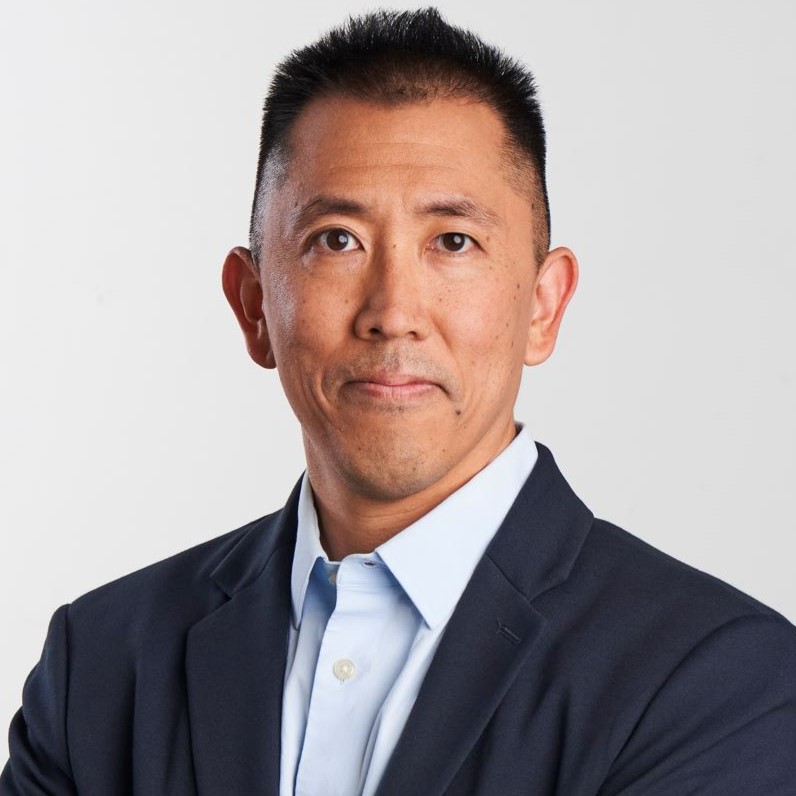 Daniel Braithwaite is the Senior Director of Product Engineering at QuantumScape and previously was the co-founder and Chief Product Officer at Ardica Technologies, a hydrogen fuel cell startup. He has two decades of experience leading engineering teams to solve problems in the energy industry, and successfully bidding and delivering on contracts with Fortune 500 companies, the US Department of Energy, the US Army, and US Navy. Daniel holds Bachelor’s and Master’s degrees in Mechanical Engineering from Stanford University, where he was also the recipient of a National Science Foundation Graduate Research Fellowship for doctoral studies in energy systems, but left the Ph.D. program to start Ardica. He is also the author of 20 US patents and patents pending.
Daniel Braithwaite is the Senior Director of Product Engineering at QuantumScape and previously was the co-founder and Chief Product Officer at Ardica Technologies, a hydrogen fuel cell startup. He has two decades of experience leading engineering teams to solve problems in the energy industry, and successfully bidding and delivering on contracts with Fortune 500 companies, the US Department of Energy, the US Army, and US Navy. Daniel holds Bachelor’s and Master’s degrees in Mechanical Engineering from Stanford University, where he was also the recipient of a National Science Foundation Graduate Research Fellowship for doctoral studies in energy systems, but left the Ph.D. program to start Ardica. He is also the author of 20 US patents and patents pending.
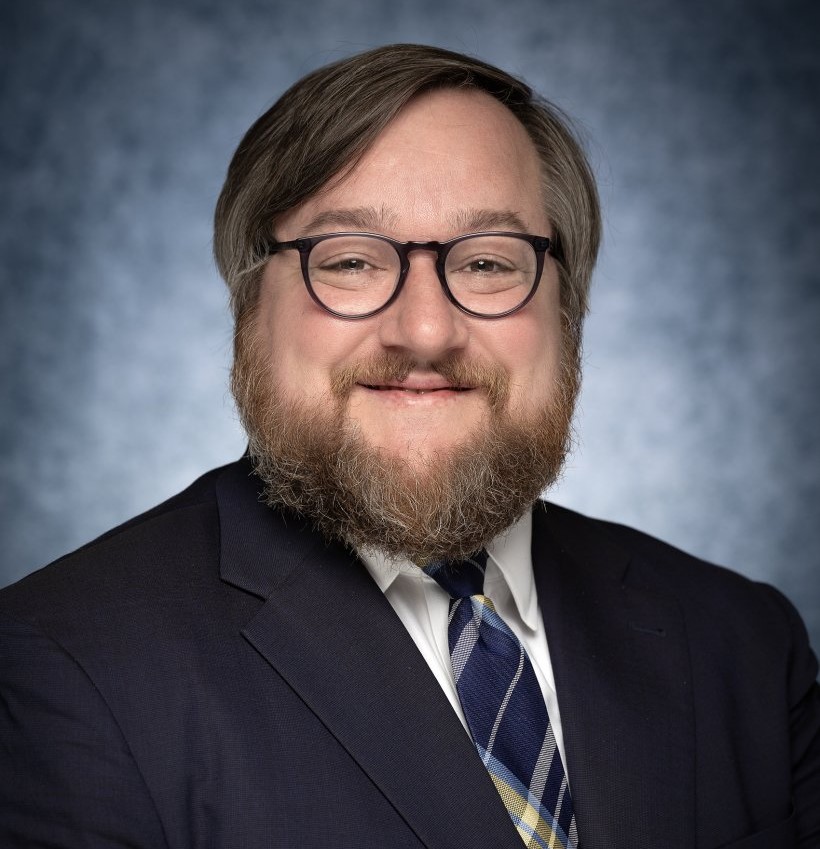 Austin Brown is the director of the Vehicle Technologies Office at the Department of Energy. As director, he leads research, development, demonstration, and deployment of efficient and clean mobility options that are affordable for all Americans. His previous role was Senior Director for Transportation Emission at the White House Climate Policy Office. Prior to that, Brown served as Executive Director of the Policy Institute for Energy, Environment, and the Economy at the University of California, Davis. He also served in Washington, D.C., at the Department of Energy, the National Renewable Energy Laboratory, and as Assistant Director for Clean Energy and Transportation at the White House Office of Science and Technology Policy. He is passionate about teaching and is an adjunct instructor at Johns Hopkins University. He has a B.S. from Harvey Mudd College and a Ph.D. from Stanford University.
Austin Brown is the director of the Vehicle Technologies Office at the Department of Energy. As director, he leads research, development, demonstration, and deployment of efficient and clean mobility options that are affordable for all Americans. His previous role was Senior Director for Transportation Emission at the White House Climate Policy Office. Prior to that, Brown served as Executive Director of the Policy Institute for Energy, Environment, and the Economy at the University of California, Davis. He also served in Washington, D.C., at the Department of Energy, the National Renewable Energy Laboratory, and as Assistant Director for Clean Energy and Transportation at the White House Office of Science and Technology Policy. He is passionate about teaching and is an adjunct instructor at Johns Hopkins University. He has a B.S. from Harvey Mudd College and a Ph.D. from Stanford University.
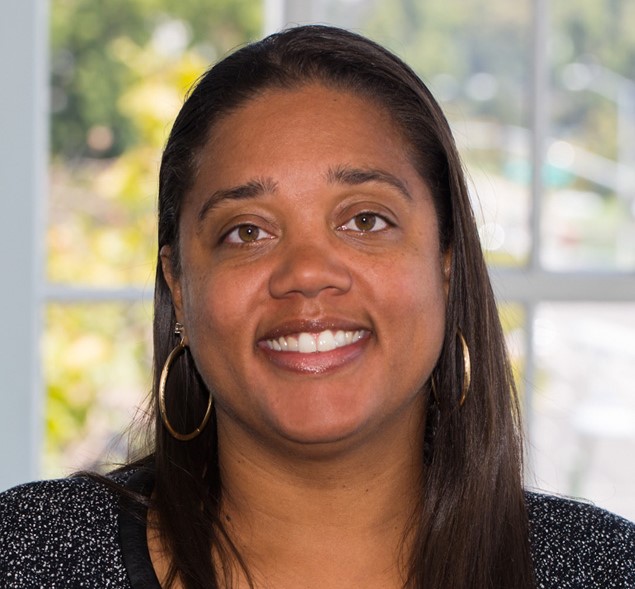 Tamia Brown directs the Workforce Development Board of Contra Costa County (WDBCCC). Under Brown’s leadership, the Board continues to focus on providing workforce and education programs that deliver a skilled workforce, career advancement, and linkages to quality jobs. Brown leads a workforce of 20 and an annual operational budget of more than $15 million. At the Board’s direction, Brown develops comprehensive strategies to ensure the successful execution of programs and operations to create and sustain a competitive workforce for the local economy. Brown was named Executive Director in July 2021. She brings 20 years of workforce development experience and a depth of understanding about business and job seeker needs, having led a wide range of workforce initiatives in Alameda and Santa Clara counties prior to her appointment. Brown holds a Master’s degree in Public Administration/Organizational Leadership from National University and a Bachelor’s of Science degree in Business Administration/Organization/Management from San Jose State University.
Tamia Brown directs the Workforce Development Board of Contra Costa County (WDBCCC). Under Brown’s leadership, the Board continues to focus on providing workforce and education programs that deliver a skilled workforce, career advancement, and linkages to quality jobs. Brown leads a workforce of 20 and an annual operational budget of more than $15 million. At the Board’s direction, Brown develops comprehensive strategies to ensure the successful execution of programs and operations to create and sustain a competitive workforce for the local economy. Brown was named Executive Director in July 2021. She brings 20 years of workforce development experience and a depth of understanding about business and job seeker needs, having led a wide range of workforce initiatives in Alameda and Santa Clara counties prior to her appointment. Brown holds a Master’s degree in Public Administration/Organizational Leadership from National University and a Bachelor’s of Science degree in Business Administration/Organization/Management from San Jose State University.
 Supervisor Diane Burgis proudly serves the 222,000 residents of Contra Costa County’s 3rd Supervisorial District, covering Antioch, Bethel Island, Brentwood, Byron, Discovery Bay, Knightsen, and Oakley in East Contra Costa County. She was first elected to the office in 2016. Diane serves on over 30 Board of Supervisor and regional committees, including Contra Costa County’s Transportation, Water & Infrastructure Committee and Northern Waterfront Economic Development Ad Hoc Committee. As Chair of California’s Delta Protection Commission, she also serves as its representative on the State’s Delta Stewardship Council. Prior to being elected to the Contra Costa County Board of Supervisors in 2016, Diane served as a trustee on the East Bay Regional Parks District Board, a member of the Oakley City Council, and as the Executive Director of Friends of the Marsh Creek Watershed.
Supervisor Diane Burgis proudly serves the 222,000 residents of Contra Costa County’s 3rd Supervisorial District, covering Antioch, Bethel Island, Brentwood, Byron, Discovery Bay, Knightsen, and Oakley in East Contra Costa County. She was first elected to the office in 2016. Diane serves on over 30 Board of Supervisor and regional committees, including Contra Costa County’s Transportation, Water & Infrastructure Committee and Northern Waterfront Economic Development Ad Hoc Committee. As Chair of California’s Delta Protection Commission, she also serves as its representative on the State’s Delta Stewardship Council. Prior to being elected to the Contra Costa County Board of Supervisors in 2016, Diane served as a trustee on the East Bay Regional Parks District Board, a member of the Oakley City Council, and as the Executive Director of Friends of the Marsh Creek Watershed.
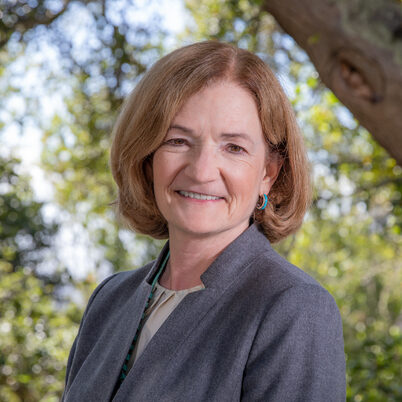 Carol Burns is responsible for the development, implementation, and stewardship of Berkeley Lab’s research enterprise, and serves as the Lab’s chief research liaison with the DOE Office of Science, the University of California, the other national labs, and other key partners. She joined Berkeley Lab in August 2021. Burns brings more than 25 years of scientific leadership experience in a national laboratory setting, most recently serving as executive officer to the Deputy Director for Science, Technology, and Engineering at Los Alamos National Laboratory, assisting in oversight of line and DOE program organizations and coordinating the integration of science and technology strategy as well as associated investments and stewardship mechanisms. She is a recognized expert in f-element and radiochemistry with more than 100 peer-reviewed publications and invited book chapters. She has served on a number of editorial boards, review boards, and advisory panels. She pioneered the development of an entirely new class of high-valent uranium compounds containing metal-ligand multiple bonds, contributing substantially to the understanding of the electronic structure of the early actinides. She is the recipient of a number of awards for scientific achievement and leadership, most recently the American Chemical Society’s Francis P. Garvan-John M. Olin Medal, recognizing distinguished service in chemistry by women chemists. She is a fellow of the American Association for the Advancement of Science. Burns has extensive experience in the systems enabling the research enterprise in the U.S. national laboratories, including a deep commitment to workforce development and diversity in STEM. She has experience in science policy at the national level, having served as a senior policy analyst in the Office of Science and Technology Policy. Burns received her B.A. in chemistry from Rice University and her Ph.D. in chemistry as a Hertz Foundation Fellow at UC Berkeley.
Carol Burns is responsible for the development, implementation, and stewardship of Berkeley Lab’s research enterprise, and serves as the Lab’s chief research liaison with the DOE Office of Science, the University of California, the other national labs, and other key partners. She joined Berkeley Lab in August 2021. Burns brings more than 25 years of scientific leadership experience in a national laboratory setting, most recently serving as executive officer to the Deputy Director for Science, Technology, and Engineering at Los Alamos National Laboratory, assisting in oversight of line and DOE program organizations and coordinating the integration of science and technology strategy as well as associated investments and stewardship mechanisms. She is a recognized expert in f-element and radiochemistry with more than 100 peer-reviewed publications and invited book chapters. She has served on a number of editorial boards, review boards, and advisory panels. She pioneered the development of an entirely new class of high-valent uranium compounds containing metal-ligand multiple bonds, contributing substantially to the understanding of the electronic structure of the early actinides. She is the recipient of a number of awards for scientific achievement and leadership, most recently the American Chemical Society’s Francis P. Garvan-John M. Olin Medal, recognizing distinguished service in chemistry by women chemists. She is a fellow of the American Association for the Advancement of Science. Burns has extensive experience in the systems enabling the research enterprise in the U.S. national laboratories, including a deep commitment to workforce development and diversity in STEM. She has experience in science policy at the national level, having served as a senior policy analyst in the Office of Science and Technology Policy. Burns received her B.A. in chemistry from Rice University and her Ph.D. in chemistry as a Hertz Foundation Fellow at UC Berkeley.
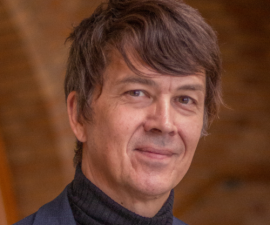 Gerbrand Ceder is the Samsung Distinguished Professor of Engineering at UC Berkeley and a Senior Faculty Scientist at LBNL where he combines theory, computation, machine learning, and experiments to develop novel materials for energy storage. He has worked for over thirty years in the field of energy storage, and in the last decade integrated machine learning and automation to create AI-driven autonomous laboratories.
The goal of his research group is to better design high quality functional materials by mapping the relationship between materials structures and their physical and chemical properties through a combined theoretical and experimental approach. Their group integrates all the aspects of materials research from developing the fundamental understanding to the design, synthesis and testing of new materials. They are one of the premier groups in high-throughput computing and the Materials Genome.
Applied areas of interest are in energy storage based on Li, Na, and multi-valent ion intercalation, solid-state batteries, and other functional materials. He is a co-inventor of the disordered rocksalt cathode materials (DRX) for Li-ion technology and leads the DOE Consortium on the development of these materials. He has published over 500 papers with a Hirsch index of 177 and holds more than 50 U.S. and foreign patents. He is a member of the National Academy of Engineering of the US, the Royal Flemish Academy of Belgium for Science and The Art, and the American Academy for the Arts and Sciences.
Gerbrand Ceder is the Samsung Distinguished Professor of Engineering at UC Berkeley and a Senior Faculty Scientist at LBNL where he combines theory, computation, machine learning, and experiments to develop novel materials for energy storage. He has worked for over thirty years in the field of energy storage, and in the last decade integrated machine learning and automation to create AI-driven autonomous laboratories.
The goal of his research group is to better design high quality functional materials by mapping the relationship between materials structures and their physical and chemical properties through a combined theoretical and experimental approach. Their group integrates all the aspects of materials research from developing the fundamental understanding to the design, synthesis and testing of new materials. They are one of the premier groups in high-throughput computing and the Materials Genome.
Applied areas of interest are in energy storage based on Li, Na, and multi-valent ion intercalation, solid-state batteries, and other functional materials. He is a co-inventor of the disordered rocksalt cathode materials (DRX) for Li-ion technology and leads the DOE Consortium on the development of these materials. He has published over 500 papers with a Hirsch index of 177 and holds more than 50 U.S. and foreign patents. He is a member of the National Academy of Engineering of the US, the Royal Flemish Academy of Belgium for Science and The Art, and the American Academy for the Arts and Sciences.
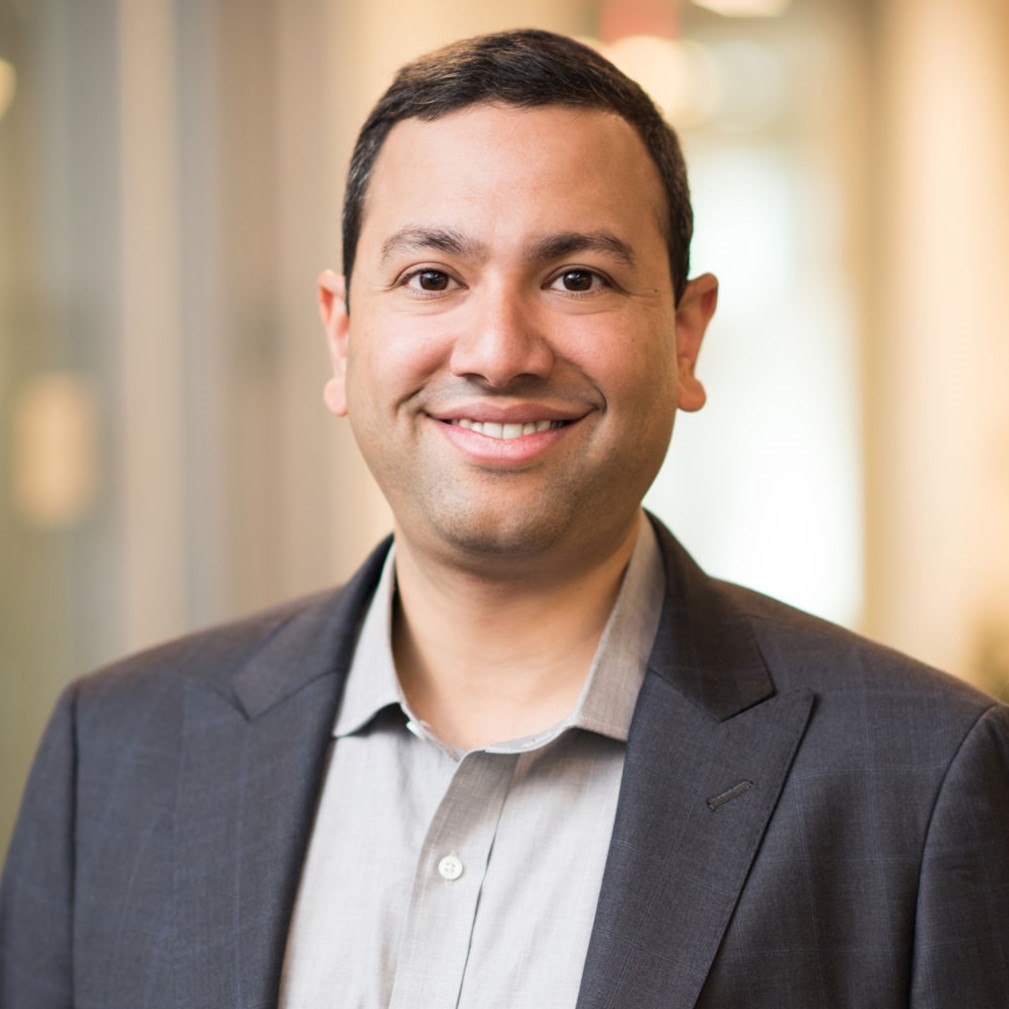 Barath Chari is a partner in Wilson Sonsini’s San Francisco office. Barath represents technology companies at all stages of growth, from bootstrapped start-ups to leading global enterprises, in complex business transactions involving technology and intellectual property. He also has deep experience in assisting technology companies and their investors with mergers, acquisitions, divestitures, and financing matters. A Washington, D.C., transplant resident in the firm’s San Francisco office, Barath understands how the federal government transacts with technology companies, and helps technology companies sell products to federal government customers and collaborate with the federal government on research and development.
Barath Chari is a partner in Wilson Sonsini’s San Francisco office. Barath represents technology companies at all stages of growth, from bootstrapped start-ups to leading global enterprises, in complex business transactions involving technology and intellectual property. He also has deep experience in assisting technology companies and their investors with mergers, acquisitions, divestitures, and financing matters. A Washington, D.C., transplant resident in the firm’s San Francisco office, Barath understands how the federal government transacts with technology companies, and helps technology companies sell products to federal government customers and collaborate with the federal government on research and development.
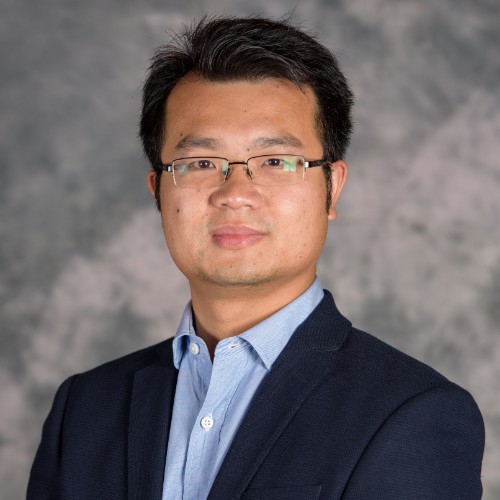 Zheng Chen is a Professor in the Aiiso Yufeng Li Family Department of Chemical and Nano Engineering and the Program of Materials Science and Engineering at University of California, San Diego. He received his B.S. from Tianjin University (2007) and Ph.D. from University of California Los Angeles (2012). Then he served as postdoctoral researcher at Stanford before joining UC San Diego in 2016. His research focuses on designing new materials, and sustainable manufacturing and recycling processes for energy storage and conversion. Dr. Chen received the 2024 ECS Toyota Young Investigator Award in 2024, the 2023 ECS Battery Division Early Career Award, the 2018 NASA Early Career Faculty Award, the 2018 LG Chem Global Battery Innovation Contest (BIC) Award, and the 2018 ACS PRF New Investigator Award.
Zheng Chen is a Professor in the Aiiso Yufeng Li Family Department of Chemical and Nano Engineering and the Program of Materials Science and Engineering at University of California, San Diego. He received his B.S. from Tianjin University (2007) and Ph.D. from University of California Los Angeles (2012). Then he served as postdoctoral researcher at Stanford before joining UC San Diego in 2016. His research focuses on designing new materials, and sustainable manufacturing and recycling processes for energy storage and conversion. Dr. Chen received the 2024 ECS Toyota Young Investigator Award in 2024, the 2023 ECS Battery Division Early Career Award, the 2018 NASA Early Career Faculty Award, the 2018 LG Chem Global Battery Innovation Contest (BIC) Award, and the 2018 ACS PRF New Investigator Award.
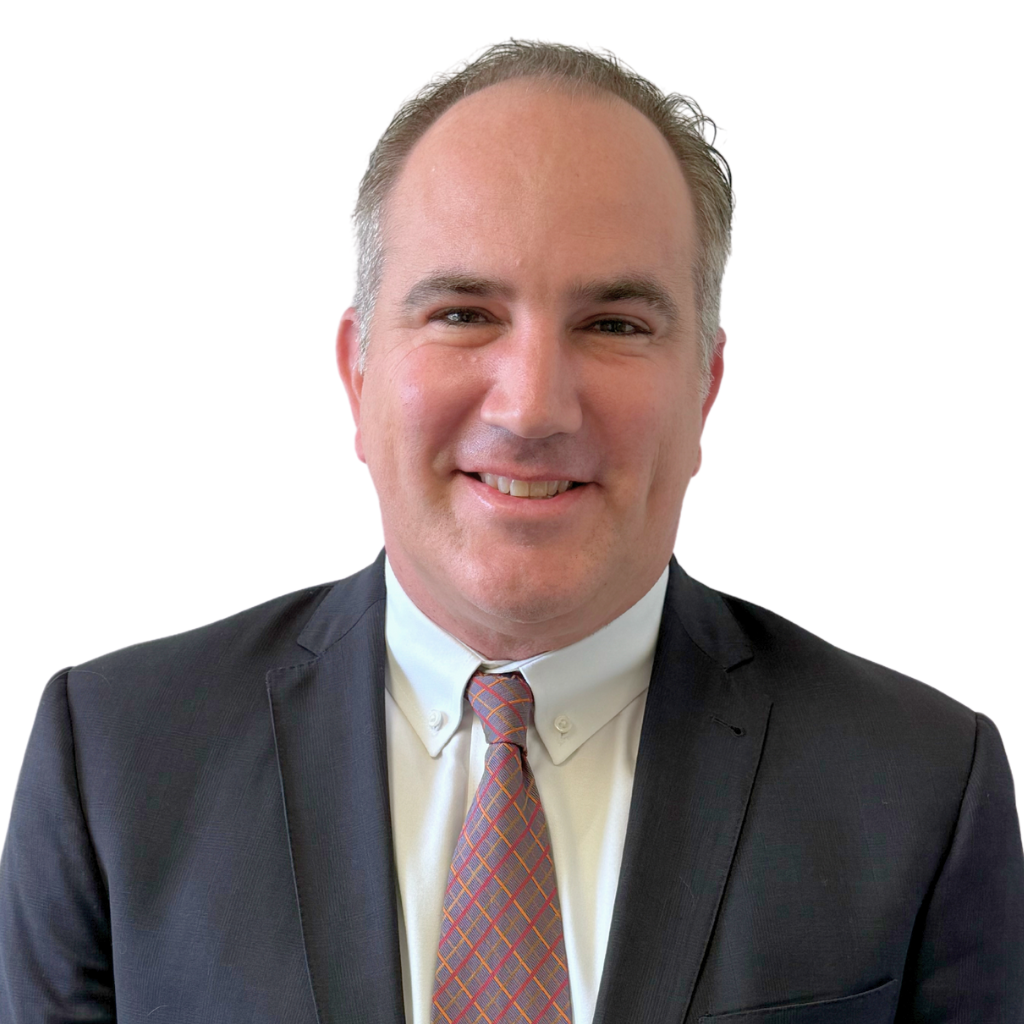 Peter is Senior Vice President of Strategy and Corporate Development at Wildcat Discovery Technologies. Peter has over $20B in M&A and capital markets transaction experience over 10 years. Before joining Wildcat, Peter oversaw corporate finance activities of Alphabet’s (NSDQ: GOOGL) Other Bets including Waymo, Verily, Wing, Deepmind, X, and others. Before joining Alphabet, Peter led dozens of transactions across Power, Utilities, Cleantech, and Core Infrastructure clients in Goldman Sachs’ (NYSE: GS) Global Natural Resources Investment Banking Division. Prior to pursuing a graduate degree, Peter worked as a licensed Civil Engineer for the firm Simpson, Gompertz and Heger. Peter holds a MBA and Masters of Public Policy from the University of Michigan – Ann Arbor as well as a Bachelor of Science in Architectural Engineering from the University of Texas at Austin.
Peter is Senior Vice President of Strategy and Corporate Development at Wildcat Discovery Technologies. Peter has over $20B in M&A and capital markets transaction experience over 10 years. Before joining Wildcat, Peter oversaw corporate finance activities of Alphabet’s (NSDQ: GOOGL) Other Bets including Waymo, Verily, Wing, Deepmind, X, and others. Before joining Alphabet, Peter led dozens of transactions across Power, Utilities, Cleantech, and Core Infrastructure clients in Goldman Sachs’ (NYSE: GS) Global Natural Resources Investment Banking Division. Prior to pursuing a graduate degree, Peter worked as a licensed Civil Engineer for the firm Simpson, Gompertz and Heger. Peter holds a MBA and Masters of Public Policy from the University of Michigan – Ann Arbor as well as a Bachelor of Science in Architectural Engineering from the University of Texas at Austin.
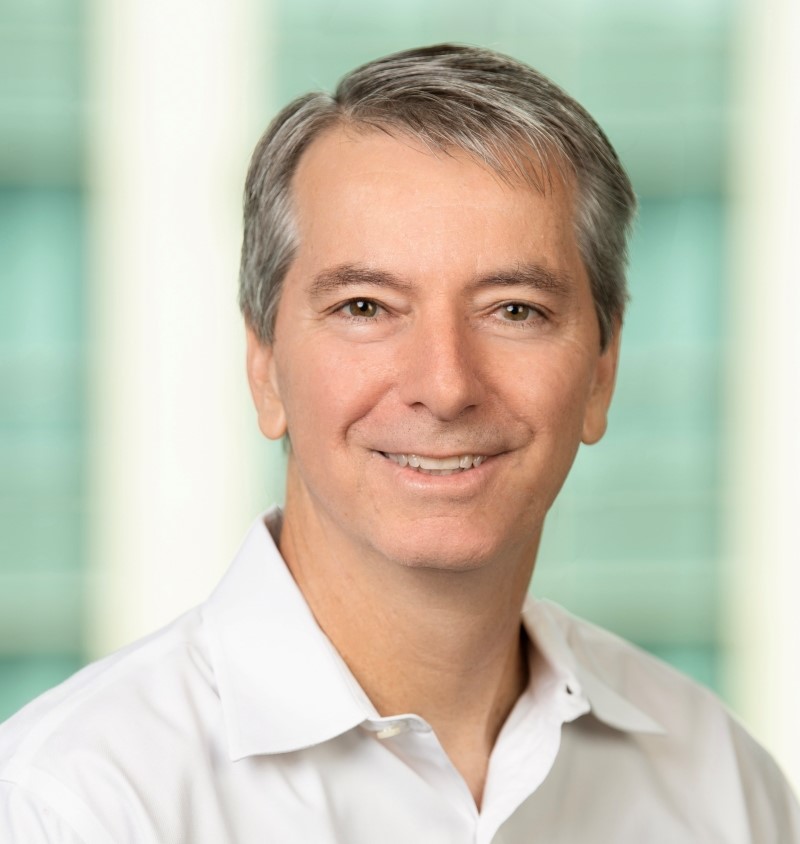 Jim Cushing is currently the General Manager for the Energy Storage Solutions group and is responsible for establishing Applied Materials business footprint in the fast growing Li-ion battery market. Jim is on the NAATBatt International Board and the Advisory Board for New Energy New York. Prior to joining the CTO organization, Jim managed the Baccini business unit in Treviso, Italy, building metallization equipment for solar cells which grew to over $1B. In 30 years at Applied Materials, Jim has held global executive leadership positions in Energy Storage, Solar, Display, and Semiconductor. Jim is a strong proponent of collaborative customer engagement in the process of developing world class products.
Jim Cushing is currently the General Manager for the Energy Storage Solutions group and is responsible for establishing Applied Materials business footprint in the fast growing Li-ion battery market. Jim is on the NAATBatt International Board and the Advisory Board for New Energy New York. Prior to joining the CTO organization, Jim managed the Baccini business unit in Treviso, Italy, building metallization equipment for solar cells which grew to over $1B. In 30 years at Applied Materials, Jim has held global executive leadership positions in Energy Storage, Solar, Display, and Semiconductor. Jim is a strong proponent of collaborative customer engagement in the process of developing world class products.
 Aubert Demaray has extensive experience in Silicon Valley, overseeing operations and projects for companies focused on research and development in energy generation, conversion, transmission, and storage with a strong focus on early stage material development and scale-up. His expertise includes applying for and managing government grant projects, advancing technologies and patent portfolios, as well as coordinating large-scale multi-partner collaborative projects spanning multiple industries. In his current role at SpectraPower, Aubert oversees all operations and is responsible for project management, budgeting and finance, planning and supervising R&D service activities (such as electrode fabrication, cell production, and testing), and facilitating client engagement from first ideation through project fulfillment. SpectraPower specializes in contract research and development as well as consulting, primarily focusing on lithium-ion and lithium metal batteries, while also exploring supercapacitors, fuel cells, and other related technologies and materials. The team at SpectraPower stands out in the U.S. for its decades of successful high-volume lithium-ion cell manufacturing experience and has built many pilot lines and built or consulted in full scale Li-ion manufacturing facilities. In his spare time Aubert enjoys making and sharing presentations on the Battery Industry (Battery Talk YouTube) and is always happy to talk about his latest apple cider brewing project.
Aubert Demaray has extensive experience in Silicon Valley, overseeing operations and projects for companies focused on research and development in energy generation, conversion, transmission, and storage with a strong focus on early stage material development and scale-up. His expertise includes applying for and managing government grant projects, advancing technologies and patent portfolios, as well as coordinating large-scale multi-partner collaborative projects spanning multiple industries. In his current role at SpectraPower, Aubert oversees all operations and is responsible for project management, budgeting and finance, planning and supervising R&D service activities (such as electrode fabrication, cell production, and testing), and facilitating client engagement from first ideation through project fulfillment. SpectraPower specializes in contract research and development as well as consulting, primarily focusing on lithium-ion and lithium metal batteries, while also exploring supercapacitors, fuel cells, and other related technologies and materials. The team at SpectraPower stands out in the U.S. for its decades of successful high-volume lithium-ion cell manufacturing experience and has built many pilot lines and built or consulted in full scale Li-ion manufacturing facilities. In his spare time Aubert enjoys making and sharing presentations on the Battery Industry (Battery Talk YouTube) and is always happy to talk about his latest apple cider brewing project.
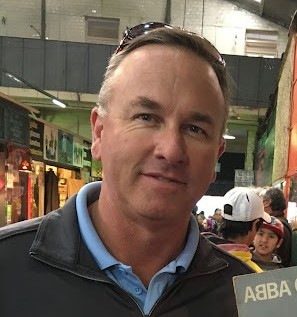 John Dunn is currently the Regional Director of Apprenticeship for the 28 colleges in the Bay Area Community College Consortium. In that role he provides technical assistance, guidance and enthusiasm for expanding Apprenticeship programs. Previously he was Assistant Secretary of Labor for Apprenticeships at the California Labor Agency and supported K12 and Community College Apprenticeship training at the California Community College Chancellor's office and State Department of Education. His career in education began as a high school Social Studies, Business and Technology teacher, department chair and coach.
John Dunn is currently the Regional Director of Apprenticeship for the 28 colleges in the Bay Area Community College Consortium. In that role he provides technical assistance, guidance and enthusiasm for expanding Apprenticeship programs. Previously he was Assistant Secretary of Labor for Apprenticeships at the California Labor Agency and supported K12 and Community College Apprenticeship training at the California Community College Chancellor's office and State Department of Education. His career in education began as a high school Social Studies, Business and Technology teacher, department chair and coach.
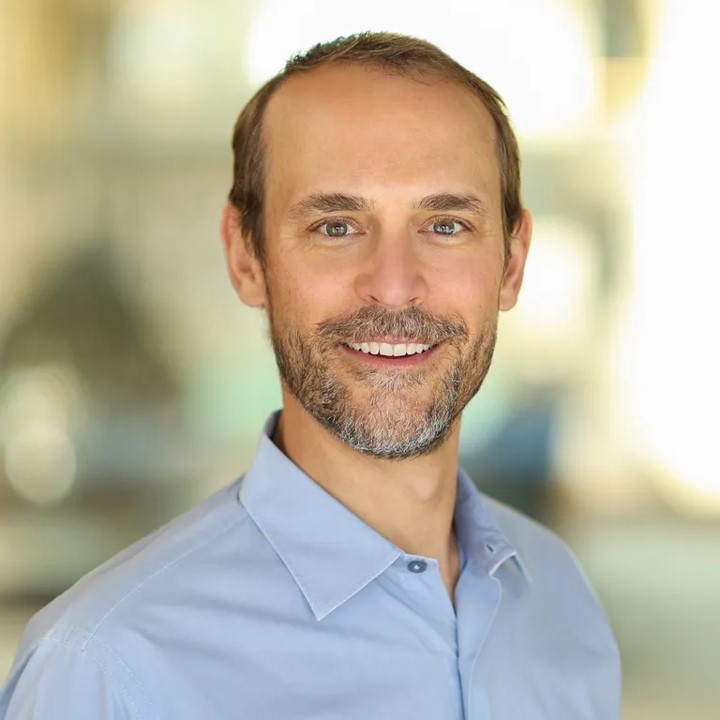 In the 6th grade, Matt wrote a paper about his goal to work at Genentech, at the time one of a handful of biotech companies. In 2006, after leading the commercial launch of a breakthrough cancer drug for Genentech, Matt left biotech because he believed that climate change and environmental degradation were the most important problems in the world. Matt spent the next 15 years as an executive at climatetech companies like Sunrun, Bloom Energy, and Tesla, holding leadership roles in operations, sales, product, finance, and marketing. At Sunrun, he led operations and product management as Sunrun grew from 30 employees and 2,000 installations to 1,200 employees and 55,000 installations and raised $300M in equity capital. He transitioned to investing in early stage climatetech at Breakthrough Energy Ventures where he led investments in grid, aerospace, buildings, and SaaS software companies, and was thrilled to join Prelude in 2023. Matt loves working with founders to help them build enduring, iconic, and profitable companies that will drive massive improvement in human civilization and for all life on Earth. Matt has a B.S. in molecular biology from Duke University, and an MBA from Stanford.
In the 6th grade, Matt wrote a paper about his goal to work at Genentech, at the time one of a handful of biotech companies. In 2006, after leading the commercial launch of a breakthrough cancer drug for Genentech, Matt left biotech because he believed that climate change and environmental degradation were the most important problems in the world. Matt spent the next 15 years as an executive at climatetech companies like Sunrun, Bloom Energy, and Tesla, holding leadership roles in operations, sales, product, finance, and marketing. At Sunrun, he led operations and product management as Sunrun grew from 30 employees and 2,000 installations to 1,200 employees and 55,000 installations and raised $300M in equity capital. He transitioned to investing in early stage climatetech at Breakthrough Energy Ventures where he led investments in grid, aerospace, buildings, and SaaS software companies, and was thrilled to join Prelude in 2023. Matt loves working with founders to help them build enduring, iconic, and profitable companies that will drive massive improvement in human civilization and for all life on Earth. Matt has a B.S. in molecular biology from Duke University, and an MBA from Stanford.
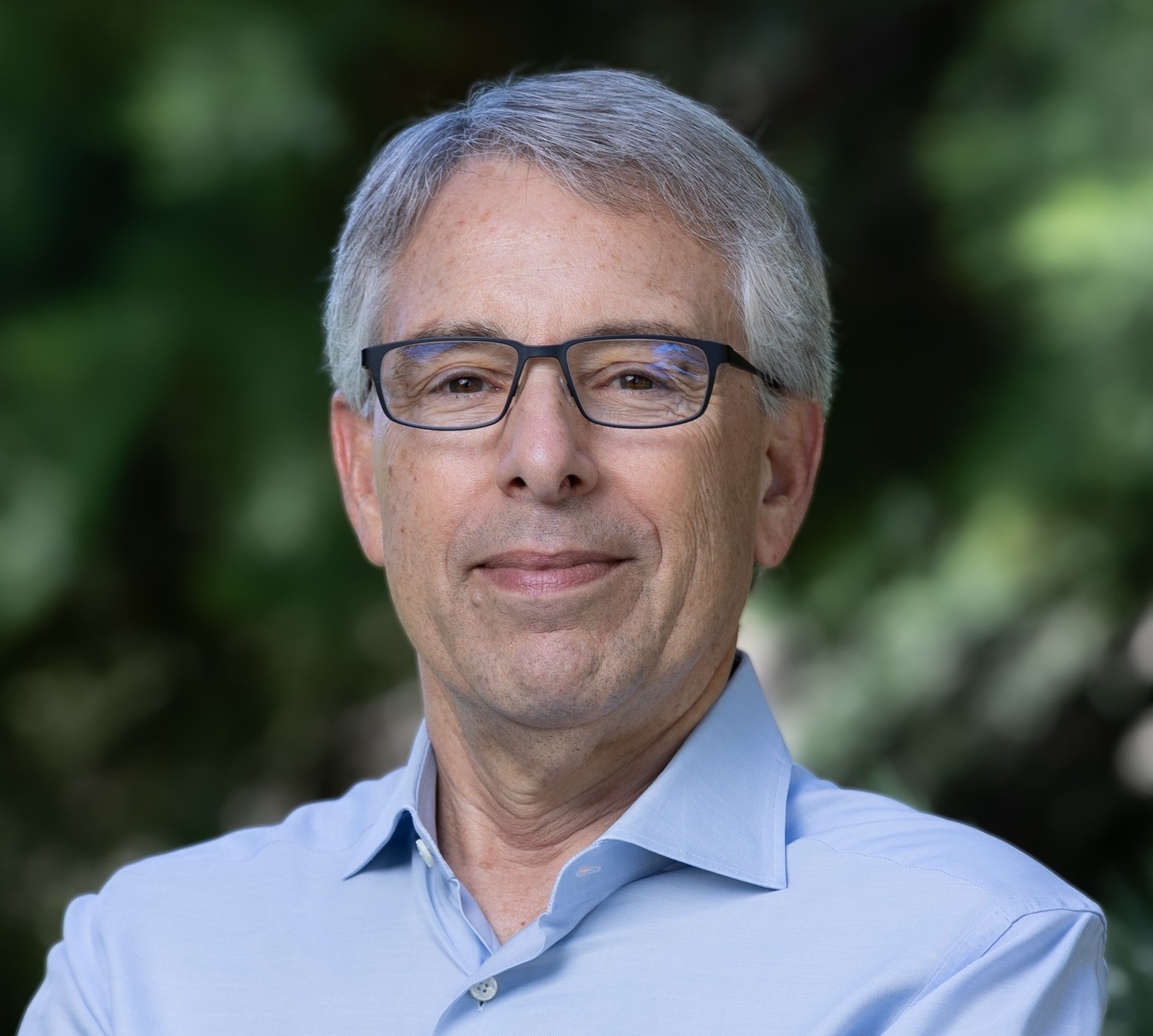 Steve Eglash is Director of the Applied Energy Division and Interim Chief Research Officer at SLAC
National Accelerator Laboratory, where he leads research in batteries, the electric grid, water
desalination, and industrial decarbonization. The emphasis is on translating fundamental research into
practical solutions. As interim Chief Research Officer, Steve oversees and supports the SLAC research
portfolio and SLAC researchers. SLAC is a U.S. Department of Energy National Laboratory and part of
Stanford University. Previously, Steve developed and managed research programs at Stanford University
in artificial intelligence, computer science, energy, and sustainability, bridging research and industry,
working to enhance the impact and relevance of academic research at Stanford. He has published more
than forty papers in peer-reviewed journals and has four patents. Steve is chair of the Santa Clara
University College of Arts & Sciences Leadership Board. He is a former Utilities Commissioner for the City
of Palo Alto.
Steve Eglash is Director of the Applied Energy Division and Interim Chief Research Officer at SLAC
National Accelerator Laboratory, where he leads research in batteries, the electric grid, water
desalination, and industrial decarbonization. The emphasis is on translating fundamental research into
practical solutions. As interim Chief Research Officer, Steve oversees and supports the SLAC research
portfolio and SLAC researchers. SLAC is a U.S. Department of Energy National Laboratory and part of
Stanford University. Previously, Steve developed and managed research programs at Stanford University
in artificial intelligence, computer science, energy, and sustainability, bridging research and industry,
working to enhance the impact and relevance of academic research at Stanford. He has published more
than forty papers in peer-reviewed journals and has four patents. Steve is chair of the Santa Clara
University College of Arts & Sciences Leadership Board. He is a former Utilities Commissioner for the City
of Palo Alto.
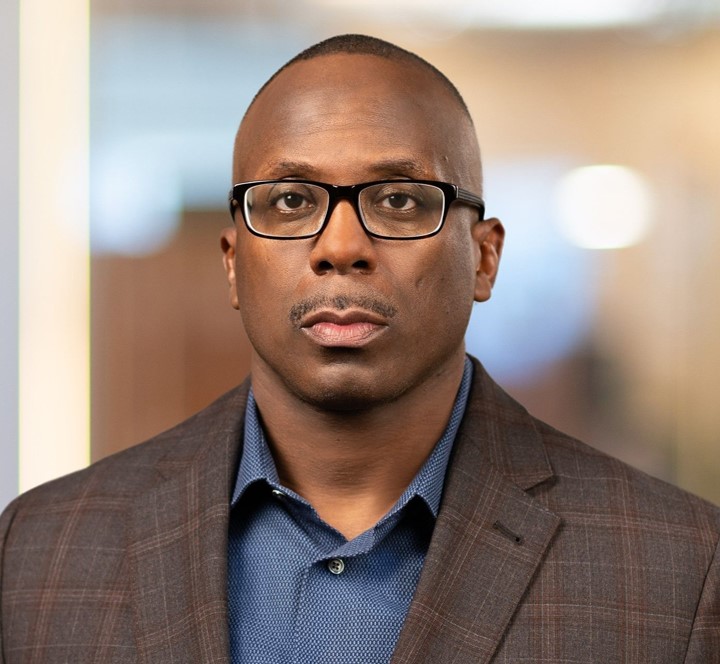 Carlos W. Ellerbe is a corporate and securities partner at Wilson Sonsini Goodrich & Rosati. Over the past 20 years, Carlos has represented over 100 technology companies and investors in matters such as entity formation and organization; capital formation (venture capital financings and public offerings); licensing and other technology transactions; and mergers and acquisitions. Carlos has extensive experience in advising directors and officers on corporate governance and fiduciary duty matters. Prior to law school, Carlos worked at KPMG for almost seven years as a consultant and an auditor. As a consultant, Carlos worked with large institutions and emerging growth companies in developing business process and organizational strategies. As an auditor, Carlos led teams in determining whether his clients' financial statements were in accordance with GAAP, and he advised directors and officers on effective internal controls and other operating policies and procedures.
Carlos W. Ellerbe is a corporate and securities partner at Wilson Sonsini Goodrich & Rosati. Over the past 20 years, Carlos has represented over 100 technology companies and investors in matters such as entity formation and organization; capital formation (venture capital financings and public offerings); licensing and other technology transactions; and mergers and acquisitions. Carlos has extensive experience in advising directors and officers on corporate governance and fiduciary duty matters. Prior to law school, Carlos worked at KPMG for almost seven years as a consultant and an auditor. As a consultant, Carlos worked with large institutions and emerging growth companies in developing business process and organizational strategies. As an auditor, Carlos led teams in determining whether his clients' financial statements were in accordance with GAAP, and he advised directors and officers on effective internal controls and other operating policies and procedures.
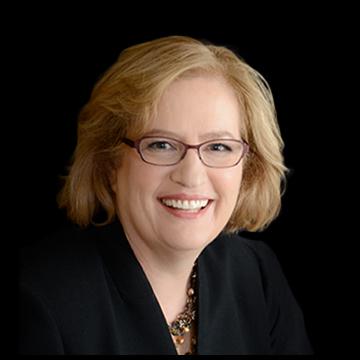 Patricia Falcone is the Deputy Director for Science and Technology at the Lawrence Livermore National Laboratory (LLNL). She is the principal advocate for the Lab’s science and technology base and oversees the strategic development of the Lab's capabilities. She is responsible for LLNL’s collaborative research with academia and the private sector, as well as its internal investment portfolio. Falcone joined LLNL in 2015 after six years at the White House Office of Science and Technology Policy (OSTP), where she served as the Senate-confirmed Associate Director of OSTP for National Security and International Affairs. In that capacity, she led a team that advised on the science and technology dimensions of national security policy deliberations and on federal support of national security research and development. Earlier, Falcone held technical and management positions at Sandia National Laboratories in Livermore, California, including Distinguished Member of the Technical Staff and senior manager for Systems Analysis and Engineering. Falcone chairs the advisory committee for the Department of Mechanical and Aerospace Engineering at Princeton University. She is a member of the State Department’s International Security Advisory Board and the Board of Directors of the Research Corporation for Science Advancement. She is a member of the Leadership Council of the Government-University-Industry Research Roundtable (GUIRR) of the National Academies of Science, Engineering and Medicine and a commissioner on the National Commission on Innovation and Competitiveness Frontiers led by the Council on Competitiveness. Falcone earned a B.S.E. in aerospace and mechanical sciences at Princeton University, and M.S. and Ph.D. degrees in mechanical engineering from Stanford University.
Patricia Falcone is the Deputy Director for Science and Technology at the Lawrence Livermore National Laboratory (LLNL). She is the principal advocate for the Lab’s science and technology base and oversees the strategic development of the Lab's capabilities. She is responsible for LLNL’s collaborative research with academia and the private sector, as well as its internal investment portfolio. Falcone joined LLNL in 2015 after six years at the White House Office of Science and Technology Policy (OSTP), where she served as the Senate-confirmed Associate Director of OSTP for National Security and International Affairs. In that capacity, she led a team that advised on the science and technology dimensions of national security policy deliberations and on federal support of national security research and development. Earlier, Falcone held technical and management positions at Sandia National Laboratories in Livermore, California, including Distinguished Member of the Technical Staff and senior manager for Systems Analysis and Engineering. Falcone chairs the advisory committee for the Department of Mechanical and Aerospace Engineering at Princeton University. She is a member of the State Department’s International Security Advisory Board and the Board of Directors of the Research Corporation for Science Advancement. She is a member of the Leadership Council of the Government-University-Industry Research Roundtable (GUIRR) of the National Academies of Science, Engineering and Medicine and a commissioner on the National Commission on Innovation and Competitiveness Frontiers led by the Council on Competitiveness. Falcone earned a B.S.E. in aerospace and mechanical sciences at Princeton University, and M.S. and Ph.D. degrees in mechanical engineering from Stanford University.
 Dan Flowers leads Lawrence Livermore National Laboratory’s (LLNL’s) applied energy program, which focuses on utilizing science and technology to accelerate the transition to low-carbon energy, including energy materials, hydrogen, carbon conversion, advanced transportation fuels, and subsurface energy. Flowers’ program supports sponsors in the Department of Energy’s applied energy offices, including the Office of Energy Efficiency and Renewable Energy, the Office of Fossil Energy, the Office of Nuclear Energy, and the Advanced Research Projects Agency – Energy. Throughout his career, he has conducted research in technologies for advanced transportation, renewables, nuclear power, and national security. He holds a B.S., M.S., and Ph.D. in Mechanical Engineering from the University of California, Davis.
Dan Flowers leads Lawrence Livermore National Laboratory’s (LLNL’s) applied energy program, which focuses on utilizing science and technology to accelerate the transition to low-carbon energy, including energy materials, hydrogen, carbon conversion, advanced transportation fuels, and subsurface energy. Flowers’ program supports sponsors in the Department of Energy’s applied energy offices, including the Office of Energy Efficiency and Renewable Energy, the Office of Fossil Energy, the Office of Nuclear Energy, and the Advanced Research Projects Agency – Energy. Throughout his career, he has conducted research in technologies for advanced transportation, renewables, nuclear power, and national security. He holds a B.S., M.S., and Ph.D. in Mechanical Engineering from the University of California, Davis.
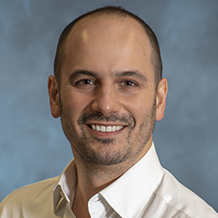 Dr. Giera is the director of LLNL’s Data Science Institute (data-science.llnl.gov). He joined LLNL in 2014 as a postdoctoral researcher and is the principal investigator of an LDRD Strategic Initiative on digital twins for virtual inspection of advanced manufacturing as well as technical lead on several advanced analytics and additive manufacturing projects. Giera’s research interests include additive manufacturing, digital twins, machine learning, in situ process monitoring, computational materials science, molecular dynamics, electrophoretic deposition and hyperspectral imaging—all with a focus on developing and applying physics-based and machine learning models to a variety of advanced manufacturing systems. Giera has a passion for LLNL’s diversity, equity, and inclusion efforts and works closely with the Strategic Diversity group to advocate for neuro-diverse and hearing or visually impaired individuals. He holds a B.S. in Chemical Engineering from Purdue University and a Ph.D. in Chemical Engineering from the University of California, Santa Barbara.
Dr. Giera is the director of LLNL’s Data Science Institute (data-science.llnl.gov). He joined LLNL in 2014 as a postdoctoral researcher and is the principal investigator of an LDRD Strategic Initiative on digital twins for virtual inspection of advanced manufacturing as well as technical lead on several advanced analytics and additive manufacturing projects. Giera’s research interests include additive manufacturing, digital twins, machine learning, in situ process monitoring, computational materials science, molecular dynamics, electrophoretic deposition and hyperspectral imaging—all with a focus on developing and applying physics-based and machine learning models to a variety of advanced manufacturing systems. Giera has a passion for LLNL’s diversity, equity, and inclusion efforts and works closely with the Strategic Diversity group to advocate for neuro-diverse and hearing or visually impaired individuals. He holds a B.S. in Chemical Engineering from Purdue University and a Ph.D. in Chemical Engineering from the University of California, Santa Barbara.
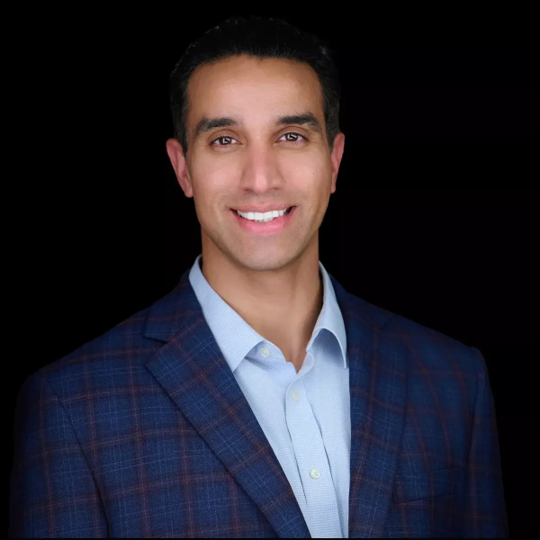 Preet Gill is a visionary leader in the insurance industry, specializing in addressing complex risks for emerging technologies such as battery innovation, renewable energy, autonomous vehicles, and electric mobility. With over two decades of experience, he has become a trusted partner for disruptive companies, designing tailored risk management strategies that not only protect but also empower businesses to pursue bold growth. In 2024, Preet joined Lockton after 20 years at Marsh McLennan, where he held key leadership roles including leading Technology and Emerging risk practice and managed relationships with some of the most largest and innovative technology companies. His expertise in crafting customized insurance products helps companies proactively navigate the challenges of rapid technological advancements with confidence and resilience. Prior to this, he worked in several Silicon Valley Technology startups. Preet holds a Bachelors of Science from University of California, Berkeley’s Haas School of Business. He is committed to pushing the boundaries of what’s possible and ensuring the future of technology is met with robust protection and strategic foresight.
Preet Gill is a visionary leader in the insurance industry, specializing in addressing complex risks for emerging technologies such as battery innovation, renewable energy, autonomous vehicles, and electric mobility. With over two decades of experience, he has become a trusted partner for disruptive companies, designing tailored risk management strategies that not only protect but also empower businesses to pursue bold growth. In 2024, Preet joined Lockton after 20 years at Marsh McLennan, where he held key leadership roles including leading Technology and Emerging risk practice and managed relationships with some of the most largest and innovative technology companies. His expertise in crafting customized insurance products helps companies proactively navigate the challenges of rapid technological advancements with confidence and resilience. Prior to this, he worked in several Silicon Valley Technology startups. Preet holds a Bachelors of Science from University of California, Berkeley’s Haas School of Business. He is committed to pushing the boundaries of what’s possible and ensuring the future of technology is met with robust protection and strategic foresight.
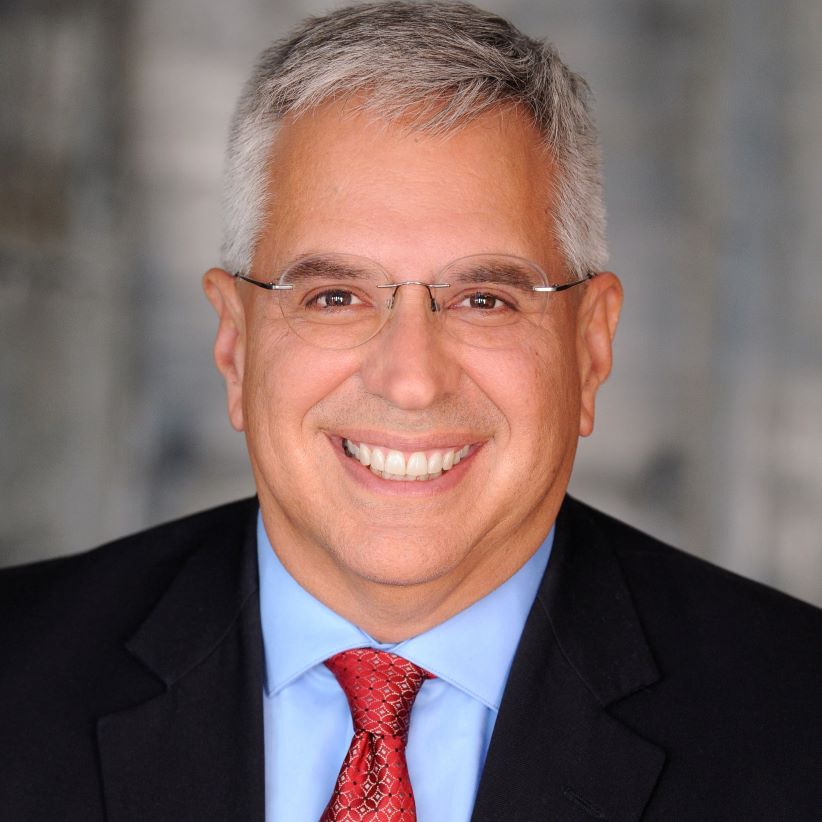 Mayor Juan González brings a long-standing passion for innovation. He values forward-looking strategic investments, be they investments in youth education and training, or process and technology investments that drive greater efficiency and improved outcomes. Whether as a high school debater proclaiming that fossil fuels are finite or as a board member of Ava Community Energy offering strategic guidance on clean energy choices, Dr. González knows that innovative and sustainable energy outcomes depend on an ecosystem of partners working collaboratively and effectively. Prior to serving as an elected leader, Dr. González served for 25 years as a Principal in KPMG’s advisory practice, where he led teams conducting statistical and financial analysis for clients in diverse industries. He holds a doctorate in economics from the Massachusetts Institute of Technology and a B.A. with highest honors from the University of Texas.
Mayor Juan González brings a long-standing passion for innovation. He values forward-looking strategic investments, be they investments in youth education and training, or process and technology investments that drive greater efficiency and improved outcomes. Whether as a high school debater proclaiming that fossil fuels are finite or as a board member of Ava Community Energy offering strategic guidance on clean energy choices, Dr. González knows that innovative and sustainable energy outcomes depend on an ecosystem of partners working collaboratively and effectively. Prior to serving as an elected leader, Dr. González served for 25 years as a Principal in KPMG’s advisory practice, where he led teams conducting statistical and financial analysis for clients in diverse industries. He holds a doctorate in economics from the Massachusetts Institute of Technology and a B.A. with highest honors from the University of Texas.
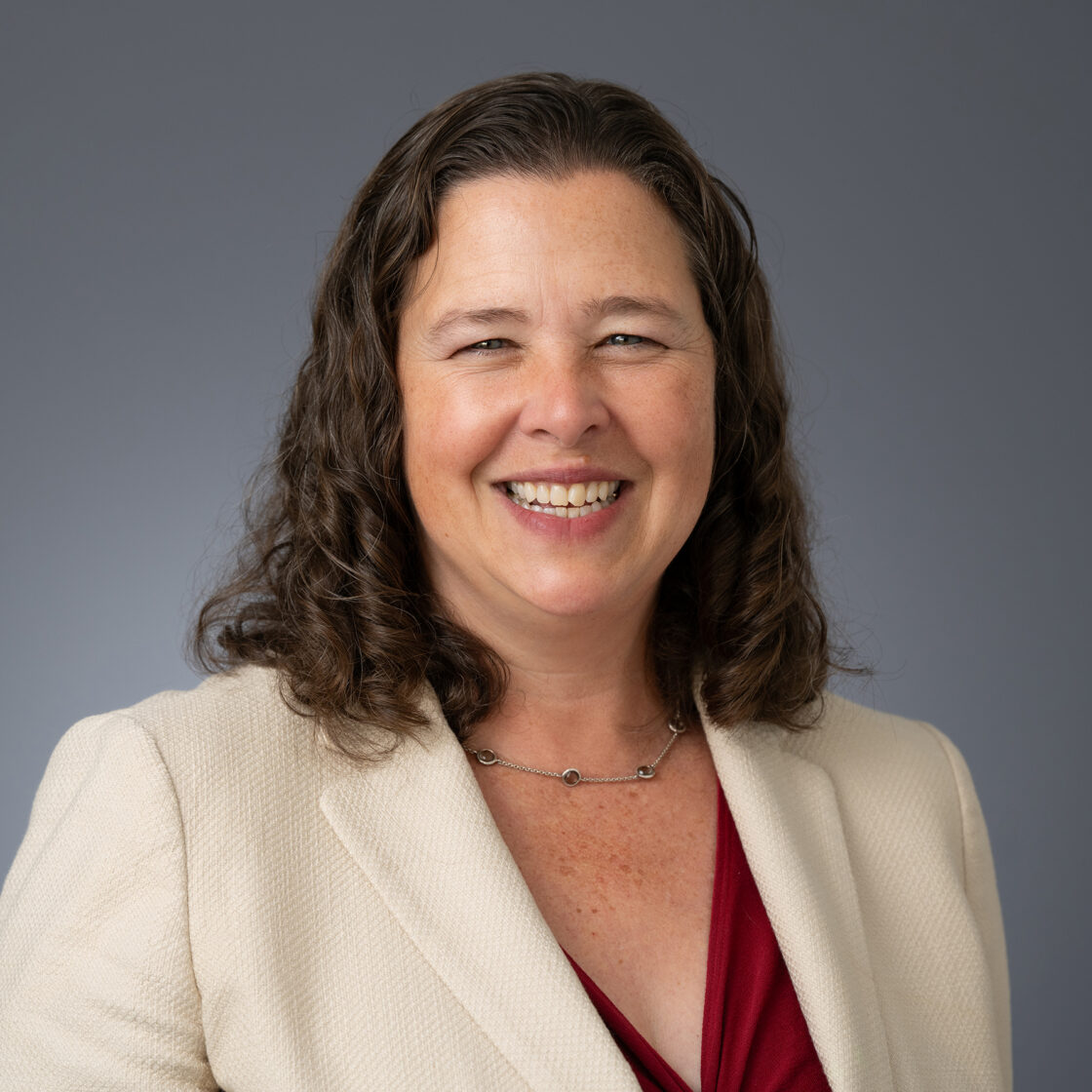 Kate Gordon is the CEO of CA FWD, a statewide organization dedicated to a more sustainable, resilient, and inclusive economy across every region of the state. Gordon has spent the past two decades working at the intersection of climate change, energy policy, and equitable economic development. Kate has been able to make notable contributions to climate and energy policy both at the Federal and State level. Before entering public service, she served in senior leadership positions at several nonpartisan think tanks.
Kate holds both a J.D. and a Masters in City and Regional Planning from the University of California, Berkeley, which she pursued after completing her undergraduate degree at Wesleyan University. She serves as a Non-resident Scholar at Carnegie California.
Kate Gordon is the CEO of CA FWD, a statewide organization dedicated to a more sustainable, resilient, and inclusive economy across every region of the state. Gordon has spent the past two decades working at the intersection of climate change, energy policy, and equitable economic development. Kate has been able to make notable contributions to climate and energy policy both at the Federal and State level. Before entering public service, she served in senior leadership positions at several nonpartisan think tanks.
Kate holds both a J.D. and a Masters in City and Regional Planning from the University of California, Berkeley, which she pursued after completing her undergraduate degree at Wesleyan University. She serves as a Non-resident Scholar at Carnegie California.
 Timothy Grayson was first elected to the Assembly in November 2016 and represents the 15th District, which encompasses portions of Contra Costa County. As an Assemblymember, Grayson has focused on addressing California’s housing and affordability crises, increasing our budget reserves and access to higher education, and supporting victims of crimes, amongst other priorities. Grayson serves as Chair for the Banking and Finance Committee and the Select Committee on Streamlining Services for Victims of Interpersonal Violence. A longtime East Bay resident, Tim lives in Concord where he raised his two kids with his wife of more than 35 years, Tammy.
Timothy Grayson was first elected to the Assembly in November 2016 and represents the 15th District, which encompasses portions of Contra Costa County. As an Assemblymember, Grayson has focused on addressing California’s housing and affordability crises, increasing our budget reserves and access to higher education, and supporting victims of crimes, amongst other priorities. Grayson serves as Chair for the Banking and Finance Committee and the Select Committee on Streamlining Services for Victims of Interpersonal Violence. A longtime East Bay resident, Tim lives in Concord where he raised his two kids with his wife of more than 35 years, Tammy.
 Lauren Greenwood serves as the Deputy Director of Legislative & External Affairs at the Governor’s Office of Business & Economic Development. In this role, she leads GO-Biz’s legislative portfolio which supports a range of industries including but not limited to economic development, clean energy, zero-emission vehicles, technology, insurance, public financing, entertainment, and tourism. Prior to joining the Newsom Administration in 2022, Lauren led Western states government affairs for a startup focused on micromobility and clean transportation. Lauren holds a Master of Business Administration degree from the University of California, Berkeley Haas School of Business as well as a Bachelor of Arts degree from the California State University, Sacramento.
Lauren Greenwood serves as the Deputy Director of Legislative & External Affairs at the Governor’s Office of Business & Economic Development. In this role, she leads GO-Biz’s legislative portfolio which supports a range of industries including but not limited to economic development, clean energy, zero-emission vehicles, technology, insurance, public financing, entertainment, and tourism. Prior to joining the Newsom Administration in 2022, Lauren led Western states government affairs for a startup focused on micromobility and clean transportation. Lauren holds a Master of Business Administration degree from the University of California, Berkeley Haas School of Business as well as a Bachelor of Arts degree from the California State University, Sacramento.
 Tim Haile is the Executive Director of the Contra Costa Transportation Authority. CCTA is Contra Costa’s designated Congestion Management Agency, responsible for putting programs in place to keep traffic levels manageable and works to plan, fund, and implement innovative transit programs that strengthen our diverse communities and improve the lives of residents. He is an award-winning transportation expert and advocate for redefining mobility. Tim has a proven track record of being a champion of change and strives to advance emerging technologies and transportation solutions that are safe, equitable, sustainable, and accessible. His people centered mobility approach has developed award winning programs, such as Innovate 680, to connect communities providing customer focused mobility options to travelers by understanding people’s needs through travel behavior research and encourage travelers to move toward shared mobility. Tim is a recognized industry leader in connected and autonomous vehicles through GoMentum Station, the largest autonomous vehicle testing facility in the Country, and deployments in Contra Costa County including the first shared autonomous vehicles open and free to the public in the Bay Area. Through his leadership, CCTA created the Dynamic Personal Microtransit autonomous vehicle project, a 28-mile connected autonomous vehicle network to support public transportation being delivered through a public private partnership. In recognition of his knowledge and outstanding leadership, Tim received the 2023 ITS Distinguished Award for Advancement of Research and Innovation from Berkeley Institute of Transportation Studies. In 2021, he was nationally recognized by Government Technology publication for Innovative Leadership.
Tim Haile is the Executive Director of the Contra Costa Transportation Authority. CCTA is Contra Costa’s designated Congestion Management Agency, responsible for putting programs in place to keep traffic levels manageable and works to plan, fund, and implement innovative transit programs that strengthen our diverse communities and improve the lives of residents. He is an award-winning transportation expert and advocate for redefining mobility. Tim has a proven track record of being a champion of change and strives to advance emerging technologies and transportation solutions that are safe, equitable, sustainable, and accessible. His people centered mobility approach has developed award winning programs, such as Innovate 680, to connect communities providing customer focused mobility options to travelers by understanding people’s needs through travel behavior research and encourage travelers to move toward shared mobility. Tim is a recognized industry leader in connected and autonomous vehicles through GoMentum Station, the largest autonomous vehicle testing facility in the Country, and deployments in Contra Costa County including the first shared autonomous vehicles open and free to the public in the Bay Area. Through his leadership, CCTA created the Dynamic Personal Microtransit autonomous vehicle project, a 28-mile connected autonomous vehicle network to support public transportation being delivered through a public private partnership. In recognition of his knowledge and outstanding leadership, Tim received the 2023 ITS Distinguished Award for Advancement of Research and Innovation from Berkeley Institute of Transportation Studies. In 2021, he was nationally recognized by Government Technology publication for Innovative Leadership.
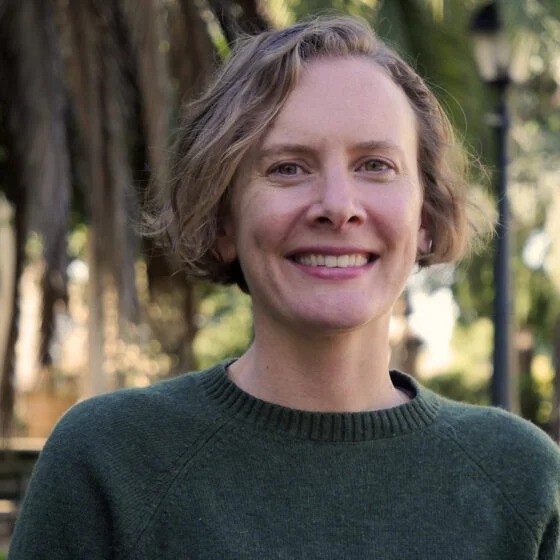 Jessie HF Hammerling is the co-director of the Green Economy Program at the UC Berkeley Labor Center. She works in collaboration with government, industry, unions, and community stakeholders to understand the impacts of the energy transition and to develop strategies for decarbonizing the economy that generate quality jobs and equitable outcomes. In prior years, Dr. Hammerling worked with the Labor Center’s Technology and Work Program, where she helped lead research to inform worker-driven responses to managing technological change. Dr. Hammerling has a Ph.D. in geography from UC Davis and a Master of Public Policy from the University of Wisconsin–Madison.
Jessie HF Hammerling is the co-director of the Green Economy Program at the UC Berkeley Labor Center. She works in collaboration with government, industry, unions, and community stakeholders to understand the impacts of the energy transition and to develop strategies for decarbonizing the economy that generate quality jobs and equitable outcomes. In prior years, Dr. Hammerling worked with the Labor Center’s Technology and Work Program, where she helped lead research to inform worker-driven responses to managing technological change. Dr. Hammerling has a Ph.D. in geography from UC Davis and a Master of Public Policy from the University of Wisconsin–Madison.
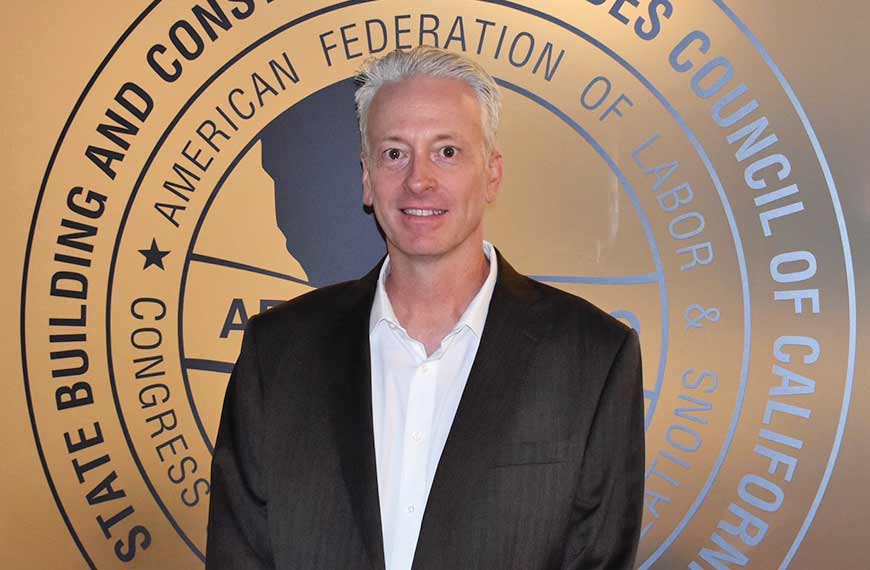 Chris Hannan has served as President of the State Building and Construction Trades Council since July of 2023. Previously, Hannan served as Executive Secretary of the Los Angeles/Orange Counties Building and Construction Trades Council. Over the last 17 years, he has negotiated numerous project labor agreements and collective bargaining agreements covering public works and private construction including in the commercial, industrial and residential sectors. His work provided family supporting careers for thousands of union members by providing representation and uplifting apprenticeship readiness programs. Hannan, a 28-year union member, began his career as an apprentice at Sprinkler Fitters UA Local 709 and became a journeyman, apprenticeship instructor, and then President of the local. He has served on various nonprofit boards and currently serves as a board member of the California Federation of Labor, Alliance for Renewable Clean Hydrogen Energy Systems (ARCHES) and Union Yes Federal Credit Union. Hannan resides in Orange County with his wife and two children.
Chris Hannan has served as President of the State Building and Construction Trades Council since July of 2023. Previously, Hannan served as Executive Secretary of the Los Angeles/Orange Counties Building and Construction Trades Council. Over the last 17 years, he has negotiated numerous project labor agreements and collective bargaining agreements covering public works and private construction including in the commercial, industrial and residential sectors. His work provided family supporting careers for thousands of union members by providing representation and uplifting apprenticeship readiness programs. Hannan, a 28-year union member, began his career as an apprentice at Sprinkler Fitters UA Local 709 and became a journeyman, apprenticeship instructor, and then President of the local. He has served on various nonprofit boards and currently serves as a board member of the California Federation of Labor, Alliance for Renewable Clean Hydrogen Energy Systems (ARCHES) and Union Yes Federal Credit Union. Hannan resides in Orange County with his wife and two children.
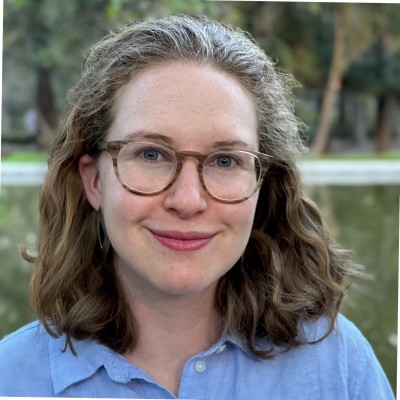 Hannah Hauptman serves as a Senior Deployment Manager in DOE’s Office of Manufacturing and Energy Supply Chains (MESC). At DOE, she advises on Community Benefits Plans and manages DOE manufacturing workforce development initiatives, especially within the Industrial Training and Assessment Center (ITAC) Program. The ITAC network funds workforce development and manufacturer assistance programs that train students, apprentices, and incumbent workers for high-quality jobs in clean energy and manufacturing, all while strengthening the US industrial base of small and medium-sized manufacturers. Prior to DOE, Hannah worked as an advisor to leading philanthropies and nonprofits on their climate grantmaking and impact investing strategies.
Hannah Hauptman serves as a Senior Deployment Manager in DOE’s Office of Manufacturing and Energy Supply Chains (MESC). At DOE, she advises on Community Benefits Plans and manages DOE manufacturing workforce development initiatives, especially within the Industrial Training and Assessment Center (ITAC) Program. The ITAC network funds workforce development and manufacturer assistance programs that train students, apprentices, and incumbent workers for high-quality jobs in clean energy and manufacturing, all while strengthening the US industrial base of small and medium-sized manufacturers. Prior to DOE, Hannah worked as an advisor to leading philanthropies and nonprofits on their climate grantmaking and impact investing strategies.
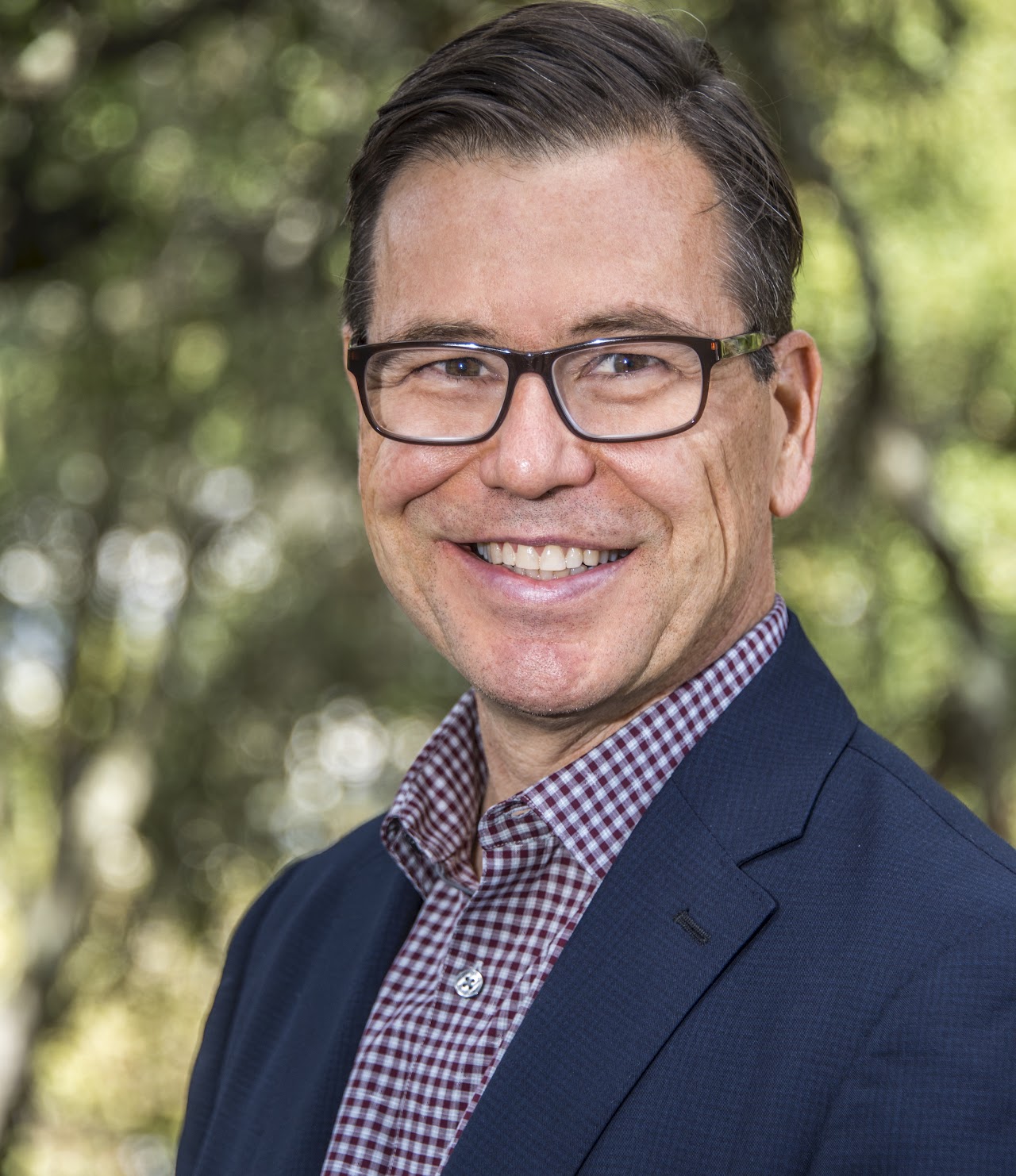 Jim Hawley is the Director for State and External Relations at Berkeley Lab. A Bay Area native, he manages the Lab’s relationships with the states, particularly the State of California, as well as the Lab’s participation in outside organizations and civic groups. Prior to his work at the Lab, he built and managed the clean energy and sustainability practice for the Sacramento office of a national public affairs firm. Before that, he established and managed the multi-state advocacy program for TechNet, one of the technology industry’s leading national trade associations. An attorney by training, he previously represented emerging growth companies in Silicon Valley. He started his career on Capitol Hill in both the personal and leadership offices of U.S. Representative Richard Gephardt. He is a graduate of Georgetown University Law Center and Amherst College, magna cum laude, as well as an avid cyclist, swimmer, and fly-fisherman.
Jim Hawley is the Director for State and External Relations at Berkeley Lab. A Bay Area native, he manages the Lab’s relationships with the states, particularly the State of California, as well as the Lab’s participation in outside organizations and civic groups. Prior to his work at the Lab, he built and managed the clean energy and sustainability practice for the Sacramento office of a national public affairs firm. Before that, he established and managed the multi-state advocacy program for TechNet, one of the technology industry’s leading national trade associations. An attorney by training, he previously represented emerging growth companies in Silicon Valley. He started his career on Capitol Hill in both the personal and leadership offices of U.S. Representative Richard Gephardt. He is a graduate of Georgetown University Law Center and Amherst College, magna cum laude, as well as an avid cyclist, swimmer, and fly-fisherman.
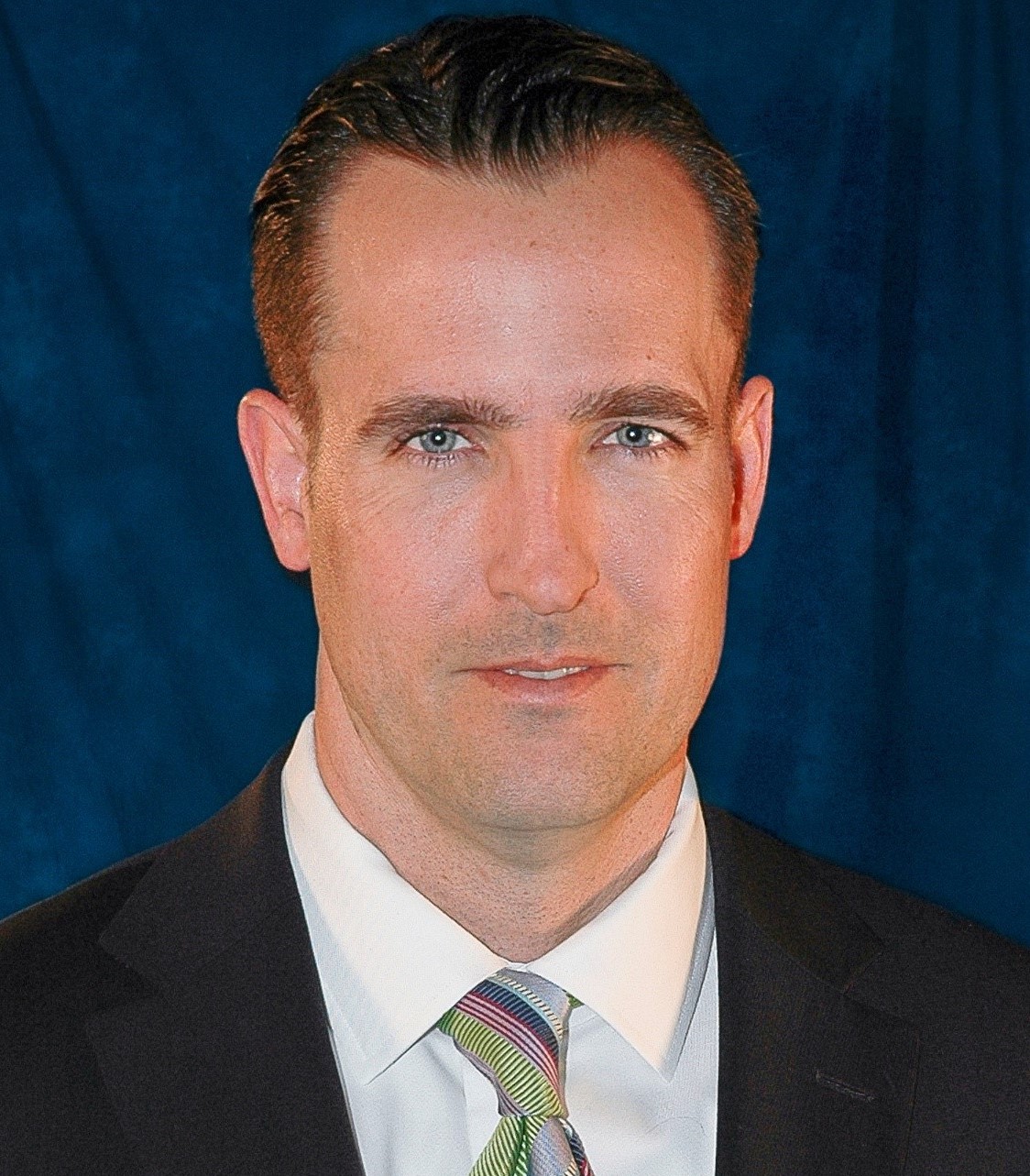 Patrick Henning joins the State Treasurer’s Office as its new Chief Deputy Treasurer. He returns to public service from his position as Director of Legislative Advocacy for the Coalition for Renewable Natural Gas. Prior to that, Patrick served the past four Governors of the State of California honorably, including as Director of California’s Employment Development Department, Chief Deputy Appointments Secretary in the Office of Governor Edmund G. Brown Jr., Legislative Advocate for the California State Council of Laborers from 2004 to 2011, Assistant Secretary for Legislation and Intergovernmental Affairs at the California Labor and Workforce Development Agency from 2003 to 2004, and as Deputy Director for Legislation at the California Department of Industrial Relations from 2000 to 2003. From 1999 to 2000, Patrick served as a congressional liaison and special advisor to the President in the Executive Office of President William J. Clinton, Office of Presidential Personnel. He also served as a legislative assistant in the Office of Congressman Vic Fazio from 1996 to 1999 and a legislative intern for California State Assemblymember Hilda Solis from 1994 to 1995. He was a former Elected Board Secretary and Board of Directors member to the National Association of State Workforce Agencies (NASWA). He was an appointed member of the West Sacramento Economic Development Advisory Commission, an appointed member of the Mental Health Services Oversight and Accountability Commission from 2005 to 2011, an appointed member of the California Career Technical Education Standards and Framework Advisory Group in 2003, and an appointed member of the California State Assembly Speaker’s Commission on Labor Education from 2001 to 2010.
Patrick Henning joins the State Treasurer’s Office as its new Chief Deputy Treasurer. He returns to public service from his position as Director of Legislative Advocacy for the Coalition for Renewable Natural Gas. Prior to that, Patrick served the past four Governors of the State of California honorably, including as Director of California’s Employment Development Department, Chief Deputy Appointments Secretary in the Office of Governor Edmund G. Brown Jr., Legislative Advocate for the California State Council of Laborers from 2004 to 2011, Assistant Secretary for Legislation and Intergovernmental Affairs at the California Labor and Workforce Development Agency from 2003 to 2004, and as Deputy Director for Legislation at the California Department of Industrial Relations from 2000 to 2003. From 1999 to 2000, Patrick served as a congressional liaison and special advisor to the President in the Executive Office of President William J. Clinton, Office of Presidential Personnel. He also served as a legislative assistant in the Office of Congressman Vic Fazio from 1996 to 1999 and a legislative intern for California State Assemblymember Hilda Solis from 1994 to 1995. He was a former Elected Board Secretary and Board of Directors member to the National Association of State Workforce Agencies (NASWA). He was an appointed member of the West Sacramento Economic Development Advisory Commission, an appointed member of the Mental Health Services Oversight and Accountability Commission from 2005 to 2011, an appointed member of the California Career Technical Education Standards and Framework Advisory Group in 2003, and an appointed member of the California State Assembly Speaker’s Commission on Labor Education from 2001 to 2010.
 Subra is currently the CTO of the energy storage group in Applied Materials. He has 20+ years leading materials development for Li-ion battery and process scale-up activity. Prior to joining Applied Materials, Subra worked at Panasonic battery division as a senior technologist. Subra worked in Germany (Alexander von Humboldt fellow), Canada (U. Waterloo) and US Ames Lab (US_DOE) and had wide chemistry and materials engineering experience from discovery of new material to optimize material for battery application. Subra obtained PhD degree in Solid state chemistry from the IISc Bangalore and Masters in Chemistry form the Mangalore University. Currently he is the principal investigator for US Department of Energy (DOE) programs - EERE and USABC funded programs (>$25m); leading 2 US-Army funded programs. He is a strong proponent of collaborative engagement in R&D and process development for energy storage application.
Subra is currently the CTO of the energy storage group in Applied Materials. He has 20+ years leading materials development for Li-ion battery and process scale-up activity. Prior to joining Applied Materials, Subra worked at Panasonic battery division as a senior technologist. Subra worked in Germany (Alexander von Humboldt fellow), Canada (U. Waterloo) and US Ames Lab (US_DOE) and had wide chemistry and materials engineering experience from discovery of new material to optimize material for battery application. Subra obtained PhD degree in Solid state chemistry from the IISc Bangalore and Masters in Chemistry form the Mangalore University. Currently he is the principal investigator for US Department of Energy (DOE) programs - EERE and USABC funded programs (>$25m); leading 2 US-Army funded programs. He is a strong proponent of collaborative engagement in R&D and process development for energy storage application.
 Chair Hochschild's career has spanned public service, environmental advocacy, and the private sector. He first got involved in the solar energy field in 2001 in San Francisco. He co-founded the Vote Solar Initiative, an advocacy organization promoting solar policies. He was executive director of a national consortium of leading solar manufacturers. From 2007 to 2008, he served as a commissioner at the San Francisco Public Utilities Commission. For his work to advance clean energy, Chair Hochschild was awarded the Sierra Club's Trailblazer Award, the American Lung Association's Clean Air Hero Award, and the U.S. Department of Energy's Million Solar Roof True Champion Award. Chair Hochschild holds a bachelor of arts from Swarthmore College and a master of public policy from the John F. Kennedy School of Government at Harvard University. He also was a Coro Fellow in Public Affairs.
Chair Hochschild's career has spanned public service, environmental advocacy, and the private sector. He first got involved in the solar energy field in 2001 in San Francisco. He co-founded the Vote Solar Initiative, an advocacy organization promoting solar policies. He was executive director of a national consortium of leading solar manufacturers. From 2007 to 2008, he served as a commissioner at the San Francisco Public Utilities Commission. For his work to advance clean energy, Chair Hochschild was awarded the Sierra Club's Trailblazer Award, the American Lung Association's Clean Air Hero Award, and the U.S. Department of Energy's Million Solar Roof True Champion Award. Chair Hochschild holds a bachelor of arts from Swarthmore College and a master of public policy from the John F. Kennedy School of Government at Harvard University. He also was a Coro Fellow in Public Affairs.
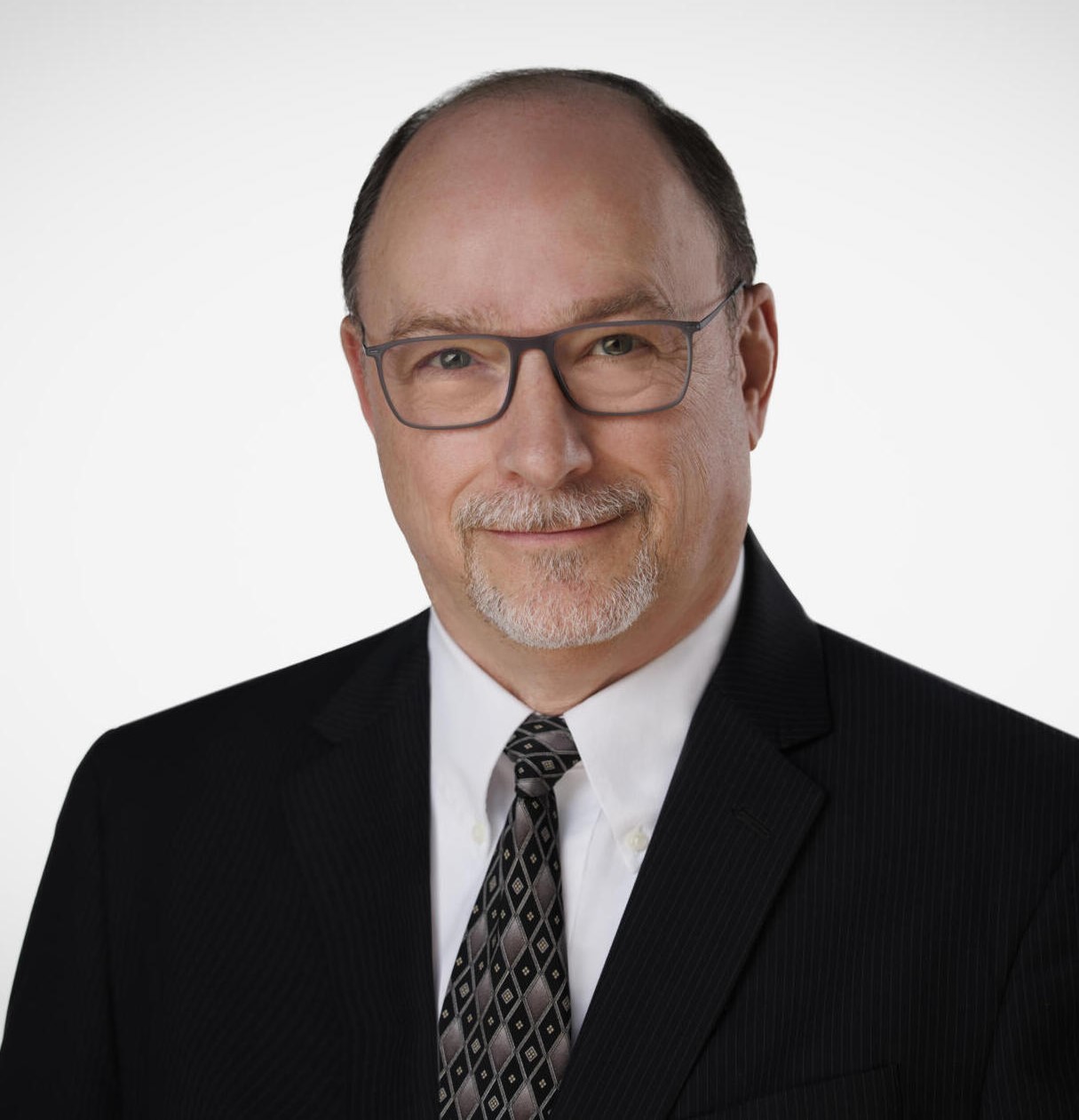 David Howell, Vice President, boasts 38+ years of expertise in steering complex research, development, and manufacturing endeavors, spanning high-power/high-capacity batteries, critical minerals, electric vehicle drive systems, connected and autonomous vehicles, and advanced polymer and intermetallic materials. Prior to joining SMI, he worked with the U.S. Department of Energy for two decades, with Dave serving as the Principal Deputy Director of the Office of Manufacturing and Energy Supply Chains, leading efforts to establish multi-billion-dollar programs under the Bipartisan Infrastructure Law and Inflation Reduction Act. His roles include directing the DOE’s Vehicle Technologies Office and managing Electric Vehicle R&D. Dave, a Research Associate at Oak Ridge National Laboratory and a former U.S. Air Force officer, was also the founding Chair of the U.S. Federal Consortium for Advanced Batteries. Dave holds a B.S. in Aerospace Engineering from the University of Tennessee.
David Howell, Vice President, boasts 38+ years of expertise in steering complex research, development, and manufacturing endeavors, spanning high-power/high-capacity batteries, critical minerals, electric vehicle drive systems, connected and autonomous vehicles, and advanced polymer and intermetallic materials. Prior to joining SMI, he worked with the U.S. Department of Energy for two decades, with Dave serving as the Principal Deputy Director of the Office of Manufacturing and Energy Supply Chains, leading efforts to establish multi-billion-dollar programs under the Bipartisan Infrastructure Law and Inflation Reduction Act. His roles include directing the DOE’s Vehicle Technologies Office and managing Electric Vehicle R&D. Dave, a Research Associate at Oak Ridge National Laboratory and a former U.S. Air Force officer, was also the founding Chair of the U.S. Federal Consortium for Advanced Batteries. Dave holds a B.S. in Aerospace Engineering from the University of Tennessee.
 Randi Jenkins is Principal Counsel in the intellectual property practice group at University of California Office of General Counsel. She is a member of the California Bar and is admitted to practice before the USPTO. Ms. Jenkins has over twenty years of experience working in research administration, research policy, and patent law. She served as liaison to the California State University system and the California Department of General Services with respect to the implementation and administration of the California Model Agreement. With New Energy Nexus and the California Energy Commission, she co-developed, and managed UC’s involvement in, the California CalTestBed Program. She is a member of the Association of University Technology Managers (AUTM) Legal Task Force, and has taught IP licensing in the U.S., South America, and Asia.
Randi Jenkins is Principal Counsel in the intellectual property practice group at University of California Office of General Counsel. She is a member of the California Bar and is admitted to practice before the USPTO. Ms. Jenkins has over twenty years of experience working in research administration, research policy, and patent law. She served as liaison to the California State University system and the California Department of General Services with respect to the implementation and administration of the California Model Agreement. With New Energy Nexus and the California Energy Commission, she co-developed, and managed UC’s involvement in, the California CalTestBed Program. She is a member of the Association of University Technology Managers (AUTM) Legal Task Force, and has taught IP licensing in the U.S., South America, and Asia.
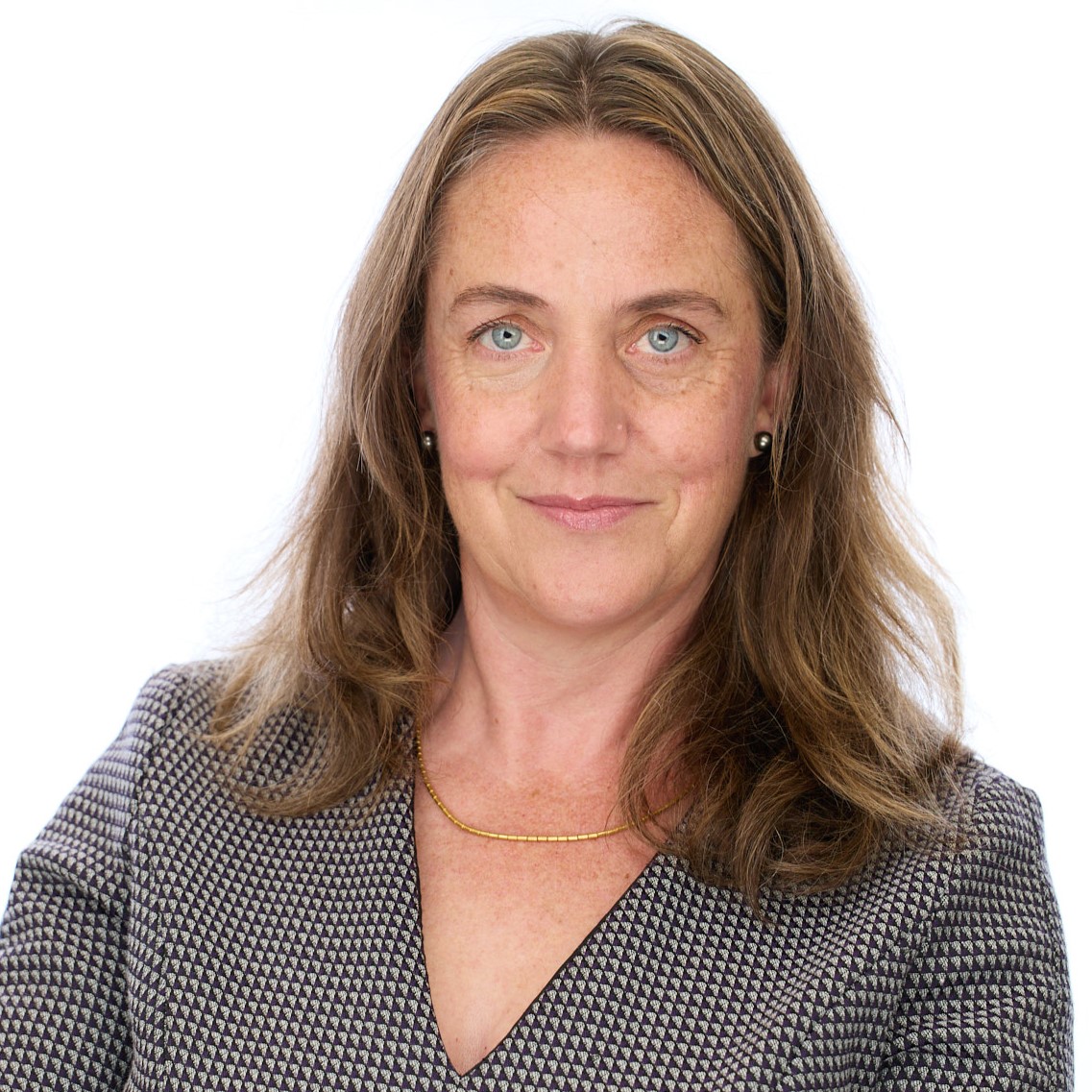 Betony Jones serves as Labor Advisor to the Secretary of Energy and Director of the Office of Energy Jobs. In this role, she shapes U.S. Department of Energy (DOE) policy to prioritize job creation and economic equity within the clean energy sector. Jones’ career began in the Clinton White House, where she tackled climate science policy. Following this, she spent 20 years developing and implementing strategies to maximize employment and economic benefits from climate action. As Associate Director of the Green Economy program at the University of California Labor Center and Founder and CEO of Inclusive Economics, she built a national reputation as a leader in labor-climate issues. Her research and insights have been shared through dozens of publications and reports. Prior to her current role Jones was a Senior Advisor on Workforce for DOE’s Office of Energy Efficiency and Renewable Energy. Now, Jones oversees department-wide workforce development initiatives and fosters collaboration with labor stakeholders to ensure DOE programs deliver on their promise of high-quality jobs and inclusive economic growth. Her proven track record and deep understanding of the intersection between labor, clean energy, and economic opportunity make her a key figure in advancing the Biden-Harris Administration's ambitious climate agenda.
Betony Jones serves as Labor Advisor to the Secretary of Energy and Director of the Office of Energy Jobs. In this role, she shapes U.S. Department of Energy (DOE) policy to prioritize job creation and economic equity within the clean energy sector. Jones’ career began in the Clinton White House, where she tackled climate science policy. Following this, she spent 20 years developing and implementing strategies to maximize employment and economic benefits from climate action. As Associate Director of the Green Economy program at the University of California Labor Center and Founder and CEO of Inclusive Economics, she built a national reputation as a leader in labor-climate issues. Her research and insights have been shared through dozens of publications and reports. Prior to her current role Jones was a Senior Advisor on Workforce for DOE’s Office of Energy Efficiency and Renewable Energy. Now, Jones oversees department-wide workforce development initiatives and fosters collaboration with labor stakeholders to ensure DOE programs deliver on their promise of high-quality jobs and inclusive economic growth. Her proven track record and deep understanding of the intersection between labor, clean energy, and economic opportunity make her a key figure in advancing the Biden-Harris Administration's ambitious climate agenda.
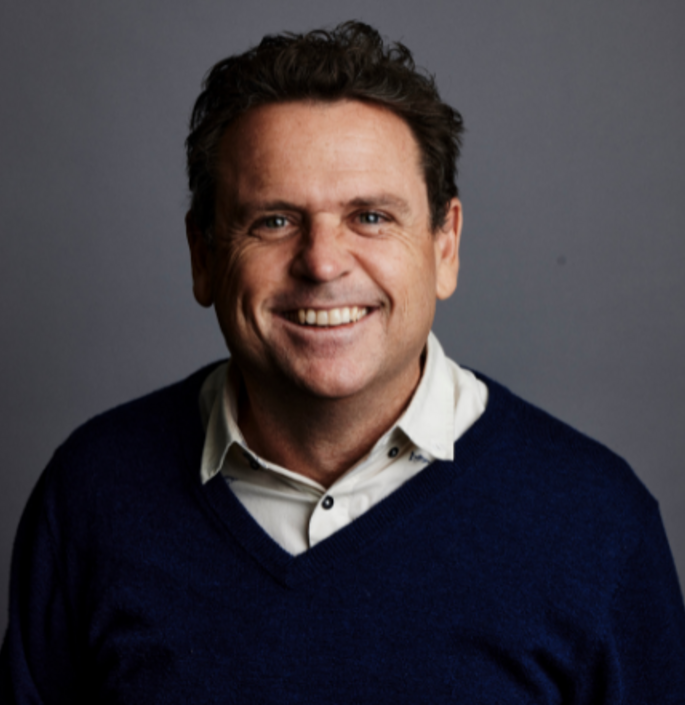 Following a long career as an activist and entrepreneur Danny Kennedy served as CEO of New Energy Nexus, connecting entrepreneurs everywhere to capital to build an abundant clean energy economy that benefits all, from 2015 to July of 2024. During that time he also served as the Managing Director of the California Clean Energy Fund that administered the $33m CalSEED.fund for very early-stage companies driving innovation and building equity in the California economy plus the $12m CalTestBed initiative with the UC Office of the President. He was President of CalCharge, a pioneering cluster of battery interests in the golden state, and the founding Chair of the Board of Third Derivative, a joint-venture with RMI building the world’s largest climatetech accelerator. He remains a partner at NEX Ventures in Singapore and is on the Board of EnergyLab Australia. He advises Wollemi Capital and the Sunrise Project Inc.
Following a long career as an activist and entrepreneur Danny Kennedy served as CEO of New Energy Nexus, connecting entrepreneurs everywhere to capital to build an abundant clean energy economy that benefits all, from 2015 to July of 2024. During that time he also served as the Managing Director of the California Clean Energy Fund that administered the $33m CalSEED.fund for very early-stage companies driving innovation and building equity in the California economy plus the $12m CalTestBed initiative with the UC Office of the President. He was President of CalCharge, a pioneering cluster of battery interests in the golden state, and the founding Chair of the Board of Third Derivative, a joint-venture with RMI building the world’s largest climatetech accelerator. He remains a partner at NEX Ventures in Singapore and is on the Board of EnergyLab Australia. He advises Wollemi Capital and the Sunrise Project Inc.
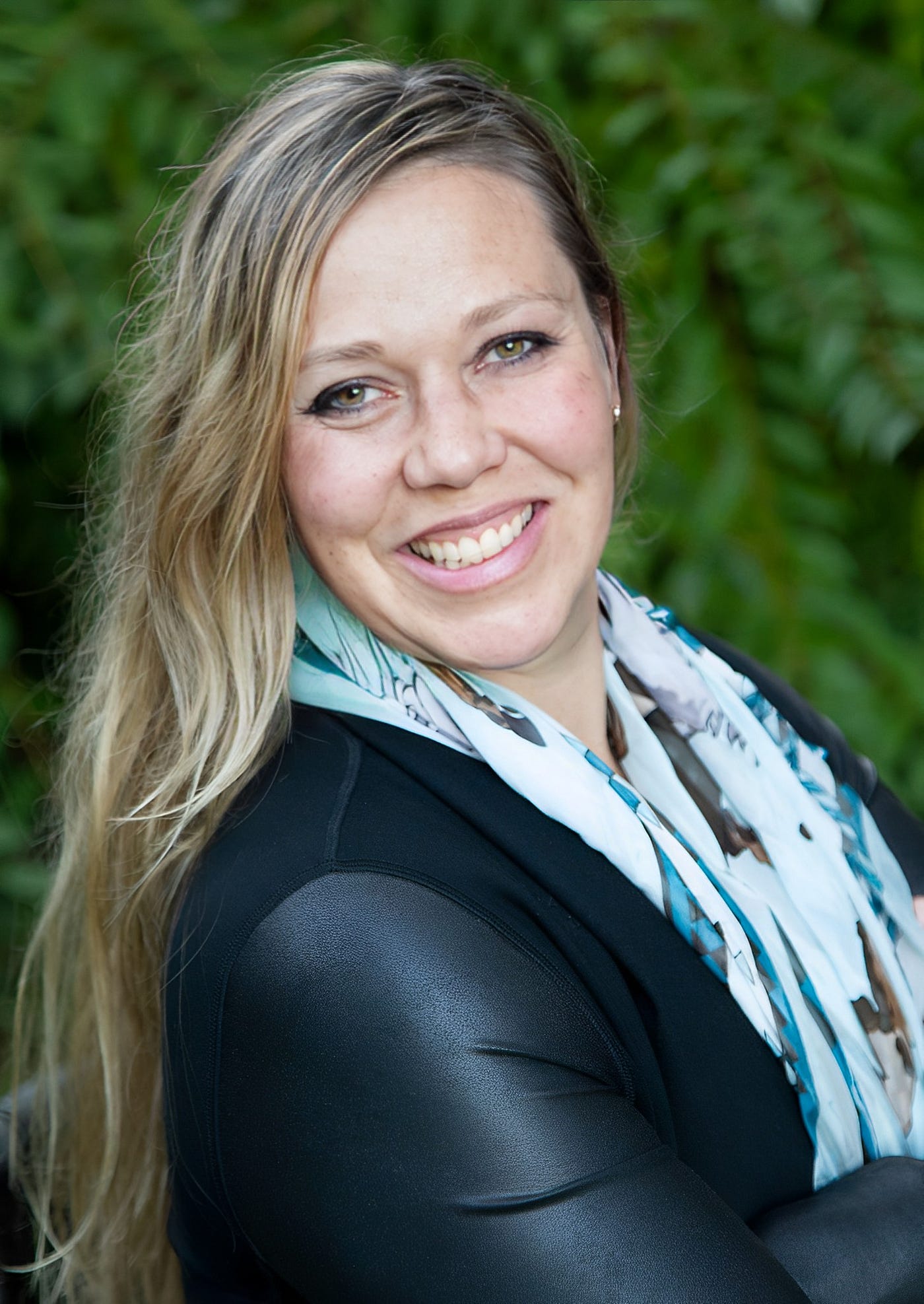 Virginia Klausmeier is the President and CEO of Sylvatex, Inc., a venture backed climate tech company that she founded in 2012. With her background in chemistry and engineering, Virginia has been leading technical and business teams for the last 15 years. She is currently an active collaborator at the world economic forum, national labs, reviewer for scientific awards and grants, and advising climate tech and minority led organizations. She is a fellow of All Raise and Unreasonable Group, as well as a member of Alliance of CEOs, Astia, and E2. Virginia attended University of Oregon earning her B.S. in Chemistry/Economics, M.S. in Engineering, and Executive Program at Singularity University.
Virginia Klausmeier is the President and CEO of Sylvatex, Inc., a venture backed climate tech company that she founded in 2012. With her background in chemistry and engineering, Virginia has been leading technical and business teams for the last 15 years. She is currently an active collaborator at the world economic forum, national labs, reviewer for scientific awards and grants, and advising climate tech and minority led organizations. She is a fellow of All Raise and Unreasonable Group, as well as a member of Alliance of CEOs, Astia, and E2. Virginia attended University of Oregon earning her B.S. in Chemistry/Economics, M.S. in Engineering, and Executive Program at Singularity University.
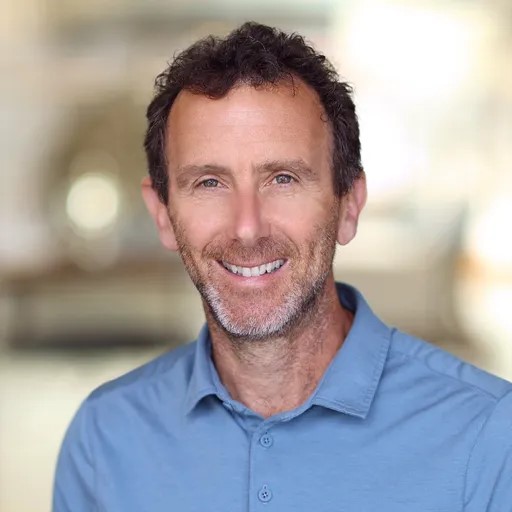 Gabriel Kra co-founded Prelude Ventures in 2013 after almost 25 years as an investor, entrepreneur, scientist, activist, and ski-bum. Before launching Prelude Ventures, Gabriel spent four years as an investment banker with Deutsche Bank in its solar and semiconductor groups. He also was an early employee at venture-backed telecommunications and semiconductor start-ups, where he was instrumental in raising money, launching products, developing technology, and getting acquired. Gabriel’s early experience working a summer at Yellowstone National Park and for Greenpeace sparked his lifelong commitment to fighting climate change. Gabriel holds MBAs from the Columbia Business School and the Haas School of Business, University of California at Berkeley, an MS in atmospheric chemistry from SUNY Stony Brook, and a BA in philosophy from Columbia College. He currently sits on the Board of Directors for Activate and The CREO Syndicate and the Advisory Board for Carbon180.
Gabriel Kra co-founded Prelude Ventures in 2013 after almost 25 years as an investor, entrepreneur, scientist, activist, and ski-bum. Before launching Prelude Ventures, Gabriel spent four years as an investment banker with Deutsche Bank in its solar and semiconductor groups. He also was an early employee at venture-backed telecommunications and semiconductor start-ups, where he was instrumental in raising money, launching products, developing technology, and getting acquired. Gabriel’s early experience working a summer at Yellowstone National Park and for Greenpeace sparked his lifelong commitment to fighting climate change. Gabriel holds MBAs from the Columbia Business School and the Haas School of Business, University of California at Berkeley, an MS in atmospheric chemistry from SUNY Stony Brook, and a BA in philosophy from Columbia College. He currently sits on the Board of Directors for Activate and The CREO Syndicate and the Advisory Board for Carbon180.
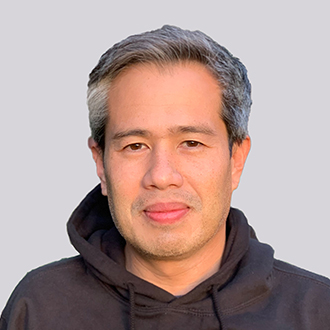 GJ la O’ is the co-founder and CEO of Tyfast. Before Tyfast, he spent a decade leading technology development and commercialization of grid-scale energy storage at Primus Power where he helped raise $100M in venture capital. At Tyfast, la O’ leads product, market, and funding roadmaps. He has published over twenty articles and has been issued 23 patents. He is a material scientist and earned his bachelor’s degree from UC Berkeley and his Ph.D. from the Massachusetts Institute of Technology.
GJ la O’ is the co-founder and CEO of Tyfast. Before Tyfast, he spent a decade leading technology development and commercialization of grid-scale energy storage at Primus Power where he helped raise $100M in venture capital. At Tyfast, la O’ leads product, market, and funding roadmaps. He has published over twenty articles and has been issued 23 patents. He is a material scientist and earned his bachelor’s degree from UC Berkeley and his Ph.D. from the Massachusetts Institute of Technology.
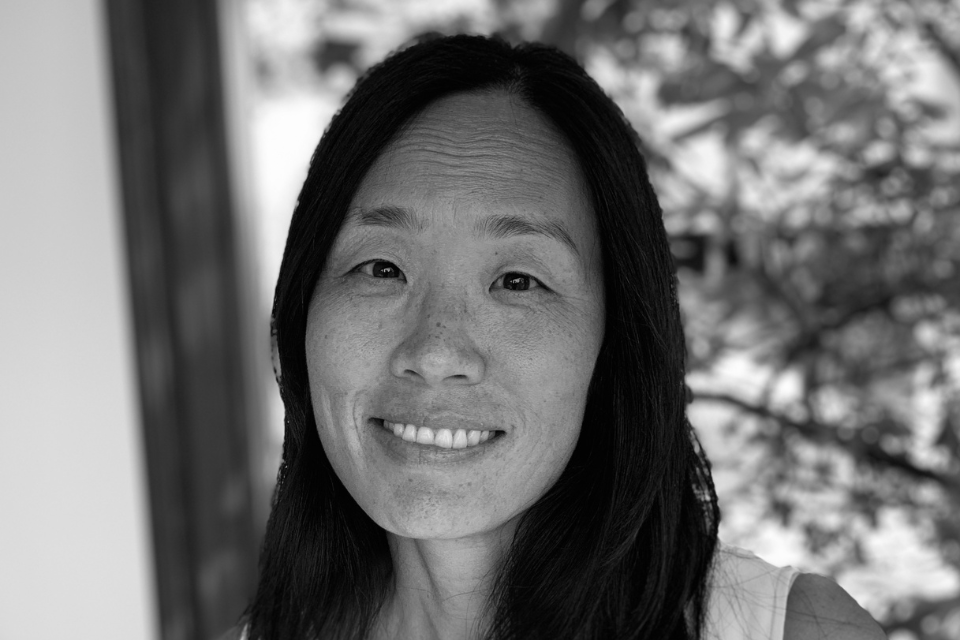 Rebecca Lee is the Managing Director of California at New Energy Nexus, a global non-profit organization working to accelerate a just and equitable clean energy future by supporting diverse clean energy entrepreneurs with funds, accelerators, and networks. Previously, she led the regulatory team at Sungevity, a residential solar developer and more recently, was a Senior Fellow at Gridworks where she engaged policymakers, advocates, energy providers and utilities to develop collaborative frameworks to advance equity and accelerate decarbonization and was a lead author and researcher for "Advancing High Road Labor Standards in Transportation Electrification.”
Rebecca Lee is the Managing Director of California at New Energy Nexus, a global non-profit organization working to accelerate a just and equitable clean energy future by supporting diverse clean energy entrepreneurs with funds, accelerators, and networks. Previously, she led the regulatory team at Sungevity, a residential solar developer and more recently, was a Senior Fellow at Gridworks where she engaged policymakers, advocates, energy providers and utilities to develop collaborative frameworks to advance equity and accelerate decarbonization and was a lead author and researcher for "Advancing High Road Labor Standards in Transportation Electrification.”
 Michael Likosky is a strategic advisor in public-private coinvestment within infrastructure, Climate, technology, natural resources, global advanced manufacturing, and subsea cables. He has served as a trusted expert to Governors (CA, NY, NJ), US Treasury, US Senator (NY, MA, NJ, FL), Mayors (LA, Chicago), as well as OECD, UNCTAD, and European Commission. His private clients include Google, Meta, Grupo CCR, Goldman Sachs Partners, Lazard, DE Shaw, Clinton Global Initiative, and Macquarie. Michael has received awards from Arts and Humanities Research Council (3x), Ford Foundation (4x), Rockefeller Foundation (2x), The Carter Center, and Markle Foundation (3x). He holds a DPhil in Law from Oxford University. Michael held the Professorship of International Economic Law from the University of London, and has written five books (3 with Cambridge University Press). He regularly contributes to the NY Times, Wall Street Journal, CNBC, Politico, and McKinsey Matters.
Michael Likosky is a strategic advisor in public-private coinvestment within infrastructure, Climate, technology, natural resources, global advanced manufacturing, and subsea cables. He has served as a trusted expert to Governors (CA, NY, NJ), US Treasury, US Senator (NY, MA, NJ, FL), Mayors (LA, Chicago), as well as OECD, UNCTAD, and European Commission. His private clients include Google, Meta, Grupo CCR, Goldman Sachs Partners, Lazard, DE Shaw, Clinton Global Initiative, and Macquarie. Michael has received awards from Arts and Humanities Research Council (3x), Ford Foundation (4x), Rockefeller Foundation (2x), The Carter Center, and Markle Foundation (3x). He holds a DPhil in Law from Oxford University. Michael held the Professorship of International Economic Law from the University of London, and has written five books (3 with Cambridge University Press). He regularly contributes to the NY Times, Wall Street Journal, CNBC, Politico, and McKinsey Matters.
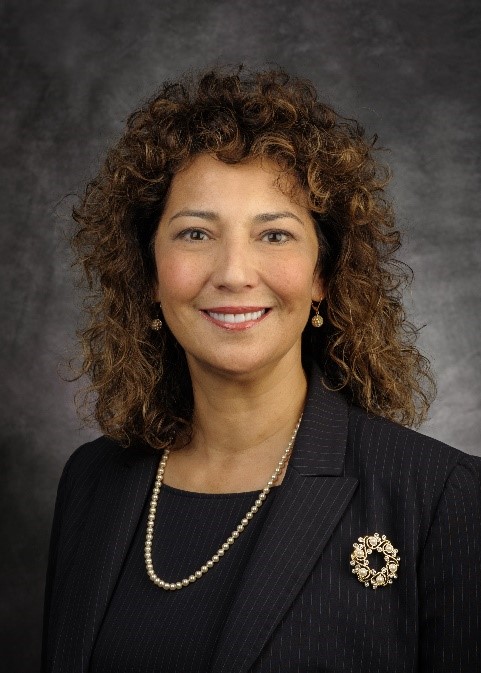 Theresa A. Maldonado is the systemwide Vice President for Research & Innovation (R&I) at the University of California Office of the President (UCOP). In this role she leads large-scale efforts that utilize the expertise and assets of the UC system’s 10 campuses, three UC-managed DOE national labs, UC Agriculture & Natural Resources (ANR), and UC Health. Recent achievements include leading the $100M California Climate Action Initiative, steering California’s $1.2B DOE Alliance for Renewable Clean Hydrogen Energy Systems (ARCHES), and facilitating the UC and statewide response to the CHIPS Act opportunities. In addition, she is working to revitalize UC’s innovation transfer ecosystem. R&I also provides oversight of multi-campus research centers and institutes. In addition to her 33-year academic experience, Dr. Maldonado has extensive experience at the federal level, having served two terms at the National Science Foundation for a total of six years, including four years as Division Director in the Engineering Directorate. She earned a BEE with Highest Honors, MSEE, and PhD degrees in Electrical Engineering from the Georgia Institute of Technology. Her research background is in nonlinear optical devices and materials, electromagnetics, and optical fiber technologies. Dr. Maldonado is a registered Professional Engineer in Texas.
Theresa A. Maldonado is the systemwide Vice President for Research & Innovation (R&I) at the University of California Office of the President (UCOP). In this role she leads large-scale efforts that utilize the expertise and assets of the UC system’s 10 campuses, three UC-managed DOE national labs, UC Agriculture & Natural Resources (ANR), and UC Health. Recent achievements include leading the $100M California Climate Action Initiative, steering California’s $1.2B DOE Alliance for Renewable Clean Hydrogen Energy Systems (ARCHES), and facilitating the UC and statewide response to the CHIPS Act opportunities. In addition, she is working to revitalize UC’s innovation transfer ecosystem. R&I also provides oversight of multi-campus research centers and institutes. In addition to her 33-year academic experience, Dr. Maldonado has extensive experience at the federal level, having served two terms at the National Science Foundation for a total of six years, including four years as Division Director in the Engineering Directorate. She earned a BEE with Highest Honors, MSEE, and PhD degrees in Electrical Engineering from the Georgia Institute of Technology. Her research background is in nonlinear optical devices and materials, electromagnetics, and optical fiber technologies. Dr. Maldonado is a registered Professional Engineer in Texas.
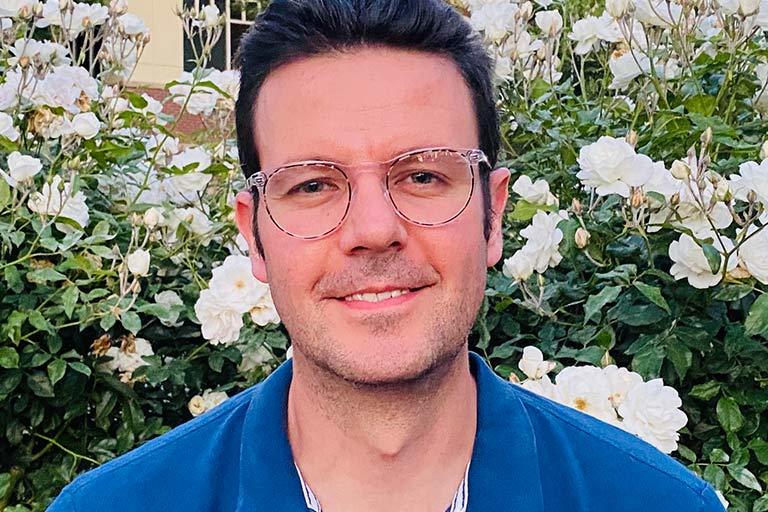 Bryan McCloskey is the Department Chair and Warren & Katharine Schlinger Distinguished Professor in Chemical Engineering in the Department of Chemical and Biomolecular Engineering at the University of California, Berkeley. He also holds a joint appointment as a Faculty Engineer in the Energy Storage and Distributed Resources Division at Lawrence Berkeley National Laboratory. His laboratory explores numerous applications of electrochemistry to energy sustainability, conversion, and storage. Current projects focus on the characterization and development of solid-state batteries, metal-air batteries, Li-ion battery fast charging, low-temperature Li-ion electrolytes, and earth abundant high energy Li-ion cathode materials. He has co-authored more than 150 articles and has won numerous awards for his research, including The Electrochemical Society Charles Tobias Award, The International Society of Electrochemistry Tajima Prize, and the VW/BASF Science Award- Electrochemistry. More information about the McCloskey Lab can be found at the Lab’s website: www.mccloskeylab.com.
Bryan McCloskey is the Department Chair and Warren & Katharine Schlinger Distinguished Professor in Chemical Engineering in the Department of Chemical and Biomolecular Engineering at the University of California, Berkeley. He also holds a joint appointment as a Faculty Engineer in the Energy Storage and Distributed Resources Division at Lawrence Berkeley National Laboratory. His laboratory explores numerous applications of electrochemistry to energy sustainability, conversion, and storage. Current projects focus on the characterization and development of solid-state batteries, metal-air batteries, Li-ion battery fast charging, low-temperature Li-ion electrolytes, and earth abundant high energy Li-ion cathode materials. He has co-authored more than 150 articles and has won numerous awards for his research, including The Electrochemical Society Charles Tobias Award, The International Society of Electrochemistry Tajima Prize, and the VW/BASF Science Award- Electrochemistry. More information about the McCloskey Lab can be found at the Lab’s website: www.mccloskeylab.com.
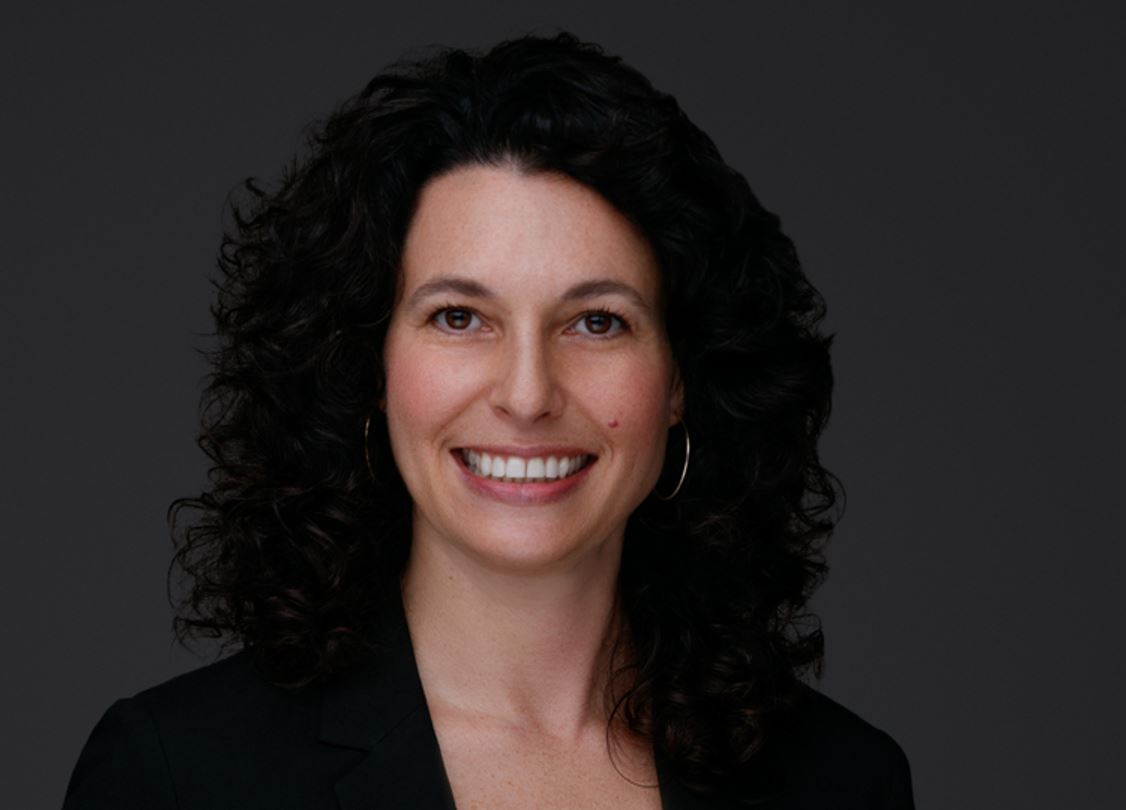 Micah Mitrosky is an International Representative for the International Brotherhood of Electrical Workers 9th District where she covers renewable energy, storage and clean transportation. Prior to her role at the IBEW 9th District, Micah served as Environmental Organizer for IBEW Local Union 569.
Micah Mitrosky is an International Representative for the International Brotherhood of Electrical Workers 9th District where she covers renewable energy, storage and clean transportation. Prior to her role at the IBEW 9th District, Micah served as Environmental Organizer for IBEW Local Union 569.
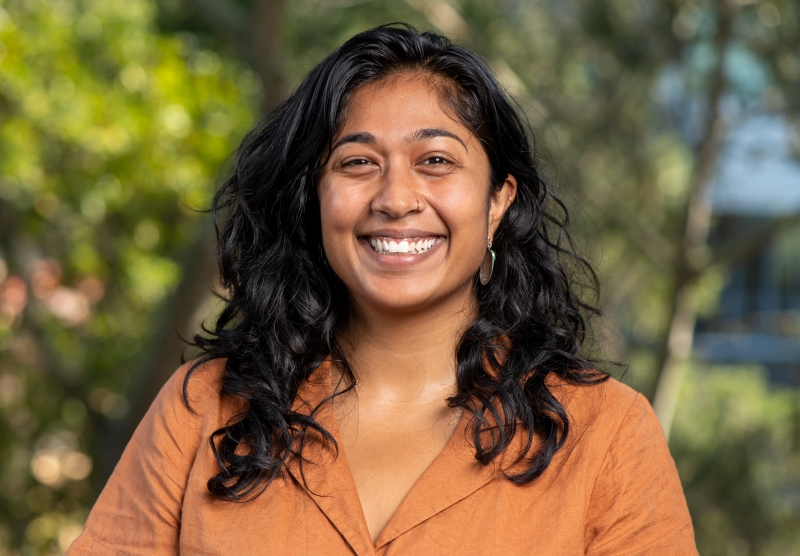 Priyanka Mohanty is the Executive Director of the United Auto Workers (UAW) Center for Manufacturing a Green Economy (CMGE) where she is building the organization that will lead the union’s recruitment and training for careers in climate manufacturing, empowering a well-trained green workforce to meet the growing needs of manufacturing operations created by the Inflation Reduction Act (IRA), the Bipartisan Infrastructure Law (BIL), and the CHIPS Act. Priyanka comes from 9 years in climate policy and activism. Prior to coming to CMGE, she was working as an Affiliate Scientist at Lawrence Berkeley National Lab where she provided scholarship on the techno-economic, policy, regulatory, and socio-economic landscape related to energy transitions and climate workforce development across the power, transport, and industrial sectors in the United States and India. Priyanka has also worked on policy areas surrounding a just climate transition at The California Governor’s Office of Planning and Research and the Socio-Spatial Climate Collaborative. She worked for many years with the New Climate Economy (NCE), a major international initiative housed within the World Resource Institute and governed by the Global Commission on the Economy and Climate. At NCE, she provided research support for their flagship 2018 global report “Unlocking the Inclusive Growth Story of the 21st Century: Accelerating Climate Action in Urgent Times”, authored briefings on climate finance for the 2018 G7 meetings, and managed the project’s country portfolios in China, India and Indonesia, working with government stakeholders in those countries to support a low-carbon development policy agenda. She earned her Master of Science with UC Berkeley’s Energy and Resources Group (ERG). She grew up in Phoenix, but currently lives in Oakland.
Priyanka Mohanty is the Executive Director of the United Auto Workers (UAW) Center for Manufacturing a Green Economy (CMGE) where she is building the organization that will lead the union’s recruitment and training for careers in climate manufacturing, empowering a well-trained green workforce to meet the growing needs of manufacturing operations created by the Inflation Reduction Act (IRA), the Bipartisan Infrastructure Law (BIL), and the CHIPS Act. Priyanka comes from 9 years in climate policy and activism. Prior to coming to CMGE, she was working as an Affiliate Scientist at Lawrence Berkeley National Lab where she provided scholarship on the techno-economic, policy, regulatory, and socio-economic landscape related to energy transitions and climate workforce development across the power, transport, and industrial sectors in the United States and India. Priyanka has also worked on policy areas surrounding a just climate transition at The California Governor’s Office of Planning and Research and the Socio-Spatial Climate Collaborative. She worked for many years with the New Climate Economy (NCE), a major international initiative housed within the World Resource Institute and governed by the Global Commission on the Economy and Climate. At NCE, she provided research support for their flagship 2018 global report “Unlocking the Inclusive Growth Story of the 21st Century: Accelerating Climate Action in Urgent Times”, authored briefings on climate finance for the 2018 G7 meetings, and managed the project’s country portfolios in China, India and Indonesia, working with government stakeholders in those countries to support a low-carbon development policy agenda. She earned her Master of Science with UC Berkeley’s Energy and Resources Group (ERG). She grew up in Phoenix, but currently lives in Oakland.
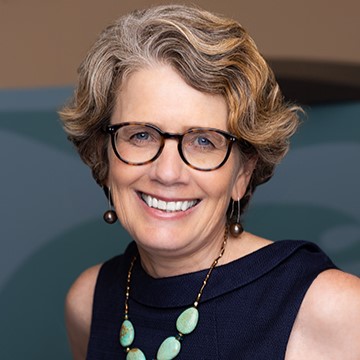 In April 2019, Governor Gavin Newsom appointed Patty Monahan to be one of the five commissioners on the California Energy Commission. She serves in the Energy Commission’s Science/Engineering position and is the lead commissioner on transportation, industrial decarbonization, hydrogen, and ports, and is second for the Disadvantaged Communities Advisory Group. She has dedicated her career toward advancing clean energy technologies and cutting harmful pollution, with a strong focus on equity and transportation. Before joining the Energy Commission, she served as the transportation program director at the Energy Foundation, where she guided campaigns across the United States that advanced electric transportation, more efficient vehicles, and cleaner transportation fuels. She worked for the Union of Concerned Scientists in several roles, including Director of the California office and Deputy Director of Clean Vehicles. She also worked at the U.S. Environmental Protection Agency, Lawrence Berkeley National Laboratory, and several energy-related consulting firms. Commissioner Monahan received the 2019 Advocate Award from Plug-In America, the 2019 Public Sector Leadership award from Forth Mobility, and the 2022 California Clean Air Award from the Coalition for Clean Air. She currently serves on the advisory boards of the U.C. Institute for Transportation Studies, the International Counsel on Clean Transportation, and the World Resources Institute’s Electric School Bus Initiative. Commissioner Monahan received a Bachelor of Science degree from UC Berkeley and holds a Master’s degree in the Environment and Resources Program with a certificate in Energy Analysis and Policy from the University of Wisconsin, Madison.
In April 2019, Governor Gavin Newsom appointed Patty Monahan to be one of the five commissioners on the California Energy Commission. She serves in the Energy Commission’s Science/Engineering position and is the lead commissioner on transportation, industrial decarbonization, hydrogen, and ports, and is second for the Disadvantaged Communities Advisory Group. She has dedicated her career toward advancing clean energy technologies and cutting harmful pollution, with a strong focus on equity and transportation. Before joining the Energy Commission, she served as the transportation program director at the Energy Foundation, where she guided campaigns across the United States that advanced electric transportation, more efficient vehicles, and cleaner transportation fuels. She worked for the Union of Concerned Scientists in several roles, including Director of the California office and Deputy Director of Clean Vehicles. She also worked at the U.S. Environmental Protection Agency, Lawrence Berkeley National Laboratory, and several energy-related consulting firms. Commissioner Monahan received the 2019 Advocate Award from Plug-In America, the 2019 Public Sector Leadership award from Forth Mobility, and the 2022 California Clean Air Award from the Coalition for Clean Air. She currently serves on the advisory boards of the U.C. Institute for Transportation Studies, the International Counsel on Clean Transportation, and the World Resources Institute’s Electric School Bus Initiative. Commissioner Monahan received a Bachelor of Science degree from UC Berkeley and holds a Master’s degree in the Environment and Resources Program with a certificate in Energy Analysis and Policy from the University of Wisconsin, Madison.
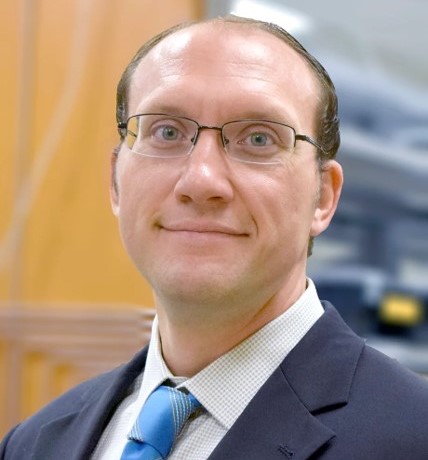 William Mustain is a Professor of Chemical Engineering and Associate Dean for Research in the Molinaroli College of Engineering and Computing at USC. He is also the project coordinator for the Carolina Institute for Battery Innovation, which will focus on pilot-scale manufacturing of Li-ion batteries. His research focuses on advancing electrochemical energy generation and storage systems, including batteries, fuel cells, and electrolyzers. He has published over 150 peer reviewed articles and has been the recipient of several awards including the U.S. DOE Early Career Award, ECS Energy Technology Division Research Award and Fulbright Scholar Fellowship.
William Mustain is a Professor of Chemical Engineering and Associate Dean for Research in the Molinaroli College of Engineering and Computing at USC. He is also the project coordinator for the Carolina Institute for Battery Innovation, which will focus on pilot-scale manufacturing of Li-ion batteries. His research focuses on advancing electrochemical energy generation and storage systems, including batteries, fuel cells, and electrolyzers. He has published over 150 peer reviewed articles and has been the recipient of several awards including the U.S. DOE Early Career Award, ECS Energy Technology Division Research Award and Fulbright Scholar Fellowship.
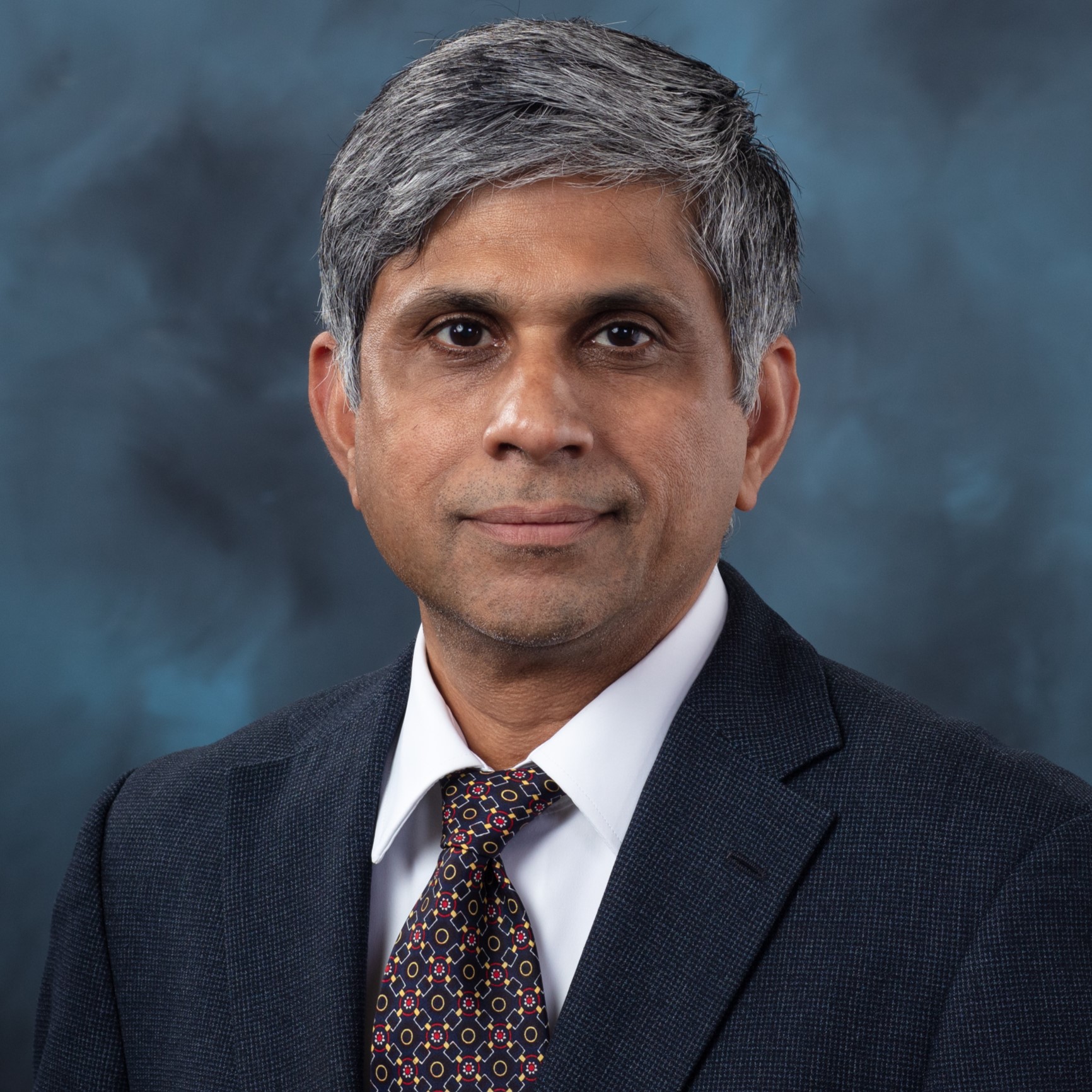 Dr. Jagjit Nanda is an experienced senior R&D professional with a demonstrated history and record of working both in industry, national laboratory and academic settings. His career has focused on energy storage materials and systems with emphasis on lithium-ion, solid-state batteries and grid scale energy storage. He is currently a Distinguished Scientist at SLAC National Laboratory, Executive Director at SLAC-Stanford Battery Center, Adjunct Professor and Precourt Scholar at Stanford University. He is a Fellow of Electrochemical Society (ECS), Materials Research Society (MRS) and National Academy of Inventors.
Dr. Jagjit Nanda is an experienced senior R&D professional with a demonstrated history and record of working both in industry, national laboratory and academic settings. His career has focused on energy storage materials and systems with emphasis on lithium-ion, solid-state batteries and grid scale energy storage. He is currently a Distinguished Scientist at SLAC National Laboratory, Executive Director at SLAC-Stanford Battery Center, Adjunct Professor and Precourt Scholar at Stanford University. He is a Fellow of Electrochemical Society (ECS), Materials Research Society (MRS) and National Academy of Inventors.
 Megan Nazareno is a workforce development leader and program builder in the East Bay. As the Deputy Director of Partnerships & Programs at Construction Trades Workforce Initiative - the nonprofit arm of the local construction unions - she works with school districts, county jails, juvenile halls, training programs, state agencies, and community organizations to strengthen systems that help job seekers better access middle-class union construction careers. Through her work, Megan strives to increase representation of underserved communities in union construction careers, allowing for greater economic mobility for more people. She applies her civil engineering and consulting background to educate community members, collaborate with partners, foster relationships, and make measurable impact. Today, Megan and her team manage construction pre-apprenticeship and test prep programs in Alameda, Contra Costa, and Napa/Solano Counties that have served over 1500 job seekers and employed over 250 individuals in union apprenticeship programs over the last five years.
Megan Nazareno is a workforce development leader and program builder in the East Bay. As the Deputy Director of Partnerships & Programs at Construction Trades Workforce Initiative - the nonprofit arm of the local construction unions - she works with school districts, county jails, juvenile halls, training programs, state agencies, and community organizations to strengthen systems that help job seekers better access middle-class union construction careers. Through her work, Megan strives to increase representation of underserved communities in union construction careers, allowing for greater economic mobility for more people. She applies her civil engineering and consulting background to educate community members, collaborate with partners, foster relationships, and make measurable impact. Today, Megan and her team manage construction pre-apprenticeship and test prep programs in Alameda, Contra Costa, and Napa/Solano Counties that have served over 1500 job seekers and employed over 250 individuals in union apprenticeship programs over the last five years.
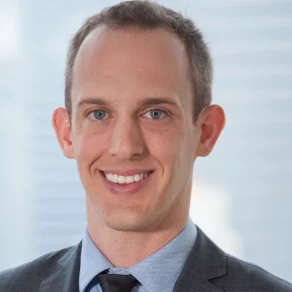 Nathan Niese is Boston Consulting Group’s global lead for electric vehicles and energy storage, and leads BCG’s Center for Climate Change and Electrification in Automotive. He is a core member of the Climate & Sustainability practice at the firm. Since joining BCG in 2013, Nathan has been a core member of the Industrial Goods practice and a lead member of both the automotive (on- and off-highway) and green-tech teams, working with OEMs, suppliers, and service providers. His client work focuses on energy transition, the circular economy, and emerging opportunities created by sustainable technologies and environmental regulations. Nathan is a frequent author and co-author of publications on EV adoption, EV charging, circularity, and the green recovery agenda, including one of BCG’s top ten most read articles of 2021. In addition, he is a frequent guest and speaker at conferences, and in leading print and online media, as well as on podcasts. He has shared his expertise in Business Insider, Axois, Associated Press, The Wire, Automotive World, Freight Waves, and Climate Vision 2050. Before joining the firm, Nathan was a forensic engineer for a technical consulting firm specializing in auto and marine industries, as well as a civilian engineer with the US Navy.
Nathan Niese is Boston Consulting Group’s global lead for electric vehicles and energy storage, and leads BCG’s Center for Climate Change and Electrification in Automotive. He is a core member of the Climate & Sustainability practice at the firm. Since joining BCG in 2013, Nathan has been a core member of the Industrial Goods practice and a lead member of both the automotive (on- and off-highway) and green-tech teams, working with OEMs, suppliers, and service providers. His client work focuses on energy transition, the circular economy, and emerging opportunities created by sustainable technologies and environmental regulations. Nathan is a frequent author and co-author of publications on EV adoption, EV charging, circularity, and the green recovery agenda, including one of BCG’s top ten most read articles of 2021. In addition, he is a frequent guest and speaker at conferences, and in leading print and online media, as well as on podcasts. He has shared his expertise in Business Insider, Axois, Associated Press, The Wire, Automotive World, Freight Waves, and Climate Vision 2050. Before joining the firm, Nathan was a forensic engineer for a technical consulting firm specializing in auto and marine industries, as well as a civilian engineer with the US Navy.
 Arwed Niestroj is responsible for commercialization, customer success and program management at Sakuu. While growing the company from its early days he has been General Manager Battery Business Unit and Sakuu’s Chief Operating Officer from 2019. Sakuu is reinventing large-scale, sustainable battery technology and manufacturing. He has also been a member of the Advisory Board of Predii and HyPoint for several years. In 2018 he was responsible for the global innovation hubs and digital transformation of ZF Friedrichshafen AG globally, driving the company’s innovation and transformation efforts and chairman of the board of subsidiary companies. From December 2014 to 2017 Arwed Niestroj was CEO of Mercedes-Benz Research and Development North America (MBRDNA) in California, comprising all R&D activities of Mercedes-Benz passenger cars in North America, ranging from technology research, digital technologies, self-driving cars, electric powertrain engineering, testing, software design to vehicle design and new mobility business models. In November 2011 Arwed Niestroj was founding CEO of the Daimler-Bosch joint venture EM-motive GmbH in Germany- developing and manufacturing electric motors for vehicle powertrains - that he ramped up until end of 2014 as Managing Director. From 2007 to 2011 he was responsible for Fuel Cell Vehicle Fleet Operations at Mercedes-Benz, and the “F-CELL World Drive” – the world’s first circumnavigation with fuel cell vehicles – and for “Generation 2 full hybrid systems” at Daimler’s Hybrid Development Center in Troy, Michigan, USA. From 2003 to 2007 Arwed Niestroj was executive chief of staff of the Daimler board member for Group Research and Development Mercedes Car Group. Before that, he had worked in Mercedes Car Group production planning and strategy being responsible for various strategic production and business development projects as well as powertrain production location strategy and project manager and development engineer in commercial vehicle advanced engineering of Mercedes-Benz. Arwed Niestroj holds a master degree in physics from the Technical University of Munich, Germany.
Arwed Niestroj is responsible for commercialization, customer success and program management at Sakuu. While growing the company from its early days he has been General Manager Battery Business Unit and Sakuu’s Chief Operating Officer from 2019. Sakuu is reinventing large-scale, sustainable battery technology and manufacturing. He has also been a member of the Advisory Board of Predii and HyPoint for several years. In 2018 he was responsible for the global innovation hubs and digital transformation of ZF Friedrichshafen AG globally, driving the company’s innovation and transformation efforts and chairman of the board of subsidiary companies. From December 2014 to 2017 Arwed Niestroj was CEO of Mercedes-Benz Research and Development North America (MBRDNA) in California, comprising all R&D activities of Mercedes-Benz passenger cars in North America, ranging from technology research, digital technologies, self-driving cars, electric powertrain engineering, testing, software design to vehicle design and new mobility business models. In November 2011 Arwed Niestroj was founding CEO of the Daimler-Bosch joint venture EM-motive GmbH in Germany- developing and manufacturing electric motors for vehicle powertrains - that he ramped up until end of 2014 as Managing Director. From 2007 to 2011 he was responsible for Fuel Cell Vehicle Fleet Operations at Mercedes-Benz, and the “F-CELL World Drive” – the world’s first circumnavigation with fuel cell vehicles – and for “Generation 2 full hybrid systems” at Daimler’s Hybrid Development Center in Troy, Michigan, USA. From 2003 to 2007 Arwed Niestroj was executive chief of staff of the Daimler board member for Group Research and Development Mercedes Car Group. Before that, he had worked in Mercedes Car Group production planning and strategy being responsible for various strategic production and business development projects as well as powertrain production location strategy and project manager and development engineer in commercial vehicle advanced engineering of Mercedes-Benz. Arwed Niestroj holds a master degree in physics from the Technical University of Munich, Germany.
 Arnab currently serves as the principal advisor & consultant (CONTR) to Director Jigar Shah and the Loan Program Office at the U.S. DOE. He was previously a senior staffer in the U.S. Senate where he helped negotiate key energy and climate provisions in the Inflation Reduction Act. In addition to his federal work, Arnab has developed and executed over $1B in decarbonization programs for California with the Center for Sustainable Energy, and has also served as a principal resource planner for San Diego Gas and Electric.
Arnab currently serves as the principal advisor & consultant (CONTR) to Director Jigar Shah and the Loan Program Office at the U.S. DOE. He was previously a senior staffer in the U.S. Senate where he helped negotiate key energy and climate provisions in the Inflation Reduction Act. In addition to his federal work, Arnab has developed and executed over $1B in decarbonization programs for California with the Center for Sustainable Energy, and has also served as a principal resource planner for San Diego Gas and Electric.
 Cammy Peterson is the Deputy Director for Energy Systems, Innovation, and Strategy at the California Energy Commission (CEC). Since joining the CEC in September 2023, she has helped lead the Research and Development Division to deploy over $300 million annually in clean energy investments, focusing on energy storage, building decarbonization, advanced grid technologies, transportation electrification, and early-stage scientific approaches and technology innovations to meet the state’s ambitious clean energy and climate change goals. Prior to the CEC, Ms. Peterson directed the Clean Energy Department at the Metropolitan Area Planning Council (MAPC), a regional government agency in Boston. She was appointed by Governor Baker to the statewide Commission on Clean Heat and served for five years on the state’s Energy Efficiency Advisory Council during her tenure in Massachusetts. Prior to MAPC, Ms. Peterson managed the energy, environmental, and transportation policy and legislative portfolios for New York State Assemblymember Brian Kavanagh. She holds a Master’s degree from Tufts University and Bachelor’s degree, cum laude, from Harvard University. Ms. Peterson lives in San Diego with her family.
Cammy Peterson is the Deputy Director for Energy Systems, Innovation, and Strategy at the California Energy Commission (CEC). Since joining the CEC in September 2023, she has helped lead the Research and Development Division to deploy over $300 million annually in clean energy investments, focusing on energy storage, building decarbonization, advanced grid technologies, transportation electrification, and early-stage scientific approaches and technology innovations to meet the state’s ambitious clean energy and climate change goals. Prior to the CEC, Ms. Peterson directed the Clean Energy Department at the Metropolitan Area Planning Council (MAPC), a regional government agency in Boston. She was appointed by Governor Baker to the statewide Commission on Clean Heat and served for five years on the state’s Energy Efficiency Advisory Council during her tenure in Massachusetts. Prior to MAPC, Ms. Peterson managed the energy, environmental, and transportation policy and legislative portfolios for New York State Assemblymember Brian Kavanagh. She holds a Master’s degree from Tufts University and Bachelor’s degree, cum laude, from Harvard University. Ms. Peterson lives in San Diego with her family.
 Mary Ann Piette is the Associate Lab Director of the Energy Technologies Area (ETA) at Lawrence Berkeley National Laboratory. This area includes the Building Technology & Urban Systems (BTUS), Energy Analysis & Environmental Impacts, and Energy Storage & Distributed Resources divisions. She manages a research enterprise comprised of about 700 staff and affiliates, including 120 principal investigators working across a broad set of technology R&D programs to accelerate decarbonization ranging from demand-side energy efficiency and grid integration to hydrogen technologies, energy storage, and renewable energy systems. Piette facilitates collaboration with partners including manufacturers, utilities, state agencies, cities, aggregators, non-profits, engineering firms, building owners, and many others. She has also helped shape Berkeley Lab’s culture to support inclusion, diversity. equity and accountability. As a Senior Scientist her personal research interests include new building technologies, modeling, and analysis; commercial and residential building systems integration; grid interactive communications and integration with electric vehicles, energy storage, and photovoltaics. She has over 10 years of experience supporting building technology workforce programs, and her recent work explores how to accelerate decarbonization while ensuring equity and affordability. Piette leads the new California Load Flexibility Research and Deployment Hub (CalFlexHub) pioneering new technologies, and advanced communication and controls to enable buildings and EVs to receive automated dynamic pricing and GHG signals. She has been a visiting researcher at both the Commonwealth Scientific and Industrial Research Organization in Newcastle, Australia and the Chalmers University of Technology, Department of Building Services Engineering in Gothenburg, Sweden. Piette has authored over 115 peer reviewed publications related to energy systems, and she recently won a Lifetime Achievement Award at Berkeley Lab for her work in energy-efficient and grid-interactive buildings research. As part of energy modeling teams at Berkeley Lab, she has received two R&D 100 awards for the tools to evaluate commercial building and city-level energy efficiency and decarbonization strategies. She is a board member of the American Council for an Energy Efficient Economy where she chairs the Research Advisory Board. She is also on the Board of the OpenADR Alliance. Piette has an MS in Mechanical Engineering from UC Berkeley and a Licentiate in Building Services Engineering from the Chalmers University of Technology in Sweden.
Mary Ann Piette is the Associate Lab Director of the Energy Technologies Area (ETA) at Lawrence Berkeley National Laboratory. This area includes the Building Technology & Urban Systems (BTUS), Energy Analysis & Environmental Impacts, and Energy Storage & Distributed Resources divisions. She manages a research enterprise comprised of about 700 staff and affiliates, including 120 principal investigators working across a broad set of technology R&D programs to accelerate decarbonization ranging from demand-side energy efficiency and grid integration to hydrogen technologies, energy storage, and renewable energy systems. Piette facilitates collaboration with partners including manufacturers, utilities, state agencies, cities, aggregators, non-profits, engineering firms, building owners, and many others. She has also helped shape Berkeley Lab’s culture to support inclusion, diversity. equity and accountability. As a Senior Scientist her personal research interests include new building technologies, modeling, and analysis; commercial and residential building systems integration; grid interactive communications and integration with electric vehicles, energy storage, and photovoltaics. She has over 10 years of experience supporting building technology workforce programs, and her recent work explores how to accelerate decarbonization while ensuring equity and affordability. Piette leads the new California Load Flexibility Research and Deployment Hub (CalFlexHub) pioneering new technologies, and advanced communication and controls to enable buildings and EVs to receive automated dynamic pricing and GHG signals. She has been a visiting researcher at both the Commonwealth Scientific and Industrial Research Organization in Newcastle, Australia and the Chalmers University of Technology, Department of Building Services Engineering in Gothenburg, Sweden. Piette has authored over 115 peer reviewed publications related to energy systems, and she recently won a Lifetime Achievement Award at Berkeley Lab for her work in energy-efficient and grid-interactive buildings research. As part of energy modeling teams at Berkeley Lab, she has received two R&D 100 awards for the tools to evaluate commercial building and city-level energy efficiency and decarbonization strategies. She is a board member of the American Council for an Energy Efficient Economy where she chairs the Research Advisory Board. She is also on the Board of the OpenADR Alliance. Piette has an MS in Mechanical Engineering from UC Berkeley and a Licentiate in Building Services Engineering from the Chalmers University of Technology in Sweden.
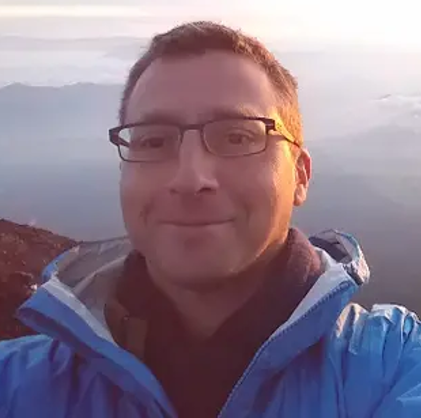 Dr. Pitera is currently the strategy co-lead for accelerated discovery in sustainable materials. The mission of this team is to use all the tools of AI, machine learning. HPC, and quantum computing to speed the discovery of advanced materials in application areas including semiconductors, energy storage, carbon capture, and replacement of PFAS "forever chemicals". The team works on both materials for sustainability applications as well as improving the sustainability of existing materials in use, in connection with internal, commercial, and government partners. Previously, he completed an operations rotation as the Technical Assistant to Dr. Jeff Welser, VP IBM Research – Almaden, Australia, China, Japan. In this role, he helped with operations, strategy, recruiting, technical vitality, and business processes for a research site with ~700 inhabitants across a variety of technical disciplines. Dr. Pitera received undergraduate training in Biology and Chemistry at Caltech and a Ph.D. in Biophysics at the UCSF in the laboratory of Prof. Peter Kollman. His postdoctoral work was in computational physical chemistry with Prof. Dr. Wilfred van Gunsteren at the ETH in Zurich, Switzerland. In 2001, he joined IBM Research and has been a research staff member at IBM for over two decades, applying computational tools and machine learning to challenging materials R&D problems. He has published 50 peer-reviewed articles and book chapters, has an h-index of 35, and is a co-inventor on 9 granted US patents. Dr. Pitera is also an adjunct assistant professor in the UCSF Department of Pharmaceutical Chemistry.
Dr. Pitera is currently the strategy co-lead for accelerated discovery in sustainable materials. The mission of this team is to use all the tools of AI, machine learning. HPC, and quantum computing to speed the discovery of advanced materials in application areas including semiconductors, energy storage, carbon capture, and replacement of PFAS "forever chemicals". The team works on both materials for sustainability applications as well as improving the sustainability of existing materials in use, in connection with internal, commercial, and government partners. Previously, he completed an operations rotation as the Technical Assistant to Dr. Jeff Welser, VP IBM Research – Almaden, Australia, China, Japan. In this role, he helped with operations, strategy, recruiting, technical vitality, and business processes for a research site with ~700 inhabitants across a variety of technical disciplines. Dr. Pitera received undergraduate training in Biology and Chemistry at Caltech and a Ph.D. in Biophysics at the UCSF in the laboratory of Prof. Peter Kollman. His postdoctoral work was in computational physical chemistry with Prof. Dr. Wilfred van Gunsteren at the ETH in Zurich, Switzerland. In 2001, he joined IBM Research and has been a research staff member at IBM for over two decades, applying computational tools and machine learning to challenging materials R&D problems. He has published 50 peer-reviewed articles and book chapters, has an h-index of 35, and is a co-inventor on 9 granted US patents. Dr. Pitera is also an adjunct assistant professor in the UCSF Department of Pharmaceutical Chemistry.
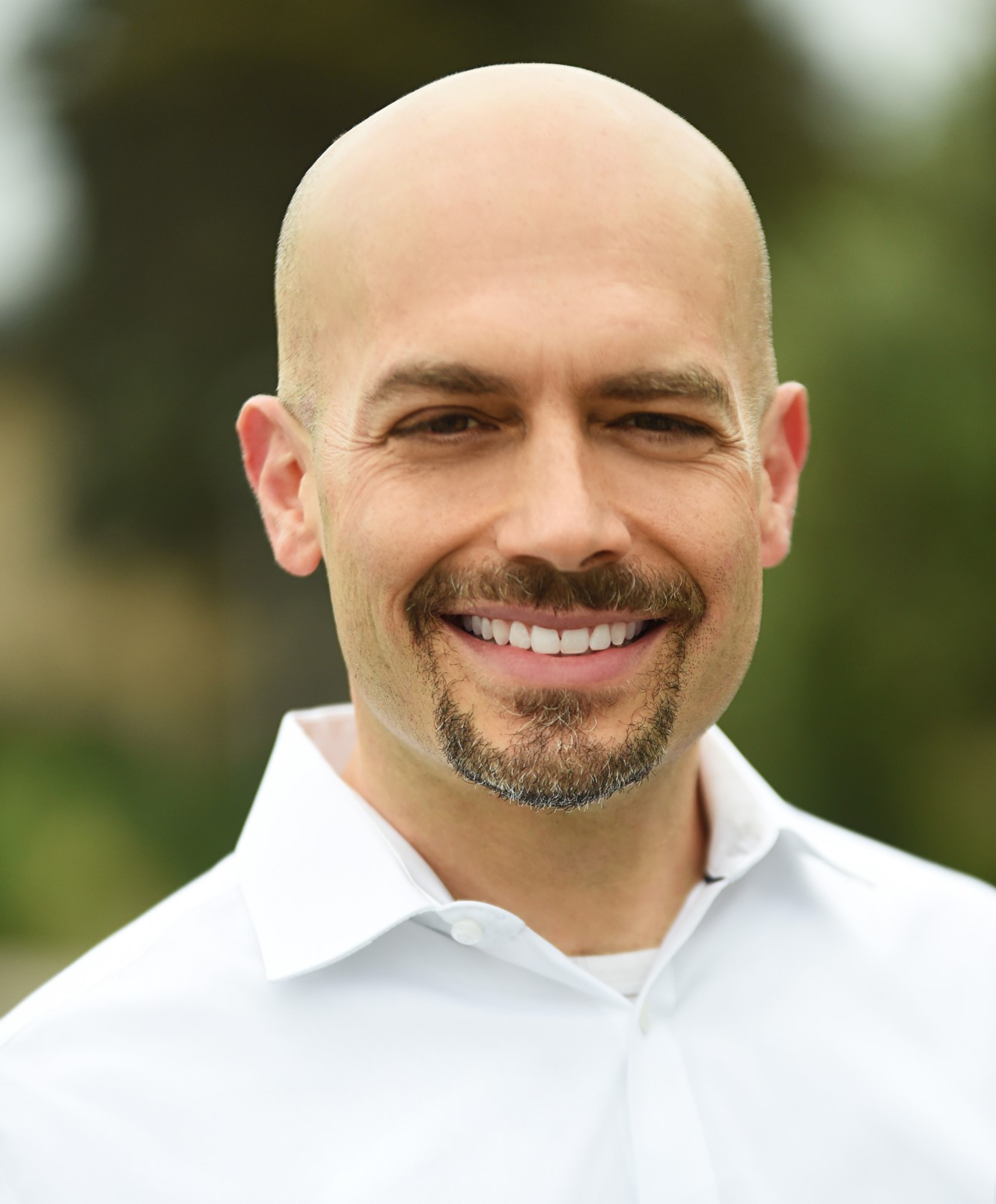 Joshua Posamentier is Co-Founder and Managing Partner of Congruent Ventures. He has rich experience in venture (Prelude Ventures, Intel Capital) and operating roles (Intel wireless chip, National Semi, TI), and entrepreneurship (CEO of Blipstream). Josh oversees Congruent’s investments in Alloy Enterprises, Avalanche Energy, Bellwether Coffee, Climate Robotics, Ebb Carbon, Energetic Insurance, Fervo, Fox Robotics, Kodama, Lydian Labs, Machina Labs, Meati, Muon Space, Parallel Systems, Petra, Pico MES, PolySpectra, Rendered.AI, Robigo, Sense Photonics, TeleSense, VEIR, and Xtelligent. Josh has over 50 patents issued or pending, holds a BA in physics from the University California at Berkeley, and holds MBAs from the Columbia Business School and Berkeley’s Haas School of Business.
Joshua Posamentier is Co-Founder and Managing Partner of Congruent Ventures. He has rich experience in venture (Prelude Ventures, Intel Capital) and operating roles (Intel wireless chip, National Semi, TI), and entrepreneurship (CEO of Blipstream). Josh oversees Congruent’s investments in Alloy Enterprises, Avalanche Energy, Bellwether Coffee, Climate Robotics, Ebb Carbon, Energetic Insurance, Fervo, Fox Robotics, Kodama, Lydian Labs, Machina Labs, Meati, Muon Space, Parallel Systems, Petra, Pico MES, PolySpectra, Rendered.AI, Robigo, Sense Photonics, TeleSense, VEIR, and Xtelligent. Josh has over 50 patents issued or pending, holds a BA in physics from the University California at Berkeley, and holds MBAs from the Columbia Business School and Berkeley’s Haas School of Business.
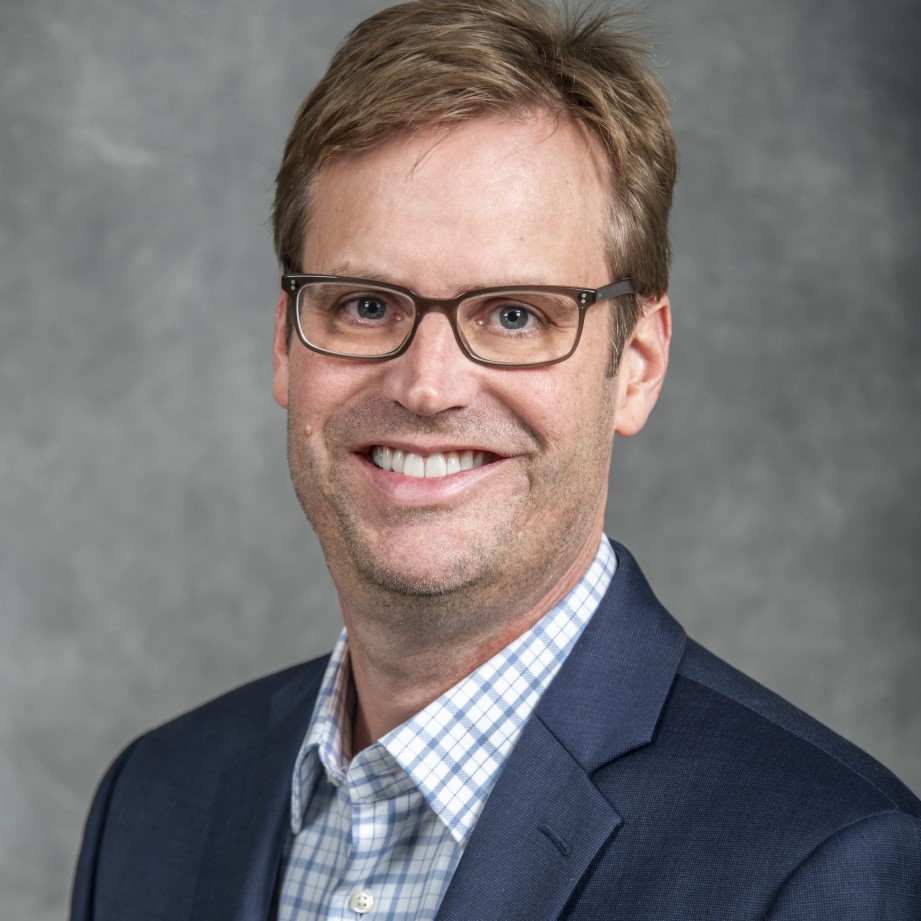 Todd Pray was named Berkeley Lab’s Chief Strategic Partnerships Officer (CSPO) and head of the Strategic Partnerships Office (SPO) in March 2019. Prior to this, Todd’s career had been dedicated to developing technologies that improve human health and environmental sustainability across a broad spectrum of pharmaceutical, food science, and renewable fuel and chemical product R&D programs. As CSPO, he is committed to expanding his vision and focus to encompass all areas of scientific research represented at the Lab. Todd served as Program Head for the Lab’s Advanced Biofuels and Bioproducts Process Development Unit (ABPDU) from 2014-2019, where he successfully oversaw the development and execution of R&D projects. Over his five-year tenure, Todd led ABPDU in forming collaborations with over 45 industrial, National Lab and academic partners, and assisted in the development of production processes that resulted in three commercial product launches. Todd’s background prior to Berkeley Lab includes extensive industry experience working at leading biotechnology companies such as Rigel, Exelixis, Amyris and Impossible Foods.
Todd Pray was named Berkeley Lab’s Chief Strategic Partnerships Officer (CSPO) and head of the Strategic Partnerships Office (SPO) in March 2019. Prior to this, Todd’s career had been dedicated to developing technologies that improve human health and environmental sustainability across a broad spectrum of pharmaceutical, food science, and renewable fuel and chemical product R&D programs. As CSPO, he is committed to expanding his vision and focus to encompass all areas of scientific research represented at the Lab. Todd served as Program Head for the Lab’s Advanced Biofuels and Bioproducts Process Development Unit (ABPDU) from 2014-2019, where he successfully oversaw the development and execution of R&D projects. Over his five-year tenure, Todd led ABPDU in forming collaborations with over 45 industrial, National Lab and academic partners, and assisted in the development of production processes that resulted in three commercial product launches. Todd’s background prior to Berkeley Lab includes extensive industry experience working at leading biotechnology companies such as Rigel, Exelixis, Amyris and Impossible Foods.
 Kris Pupek is a Senior Process R&D Chemist and a Group Leader for Process R&D and Scale Up, Applied Materials Division at Argonne National Laboratory. He leads a group of over 20 researchers, engineers, and technicians focusing on evaluating emerging materials manufacturing technologies and developing scalable processes for producing inorganic, organic, polymers, and nanomaterials to support basic research and industrial evaluation. Kris earned a PhD in Organic Chemistry and Technology from the Institute of Organic Chemistry, Polish Academy of Sciences, following postdoctoral training at Roche Bioscience in Palo Alto, California. He joined Argonne National Laboratory in 2010 after nearly 20 years in the pharma, agrochemicals, and specialty chemicals industry.
Kris Pupek is a Senior Process R&D Chemist and a Group Leader for Process R&D and Scale Up, Applied Materials Division at Argonne National Laboratory. He leads a group of over 20 researchers, engineers, and technicians focusing on evaluating emerging materials manufacturing technologies and developing scalable processes for producing inorganic, organic, polymers, and nanomaterials to support basic research and industrial evaluation. Kris earned a PhD in Organic Chemistry and Technology from the Institute of Organic Chemistry, Polish Academy of Sciences, following postdoctoral training at Roche Bioscience in Palo Alto, California. He joined Argonne National Laboratory in 2010 after nearly 20 years in the pharma, agrochemicals, and specialty chemicals industry.
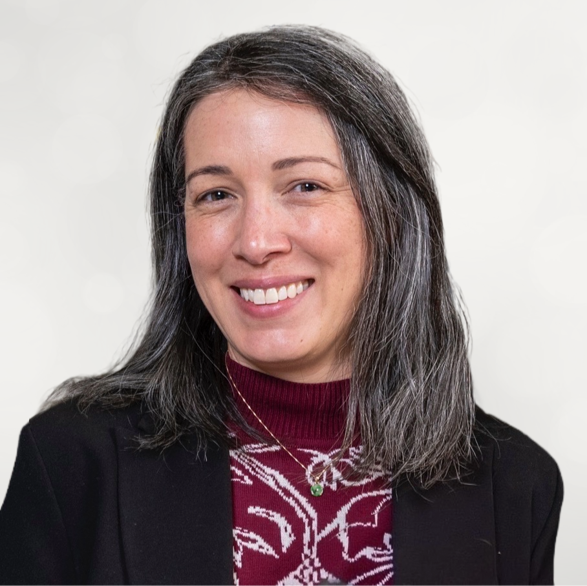 Dr. Vi Rapp is a versatile scientist who develops innovative technologies and strategies that foster decarbonization while enhancing human health. With a rich and diverse background, she successfully develops and implements strategies to grow the industrial workforce and simultaneously leads research on novel heat and power generation technologies. As a Department Deputy and Staff Scientist, she inspires interdisciplinary teams, fosters teamwork, and creates productive environments where staff thrive. Her leadership and ingenuity have earned her two patents and three awards in just the past three years, underscoring her commitment to shaping a sustainable and healthier future.
Dr. Vi Rapp is a versatile scientist who develops innovative technologies and strategies that foster decarbonization while enhancing human health. With a rich and diverse background, she successfully develops and implements strategies to grow the industrial workforce and simultaneously leads research on novel heat and power generation technologies. As a Department Deputy and Staff Scientist, she inspires interdisciplinary teams, fosters teamwork, and creates productive environments where staff thrive. Her leadership and ingenuity have earned her two patents and three awards in just the past three years, underscoring her commitment to shaping a sustainable and healthier future.
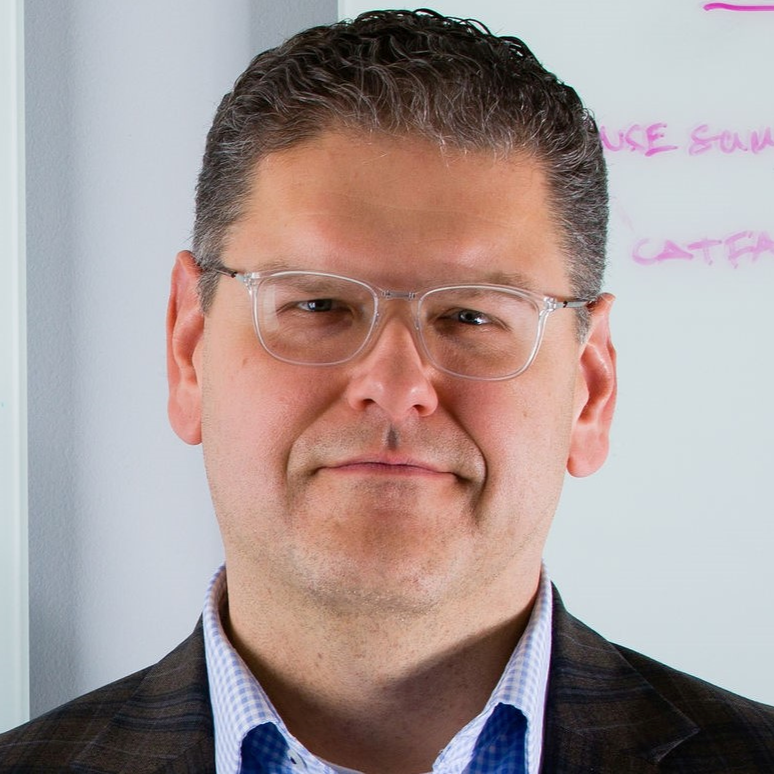 David Roberts serves as Li-Bridge’s Director, helping advance the public private partnership’s mission to develop a robust U.S. supply chain. As an initiative of Argonne National Labs and sponsorship from the DOE, Li-Bridge facilitates collaboration between the federal government and the battery industry to achieve this mission. David also helps lead Applied Research Institute (ARI), a non-profit organization focused on innovation and technology initiatives that broadly support national security and promote economic development in disruptive sectors. He previously led the team that created and implemented a cohesive $1B innovation & entrepreneurship strategy for the State of Indiana. He has been CEO of lithium-ion battery companies in both the private and public-private sector, patent and legal counsel for Caterpillar, engineer with Lockheed Martin, board member of domestic and international organizations, and is a private practice patent & business attorney.
David Roberts serves as Li-Bridge’s Director, helping advance the public private partnership’s mission to develop a robust U.S. supply chain. As an initiative of Argonne National Labs and sponsorship from the DOE, Li-Bridge facilitates collaboration between the federal government and the battery industry to achieve this mission. David also helps lead Applied Research Institute (ARI), a non-profit organization focused on innovation and technology initiatives that broadly support national security and promote economic development in disruptive sectors. He previously led the team that created and implemented a cohesive $1B innovation & entrepreneurship strategy for the State of Indiana. He has been CEO of lithium-ion battery companies in both the private and public-private sector, patent and legal counsel for Caterpillar, engineer with Lockheed Martin, board member of domestic and international organizations, and is a private practice patent & business attorney.
 Prior to Capricorn, Dipender was Chief of Staff at Cadence, a global market leader in electronic design. Prior to Cadence, he worked at Data General (EMC), Honeywell, ROLM (IBM), and the GF Energy Research Center. Dipender serves on the boards of AST, Electric Hydrogen, Encell, Eridan, Halio, Joby Aviation (NYSE: JOBY), Navitas (NASDAQ: NVTS), QuantumScape (NYSE: QS), Saildrone, SPAN.IO, summerbio, and Summit Nanotech, on the Leadership Council of Cyclotron Road, the Advisory Board of the International Solar Alliance, the investment committee of PRIME, the Advisory Board of IonE, and is a commissioner of the Global Commission to End Energy Poverty (GCEEP). He is based in Palo Alto. Dipender is an electrical engineer by training and attended UND, University of Minnesota and Stanford University.
Prior to Capricorn, Dipender was Chief of Staff at Cadence, a global market leader in electronic design. Prior to Cadence, he worked at Data General (EMC), Honeywell, ROLM (IBM), and the GF Energy Research Center. Dipender serves on the boards of AST, Electric Hydrogen, Encell, Eridan, Halio, Joby Aviation (NYSE: JOBY), Navitas (NASDAQ: NVTS), QuantumScape (NYSE: QS), Saildrone, SPAN.IO, summerbio, and Summit Nanotech, on the Leadership Council of Cyclotron Road, the Advisory Board of the International Solar Alliance, the investment committee of PRIME, the Advisory Board of IonE, and is a commissioner of the Global Commission to End Energy Poverty (GCEEP). He is based in Palo Alto. Dipender is an electrical engineer by training and attended UND, University of Minnesota and Stanford University.
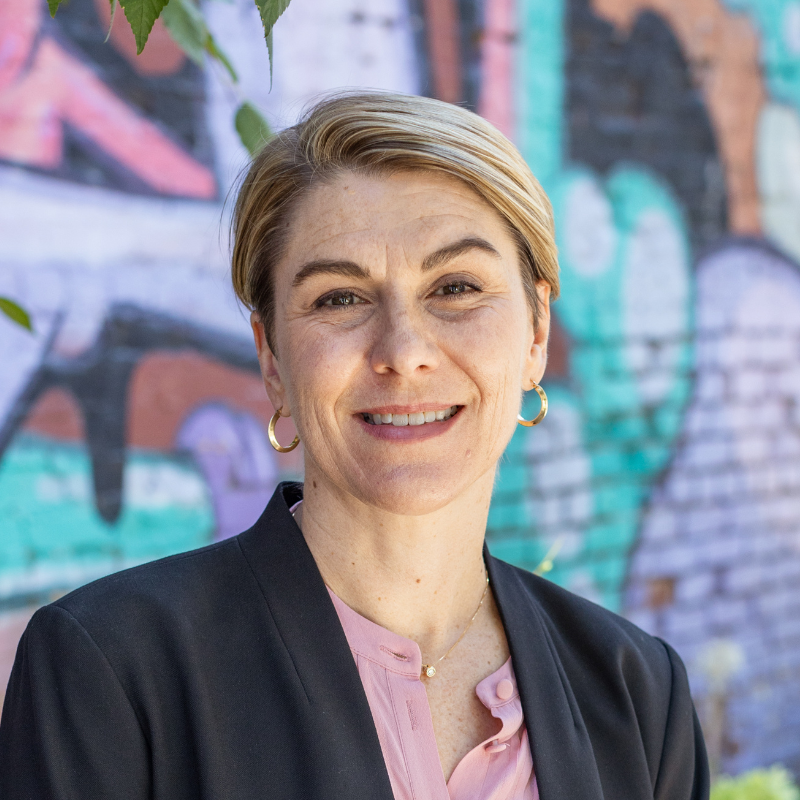 Evan Schmidt joined Valley Vision in 2014 and became CEO on July 1, 2020. Evan has a long record of success developing community inspired solutions across Valley Vision’s many initiatives – including leading Valley Vision’s research, such as regional polling and future of work; supporting Valley Vision’s impact areas advancing prosperity, equity, and sustainability; and leading strategy and evaluation efforts across the organization. Evan came to Valley Vision with 15 years of experience as a community development professional. She has worked as an evaluator and a private consultant prior to joining Valley Vision. She led evaluation projects for organizations across the U.S., helping them become more effective and impactful. Additionally, she has advanced major regional community initiatives and conducted research at UC Davis in community development and environmental planning before coming to Valley Vision. Evan’s experience in community development spans years and content areas – including economic development, community engagement, land use planning, public health, and more. Her commitment to community is foundational to her professional and civic leadership – always working to create access, opportunities, prosperity, and well-being for all.
Evan Schmidt joined Valley Vision in 2014 and became CEO on July 1, 2020. Evan has a long record of success developing community inspired solutions across Valley Vision’s many initiatives – including leading Valley Vision’s research, such as regional polling and future of work; supporting Valley Vision’s impact areas advancing prosperity, equity, and sustainability; and leading strategy and evaluation efforts across the organization. Evan came to Valley Vision with 15 years of experience as a community development professional. She has worked as an evaluator and a private consultant prior to joining Valley Vision. She led evaluation projects for organizations across the U.S., helping them become more effective and impactful. Additionally, she has advanced major regional community initiatives and conducted research at UC Davis in community development and environmental planning before coming to Valley Vision. Evan’s experience in community development spans years and content areas – including economic development, community engagement, land use planning, public health, and more. Her commitment to community is foundational to her professional and civic leadership – always working to create access, opportunities, prosperity, and well-being for all.
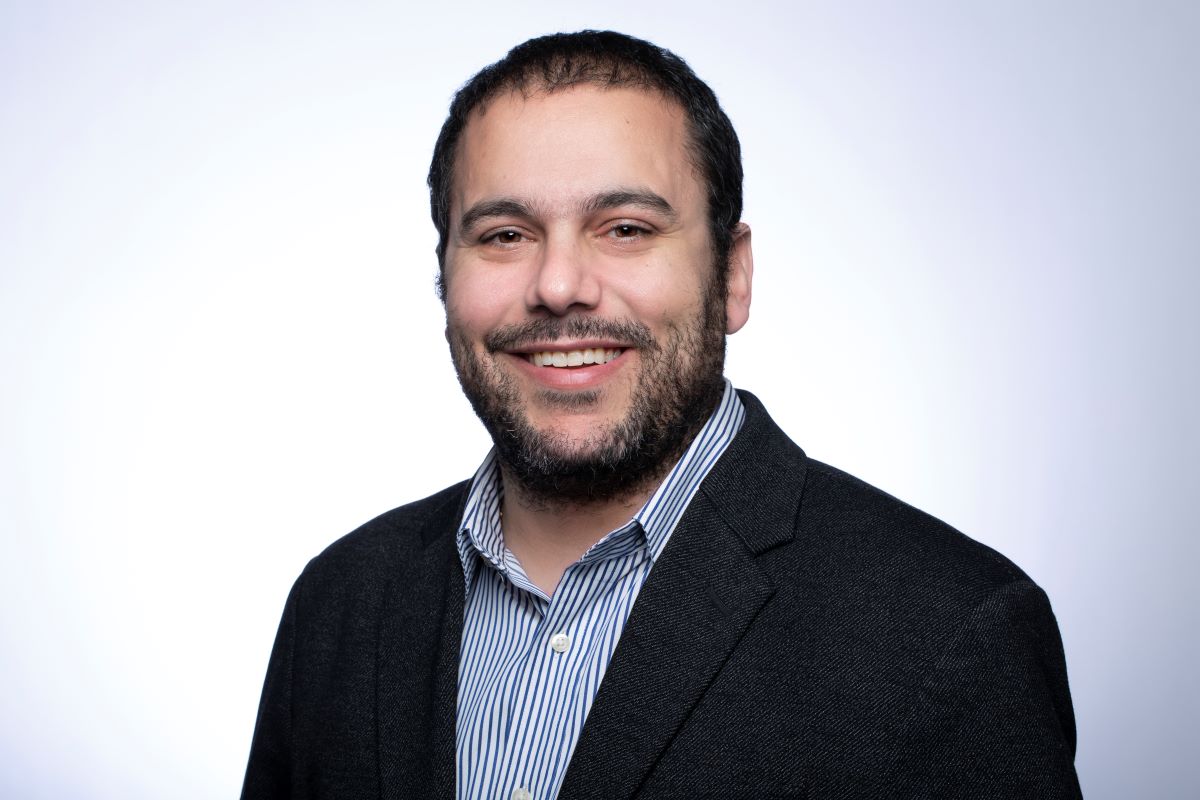 Dr. Tal Sholklapper has an extensive record of success as a cleantech engineer and entrepreneur. Prior to founding Voltaiq, he worked as the lead engineer on a DOE ARPA-E funded project at the CUNY Energy Institute, developing an ultra low-cost grid-scale battery. Before joining CUNY, Dr. Sholklapper co-founded Point Source Power, a low cost fuel-cell startup based on technology he developed while at Lawrence Berkeley National Laboratory and UC Berkeley, where he also did his graduate work in Materials Science and Engineering. As a Materials Postdoctoral Fellow at LBNL, he successfully led the transfer of lab-scale technology to industry partners.
Dr. Tal Sholklapper has an extensive record of success as a cleantech engineer and entrepreneur. Prior to founding Voltaiq, he worked as the lead engineer on a DOE ARPA-E funded project at the CUNY Energy Institute, developing an ultra low-cost grid-scale battery. Before joining CUNY, Dr. Sholklapper co-founded Point Source Power, a low cost fuel-cell startup based on technology he developed while at Lawrence Berkeley National Laboratory and UC Berkeley, where he also did his graduate work in Materials Science and Engineering. As a Materials Postdoctoral Fellow at LBNL, he successfully led the transfer of lab-scale technology to industry partners.
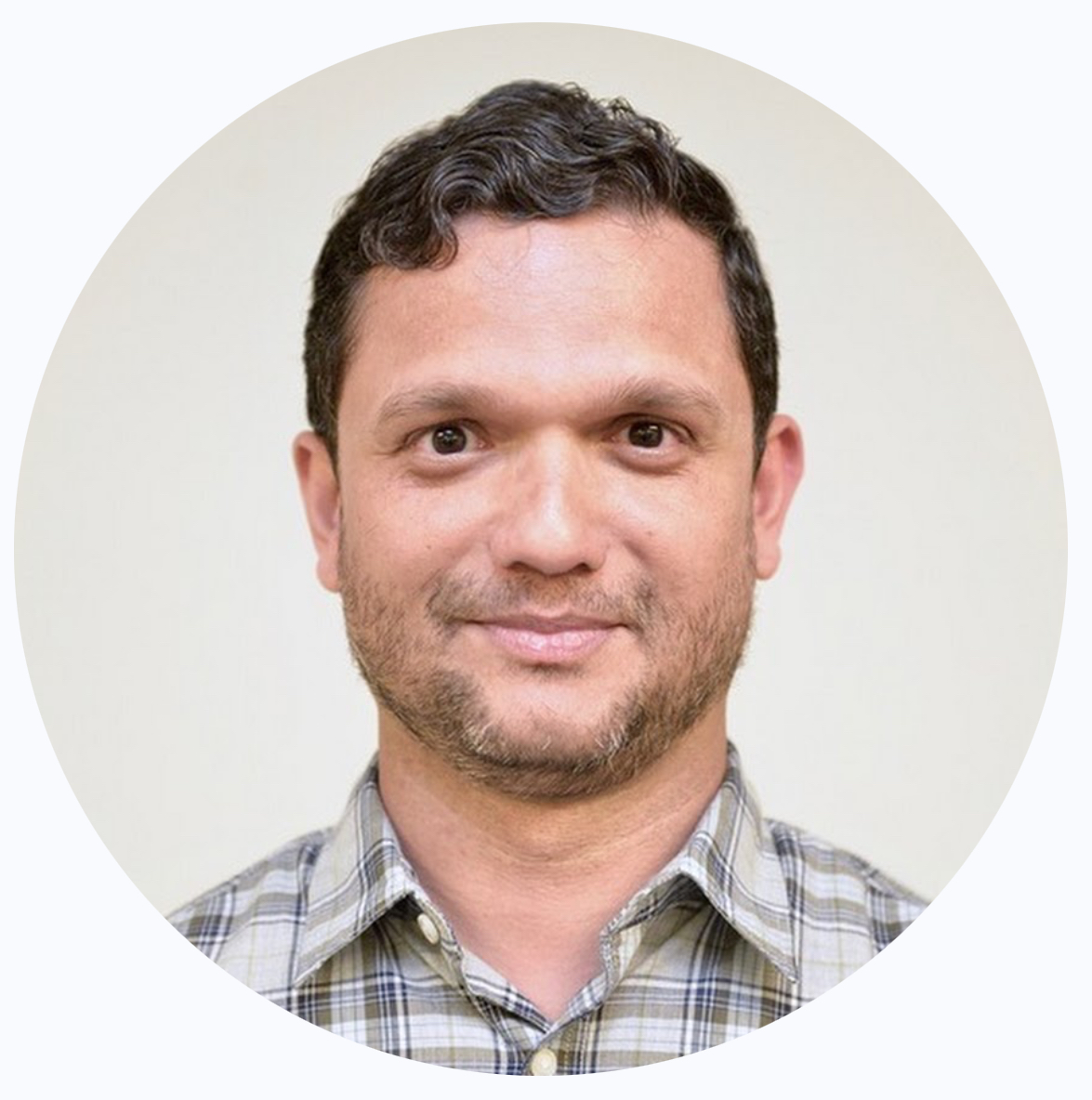 Vikrant Sood is a Principal at BAM Consulting, Inc., where he manages the urban planning and policy portfolio. He has over two decades of international experience leading multi-disciplinary teams on community and economic development initiatives. Over the years, Vikrant has helped build unique partnerships across industry, academic, nonprofit and government sectors to implement systems-based investment strategies that are critical to solving complex social, environmental and economic challenges, especially in disadvantaged and marginalized communities. Vikrant develops and institutes collaborative governance models that build consensus and strengthen institutional capacity to drive change. He is professionally and personally committed to social equity, environmental justice and economic mobility. Vikrant is currently involved in local and regional efforts to accelerate the clean energy transition, but in a way that benefits those who have been left behind. He has extensive experience in the public and private sectors. Vikrant has a graduate degree in Urban and Regional Planning from UC Berkeley and an Architecture degree from the School of Planning and Architecture in India. He lives in Berkeley, CA.
Vikrant Sood is a Principal at BAM Consulting, Inc., where he manages the urban planning and policy portfolio. He has over two decades of international experience leading multi-disciplinary teams on community and economic development initiatives. Over the years, Vikrant has helped build unique partnerships across industry, academic, nonprofit and government sectors to implement systems-based investment strategies that are critical to solving complex social, environmental and economic challenges, especially in disadvantaged and marginalized communities. Vikrant develops and institutes collaborative governance models that build consensus and strengthen institutional capacity to drive change. He is professionally and personally committed to social equity, environmental justice and economic mobility. Vikrant is currently involved in local and regional efforts to accelerate the clean energy transition, but in a way that benefits those who have been left behind. He has extensive experience in the public and private sectors. Vikrant has a graduate degree in Urban and Regional Planning from UC Berkeley and an Architecture degree from the School of Planning and Architecture in India. He lives in Berkeley, CA.
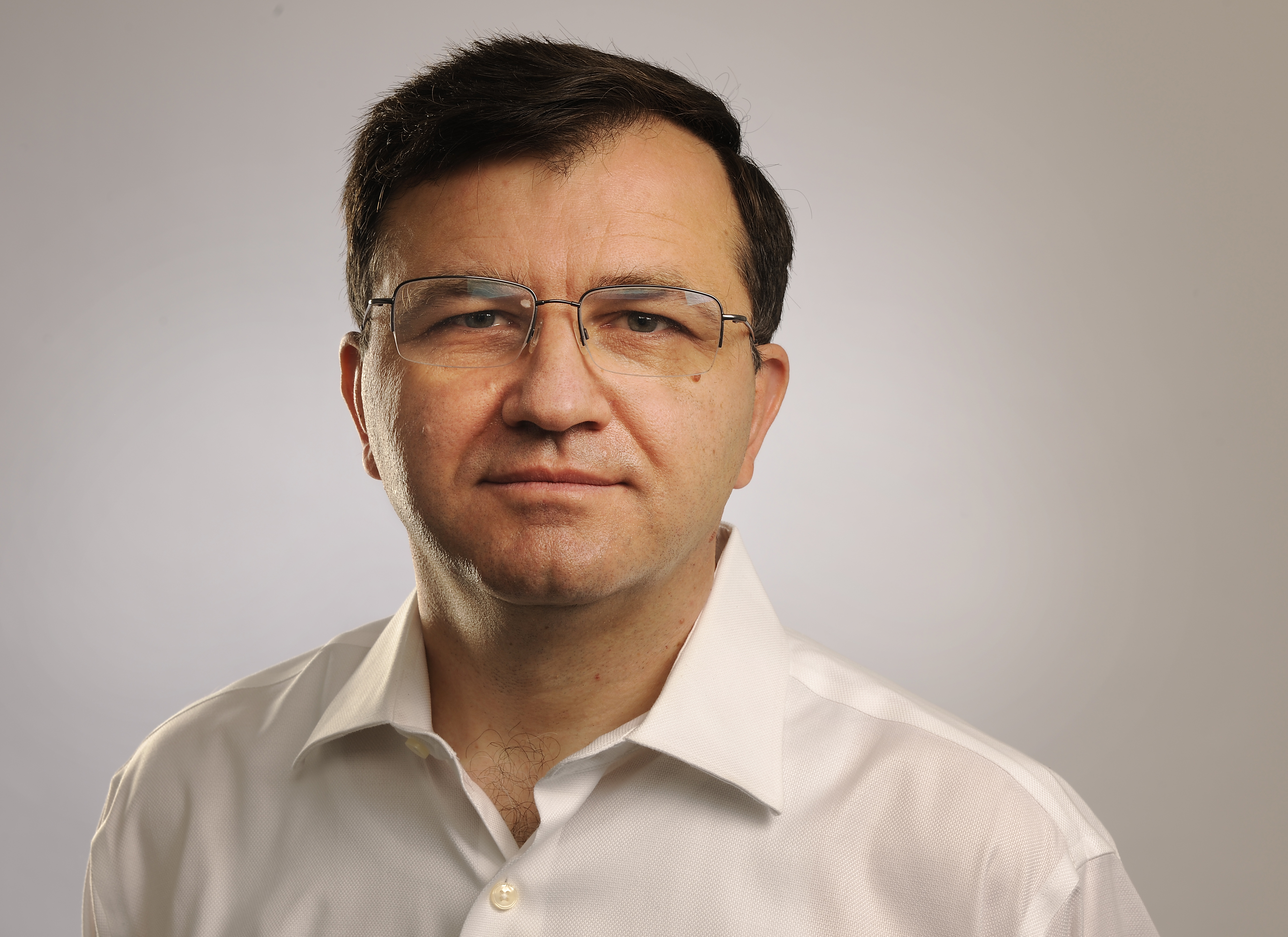 Dr. Ionel Stefan is Amprius' Chief Technology Officer. He joined Amprius in its very early days as a Senior Scientist, initially to lead electrochemistry for silicon nanowire anode-based lithium-ion batteries. Dr. Stefan now leads Amprius' development of silicon nanowire electrochemistry, cell technology -- including material design, cell design and engineering -- and product development. He is a recognized expert in electrochemistry and energy storage and leads the company's scientific research and development activities for advancing lithium-ion cell performance.
Dr. Ionel Stefan is Amprius' Chief Technology Officer. He joined Amprius in its very early days as a Senior Scientist, initially to lead electrochemistry for silicon nanowire anode-based lithium-ion batteries. Dr. Stefan now leads Amprius' development of silicon nanowire electrochemistry, cell technology -- including material design, cell design and engineering -- and product development. He is a recognized expert in electrochemistry and energy storage and leads the company's scientific research and development activities for advancing lithium-ion cell performance.
 Brenna Teigler is chief fellowship officer at Activate, where she oversees the fellowship experience and programming. Prior to Activate, Teigler managed program operations at Cyclotron Road. She was also a Science and Technology Policy Fellow for the American Association for the Advancement of Science, gaining valuable experience with the U.S. Department of Energy (DOE) Technology to Market program. Teigler was named “Energy Rock Star 2017” by the DOE Office of Energy Efficiency and Renewable Energy. She completed a postdoctoral fellowship at the California Institute of Technology, and she holds a Ph.D. in biophysics from Harvard University and a B.S. in professional physics from Rutgers University.
Brenna Teigler is chief fellowship officer at Activate, where she oversees the fellowship experience and programming. Prior to Activate, Teigler managed program operations at Cyclotron Road. She was also a Science and Technology Policy Fellow for the American Association for the Advancement of Science, gaining valuable experience with the U.S. Department of Energy (DOE) Technology to Market program. Teigler was named “Energy Rock Star 2017” by the DOE Office of Energy Efficiency and Renewable Energy. She completed a postdoctoral fellowship at the California Institute of Technology, and she holds a Ph.D. in biophysics from Harvard University and a B.S. in professional physics from Rutgers University.
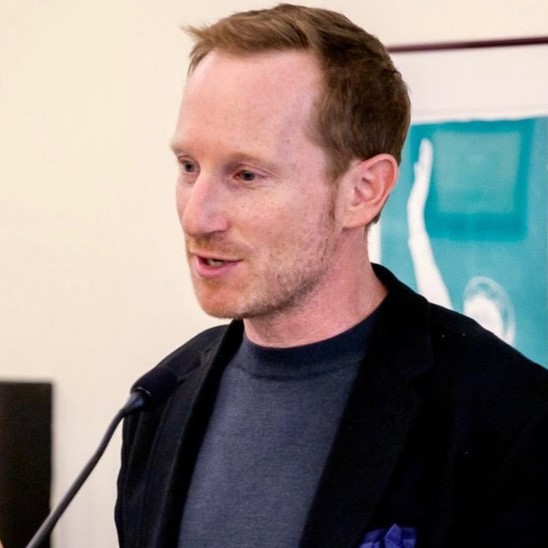 Egon Terplan is a Senior Fellow at the Institute of Transportation Studies at UC Berkeley where he conducts research on the future of downtowns and regional transportation systems. He also manages his own consulting projects advising on regional economic diversification strategies across California. He has been a Nonresident Senior Fellow at Brookings Metro and the Robert Cornish Chair in Regional Planning at UC Berkeley’s College of Environmental Design. From 2019 to 2022, he was a Governor appointee serving as the Senior Advisor for Economic Development and Transportation within the Governor’s Office of Planning and Research and the California Strategic Growth Council. In that role, he helped launch and manage “Regions Rise Together,” a statewide inclusive economic development and sustainable growth initiative that has now become California Jobs First. Prior to joining the Governor’s office, Egon was the Regional Planning Director at San Francisco Planning and Urban Research (SPUR), the Bay Area’s urban policy think tank where he authored or co-authored dozens of reports and policy studies on the intersections of economic development, regional planning, workforce preparation, land use, transportation, and governance. Egon holds a Master of City Planning from UC Berkeley’s College of Environmental Design and graduated Phi Beta Kappa from Swarthmore College in Pennsylvania. In addition to teaching at UC Berkeley, he has also been an instructor at Stanford University, the University of San Francisco, and San Jose State University.
Egon Terplan is a Senior Fellow at the Institute of Transportation Studies at UC Berkeley where he conducts research on the future of downtowns and regional transportation systems. He also manages his own consulting projects advising on regional economic diversification strategies across California. He has been a Nonresident Senior Fellow at Brookings Metro and the Robert Cornish Chair in Regional Planning at UC Berkeley’s College of Environmental Design. From 2019 to 2022, he was a Governor appointee serving as the Senior Advisor for Economic Development and Transportation within the Governor’s Office of Planning and Research and the California Strategic Growth Council. In that role, he helped launch and manage “Regions Rise Together,” a statewide inclusive economic development and sustainable growth initiative that has now become California Jobs First. Prior to joining the Governor’s office, Egon was the Regional Planning Director at San Francisco Planning and Urban Research (SPUR), the Bay Area’s urban policy think tank where he authored or co-authored dozens of reports and policy studies on the intersections of economic development, regional planning, workforce preparation, land use, transportation, and governance. Egon holds a Master of City Planning from UC Berkeley’s College of Environmental Design and graduated Phi Beta Kappa from Swarthmore College in Pennsylvania. In addition to teaching at UC Berkeley, he has also been an instructor at Stanford University, the University of San Francisco, and San Jose State University.
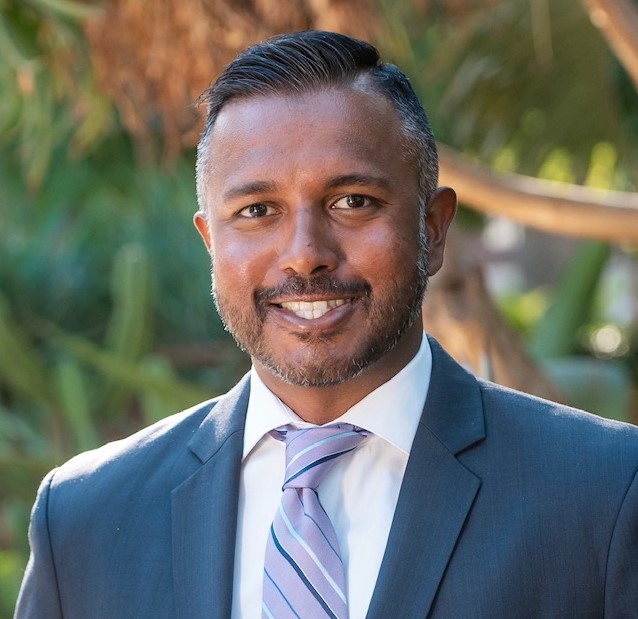 Orville Thomas serves as the CEO of the California Mobility Center, a clean energy, power, and zero-emission innovation collaborative headquartered in Sacramento. Prior to joining the CMC, Orville served as the State Policy Director for CALSTART, a California-based and internationally recognized clean transportation consortium. In that role, he oversaw government relations and regulatory affairs for the western states. Orville has spent the last decade working at the intersection of clean transportation, clean energy, and health equity. He has worked for Governor Jerry Brown’s administration and the California High-Speed Rail Authority, helped with successful campaigns to fund road and bridge repair, and helped pass a $1.5 billion clean transportation program reauthorization in the California Legislature.
Orville Thomas serves as the CEO of the California Mobility Center, a clean energy, power, and zero-emission innovation collaborative headquartered in Sacramento. Prior to joining the CMC, Orville served as the State Policy Director for CALSTART, a California-based and internationally recognized clean transportation consortium. In that role, he oversaw government relations and regulatory affairs for the western states. Orville has spent the last decade working at the intersection of clean transportation, clean energy, and health equity. He has worked for Governor Jerry Brown’s administration and the California High-Speed Rail Authority, helped with successful campaigns to fund road and bridge repair, and helped pass a $1.5 billion clean transportation program reauthorization in the California Legislature.
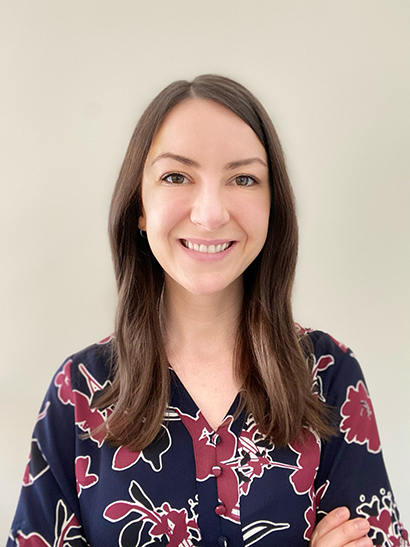 Paula Uniacke is Director of Impact at DBL Partners, which she joined in January 2022. Previously, Paula was Senior Program Officer at The Asia Foundation, an international nongovernmental organization, where she worked with nonprofits, tech companies, governmental agencies, and philanthropists to strengthen gender equality, social inclusion, and climate resilience in Asia-Pacific. Her work included developing research on the future of work, managing a multi-country project on women’s climate resilience and access to green jobs, and building capacity on integrating Diversity, Equity, and Inclusion approaches into high-impact projects, such as disaster-ready infrastructure. Before The Asia Foundation, Paula worked for several health, sanitation, and social equity nonprofits in India. Paula received a BA in History from the University of Wisconsin-Madison, and an MA in Sociology from the University of California, Berkeley.
Paula Uniacke is Director of Impact at DBL Partners, which she joined in January 2022. Previously, Paula was Senior Program Officer at The Asia Foundation, an international nongovernmental organization, where she worked with nonprofits, tech companies, governmental agencies, and philanthropists to strengthen gender equality, social inclusion, and climate resilience in Asia-Pacific. Her work included developing research on the future of work, managing a multi-country project on women’s climate resilience and access to green jobs, and building capacity on integrating Diversity, Equity, and Inclusion approaches into high-impact projects, such as disaster-ready infrastructure. Before The Asia Foundation, Paula worked for several health, sanitation, and social equity nonprofits in India. Paula received a BA in History from the University of Wisconsin-Madison, and an MA in Sociology from the University of California, Berkeley.
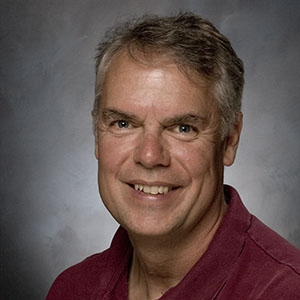 Dr. Tony van Buuren serves as the Deputy Associate Director (DAD) for Science & Technology (S&T) in the Physical and Life Sciences (PLS) Directorate, a position he has held since April 2021. In this role, Tony serves as a member of the PLS senior management team and advises the AD, PDAD, division leaders, program leaders, and institute and center directors on strategies to develop and sustain critical scientific capabilities. He also provides directorate-level oversight and direction for the PLS Laboratory Directed Research and Development Program portfolio, coordinates with the PDAD and AD on the broader internal investment strategy, manages quality assurance for and assessment of the directorate’s scientific staff and research products, and develops external science programs in coordination with PLS divisions and staff as well as the PLS Strategic Science Engagements Office (SSEO). Tony has a PhD in Physics from the University of British Columbia. He joined the Laboratory in 1995 as a postdoctoral fellow. His research focuses on advanced materials characterization with an emphasis on in situ/operando determination of the electronic, surface, and microstructural properties of porous, functional, and manufactured materials. Tony served as Group Leader of the Nanoscale Integration Science and Technology Group from 2008 to 2015. In 2015, he was named Deputy Division Leader for S&T by the Materials Science Division. He also serves as Associate Program Lead for Energy Materials in the Global Security Directorate and SSEO Co-Lead.
Dr. Tony van Buuren serves as the Deputy Associate Director (DAD) for Science & Technology (S&T) in the Physical and Life Sciences (PLS) Directorate, a position he has held since April 2021. In this role, Tony serves as a member of the PLS senior management team and advises the AD, PDAD, division leaders, program leaders, and institute and center directors on strategies to develop and sustain critical scientific capabilities. He also provides directorate-level oversight and direction for the PLS Laboratory Directed Research and Development Program portfolio, coordinates with the PDAD and AD on the broader internal investment strategy, manages quality assurance for and assessment of the directorate’s scientific staff and research products, and develops external science programs in coordination with PLS divisions and staff as well as the PLS Strategic Science Engagements Office (SSEO). Tony has a PhD in Physics from the University of British Columbia. He joined the Laboratory in 1995 as a postdoctoral fellow. His research focuses on advanced materials characterization with an emphasis on in situ/operando determination of the electronic, surface, and microstructural properties of porous, functional, and manufactured materials. Tony served as Group Leader of the Nanoscale Integration Science and Technology Group from 2008 to 2015. In 2015, he was named Deputy Division Leader for S&T by the Materials Science Division. He also serves as Associate Program Lead for Energy Materials in the Global Security Directorate and SSEO Co-Lead.
 Richard Wang, the founder of Crevasse Consulting, is a highly regarded entrepreneur and technical expert in the field of battery technologies. He is the founder and former CEO of Cuberg, which he led through a successful acquisition by Northvolt and grew to 225 employees. At Cuberg, he oversaw the development of its lithium metal cell and pack technologies and spearheaded its go-to-market strategy. He graduated from Stanford University with his PhD in materials science and from Caltech with his BS. He was selected for the Forbes 30 Under 30 and MIT Technology Review Innovators Under 35.
Richard Wang, the founder of Crevasse Consulting, is a highly regarded entrepreneur and technical expert in the field of battery technologies. He is the founder and former CEO of Cuberg, which he led through a successful acquisition by Northvolt and grew to 225 employees. At Cuberg, he oversaw the development of its lithium metal cell and pack technologies and spearheaded its go-to-market strategy. He graduated from Stanford University with his PhD in materials science and from Caltech with his BS. He was selected for the Forbes 30 Under 30 and MIT Technology Review Innovators Under 35.
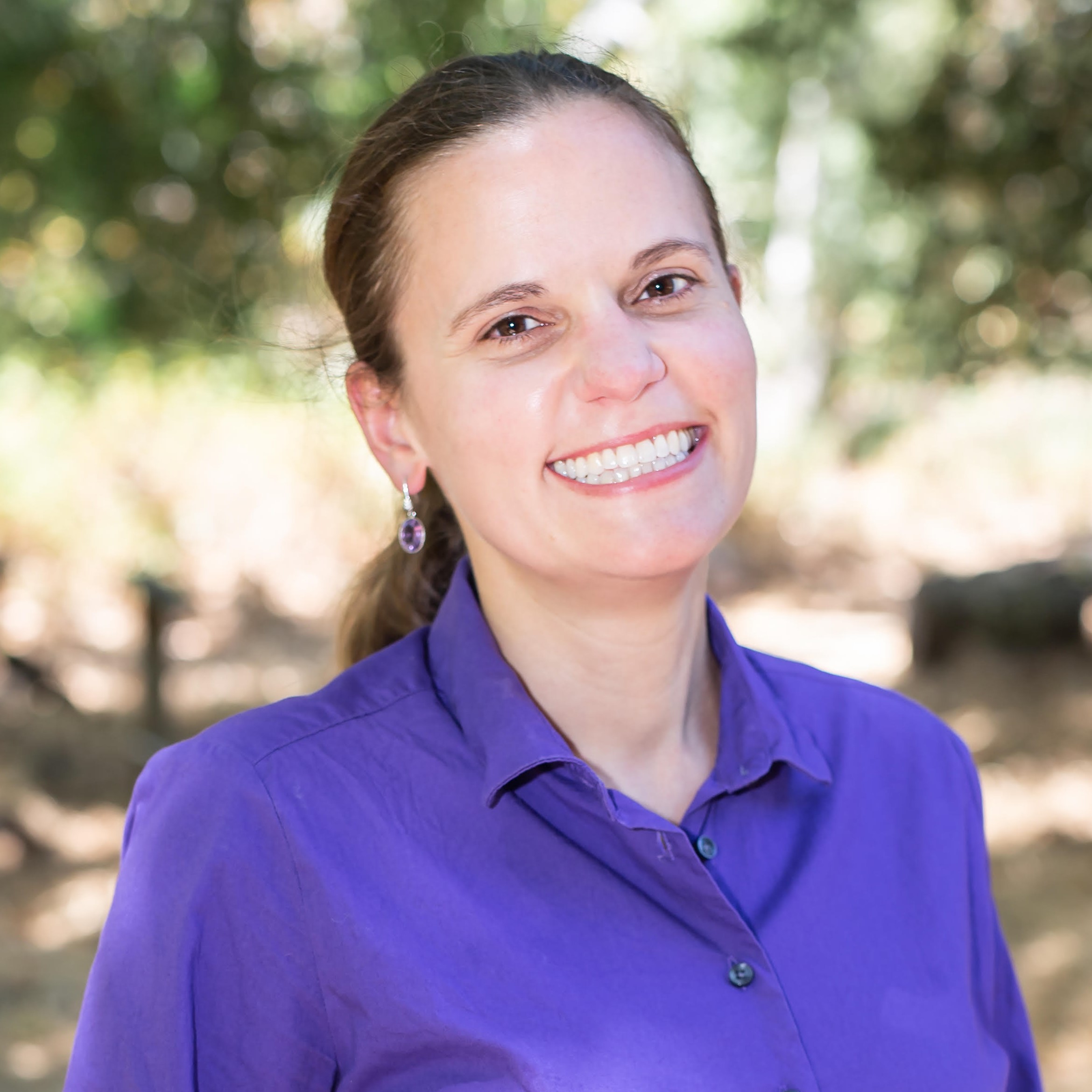 Johanna Nelson Weker is a lead scientist at SLAC National Accelerator Laboratory. Her research focuses on synchrotron-based X-ray characterization of energy materials and energy systems far from equilibrium. In addition to leading a vibrant research group, she helps run the transmission X-ray microscopy on beamline 6-2 at SSRL. Dr. Nelson Weker graduated in 2005 with a B.S. in mathematics and physics from Muhlenberg College, a small liberal arts college in Allentown, PA. In 2010, she received a Ph.D. in physics from Stony Brook University on Long Island, NY, where she studied Coherent Diffractive Imaging (CDI) with X-rays, a microscopy technique that eliminates the need for X-rays lenses. Since then, Dr. Nelson Weker has been working at the Stanford Synchrotron Lightsource, first as a postdoc using x-rays to study Li-ion batteries under operating conditions and later as a staff scientist in the Materials Science Division at SLAC. Dr. Nelson Weker recently received an Early Career Award from DOE to develop multiscale 3D imaging for battery pouch cells and other flat-geometry samples which do not image well using standard tomography techniques.
Johanna Nelson Weker is a lead scientist at SLAC National Accelerator Laboratory. Her research focuses on synchrotron-based X-ray characterization of energy materials and energy systems far from equilibrium. In addition to leading a vibrant research group, she helps run the transmission X-ray microscopy on beamline 6-2 at SSRL. Dr. Nelson Weker graduated in 2005 with a B.S. in mathematics and physics from Muhlenberg College, a small liberal arts college in Allentown, PA. In 2010, she received a Ph.D. in physics from Stony Brook University on Long Island, NY, where she studied Coherent Diffractive Imaging (CDI) with X-rays, a microscopy technique that eliminates the need for X-rays lenses. Since then, Dr. Nelson Weker has been working at the Stanford Synchrotron Lightsource, first as a postdoc using x-rays to study Li-ion batteries under operating conditions and later as a staff scientist in the Materials Science Division at SLAC. Dr. Nelson Weker recently received an Early Career Award from DOE to develop multiscale 3D imaging for battery pouch cells and other flat-geometry samples which do not image well using standard tomography techniques.
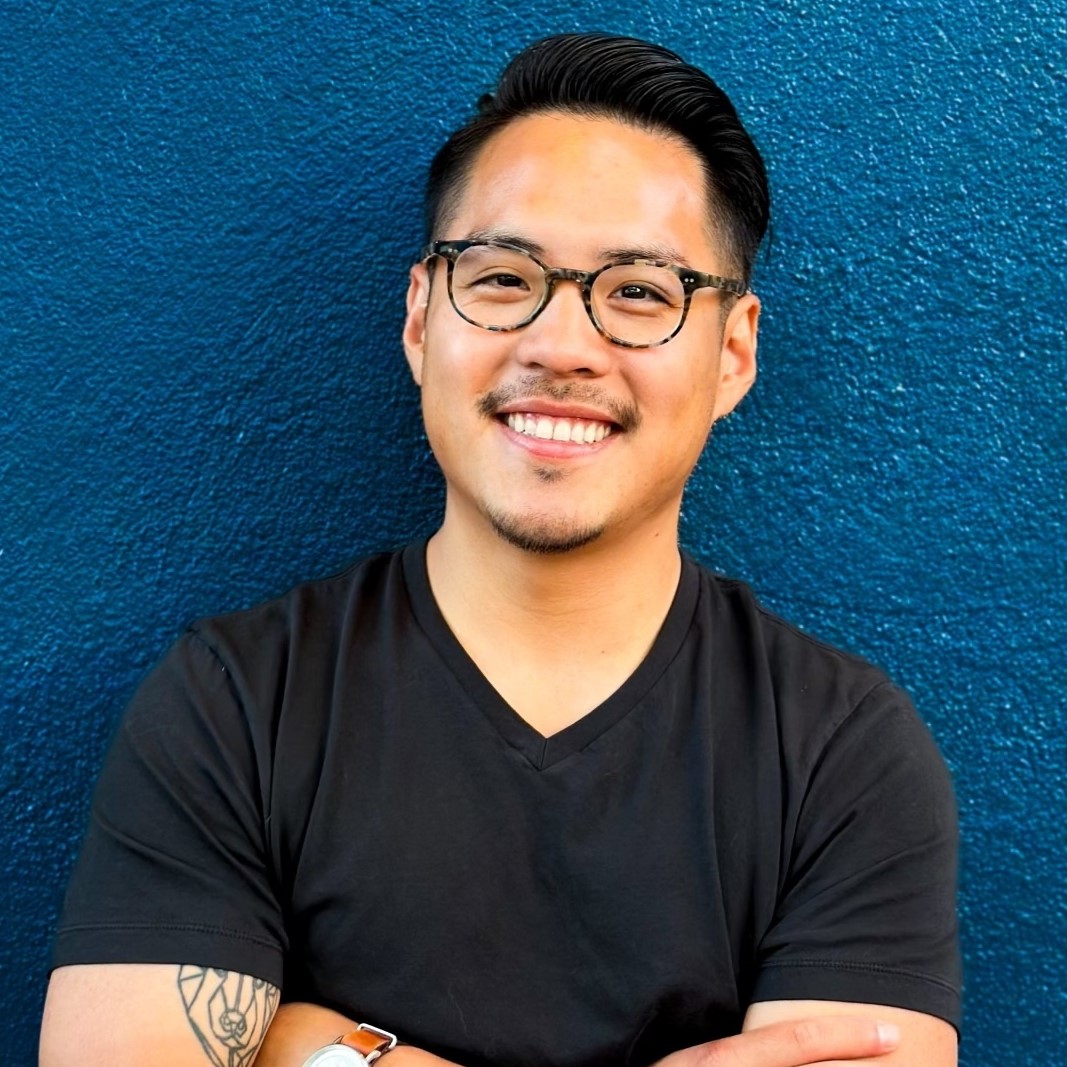 Adrian is the Founder and Team Lead of a new program called STEER focused on guiding “What to build” for the energy transition. STEER is a DOE-funded program that is a partnership between the SLAC-Stanford Battery Center and the Precourt Institute for Energy. The mission of STEER is to critically evaluate the techno-economics of emerging energy technologies with a technology-centric focus bridging supply- and demand-side insights to guide strategic investments, research directions, and policy agendas. Prior to Stanford, Adrian spent 8 years in industry as the co-founder and CTO of a Li-ion battery startup, EnPower, Inc., which is now scaling a ~1 GWh/y cell manufacturing plant in Indianapolis, IN, spearheading the domestic production of advanced Li-ion cells. Adrian obtained his B.S. in Material Science & Engineering from Rice University in Houston, TX, and is currently a PhD Candidate in Materials Science & Engineering at Stanford University.
Adrian is the Founder and Team Lead of a new program called STEER focused on guiding “What to build” for the energy transition. STEER is a DOE-funded program that is a partnership between the SLAC-Stanford Battery Center and the Precourt Institute for Energy. The mission of STEER is to critically evaluate the techno-economics of emerging energy technologies with a technology-centric focus bridging supply- and demand-side insights to guide strategic investments, research directions, and policy agendas. Prior to Stanford, Adrian spent 8 years in industry as the co-founder and CTO of a Li-ion battery startup, EnPower, Inc., which is now scaling a ~1 GWh/y cell manufacturing plant in Indianapolis, IN, spearheading the domestic production of advanced Li-ion cells. Adrian obtained his B.S. in Material Science & Engineering from Rice University in Houston, TX, and is currently a PhD Candidate in Materials Science & Engineering at Stanford University.























































































































































